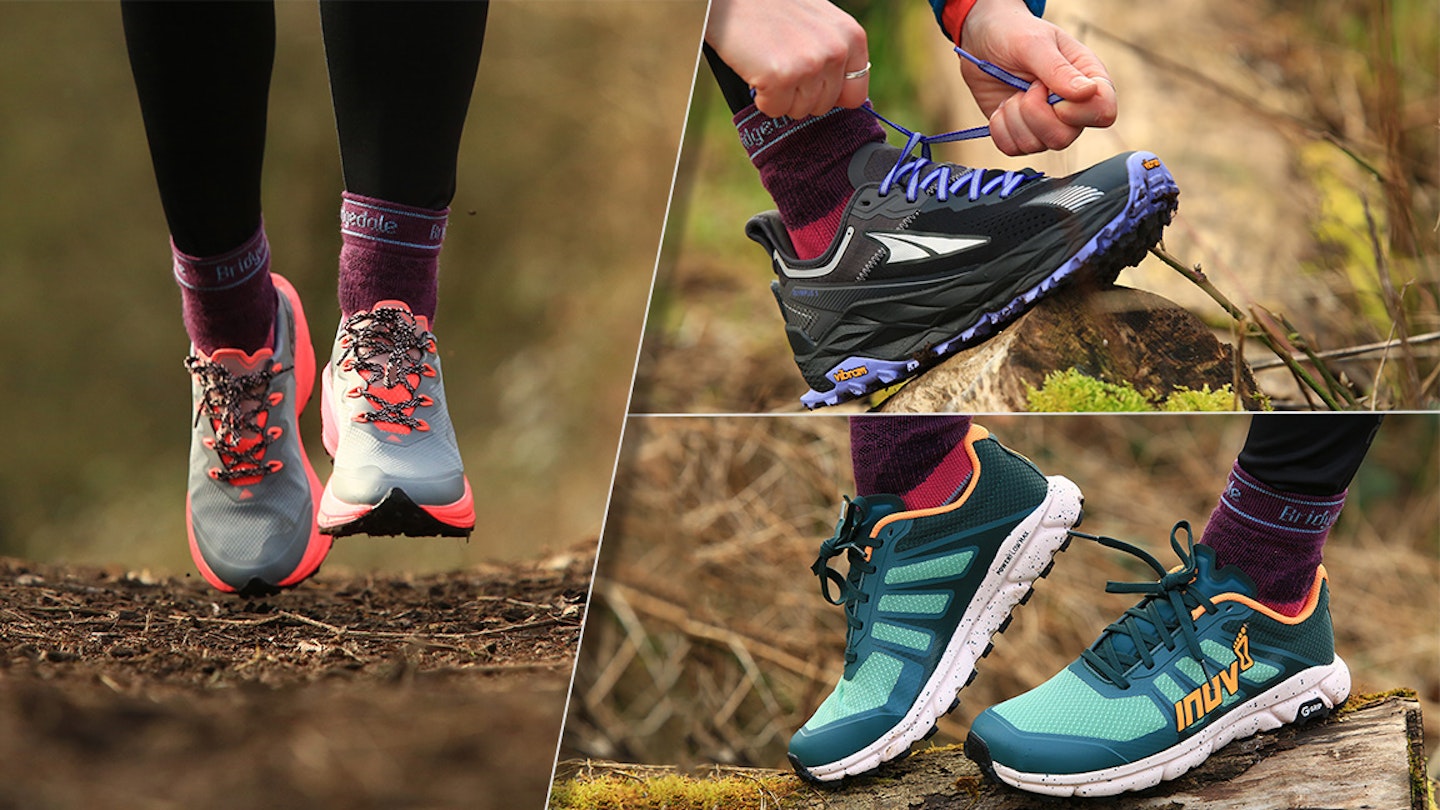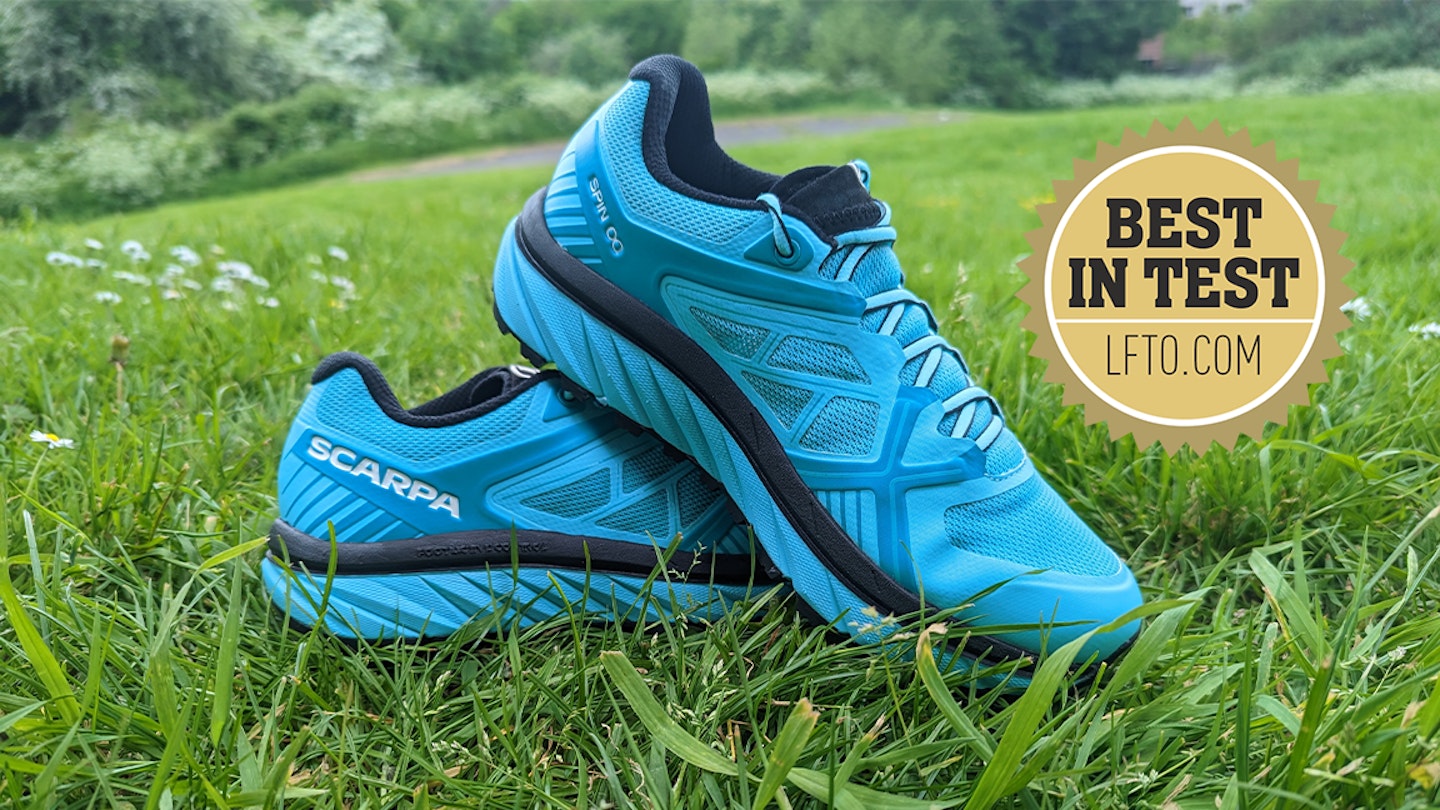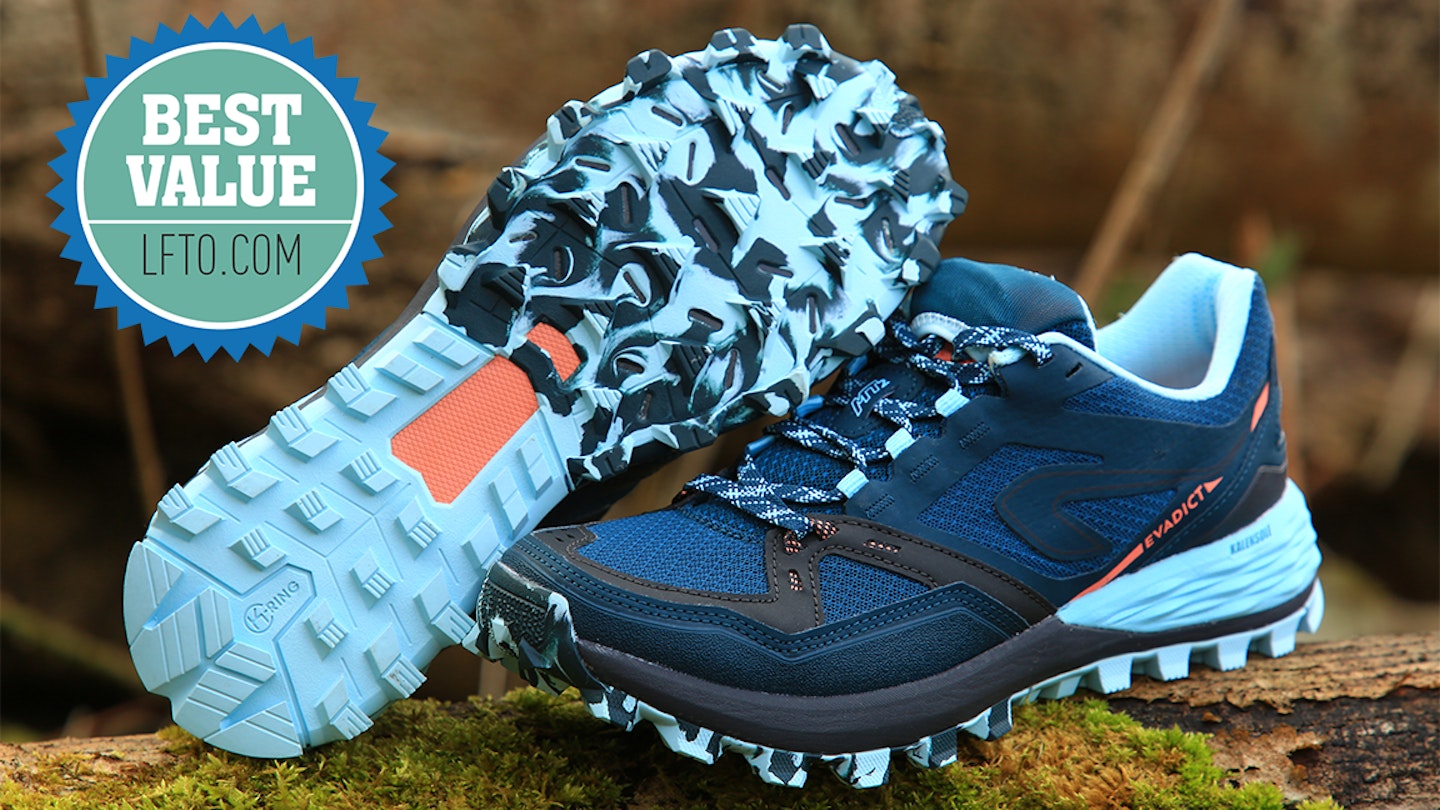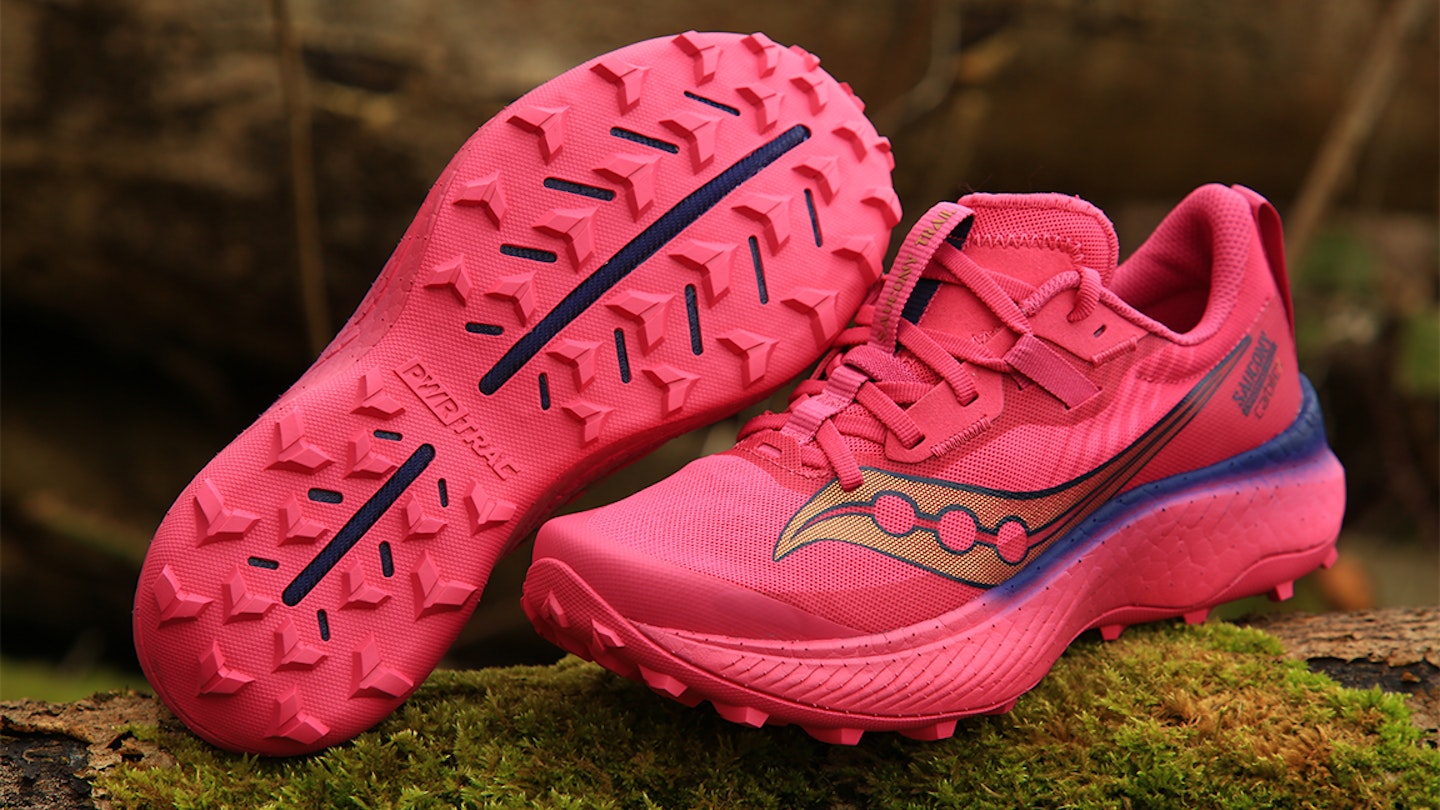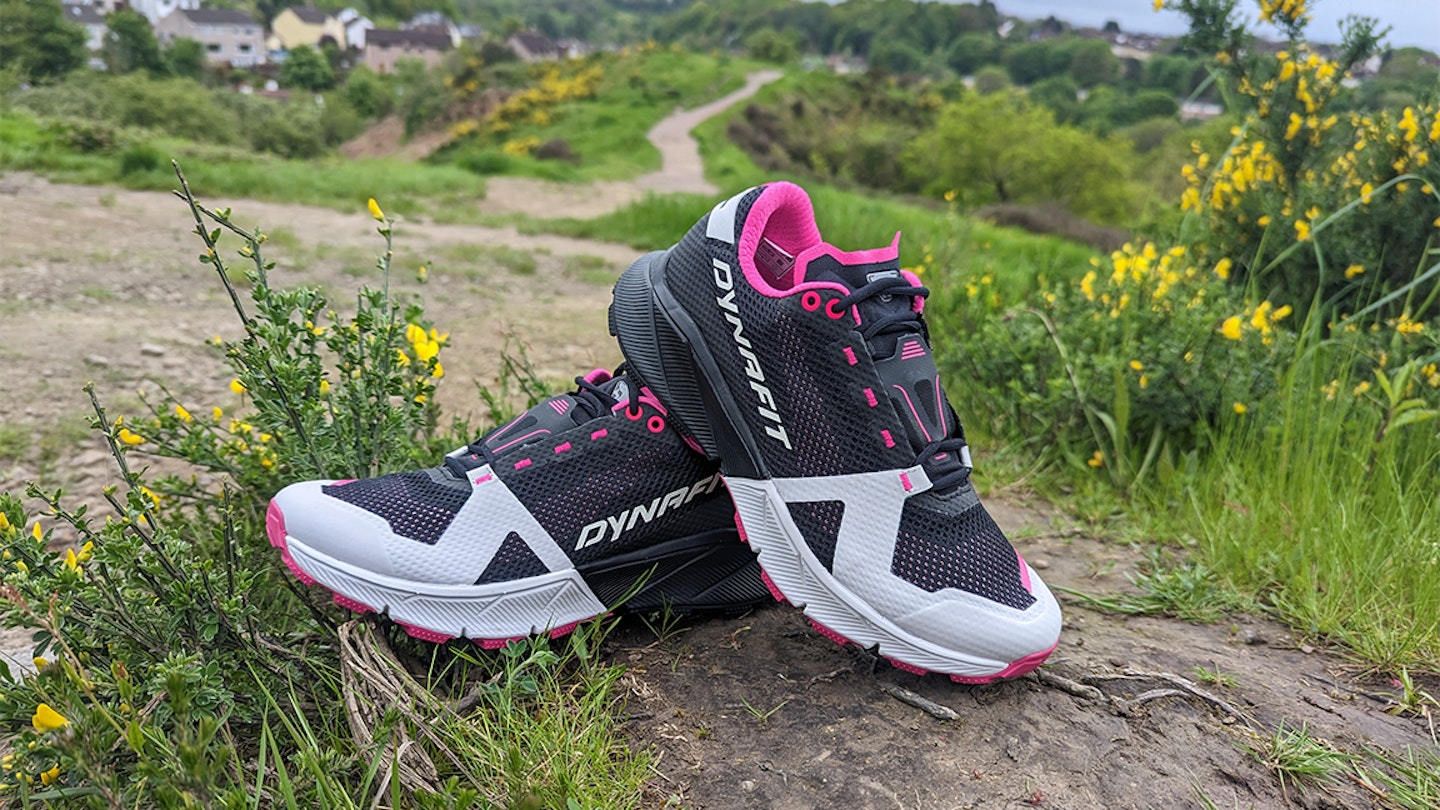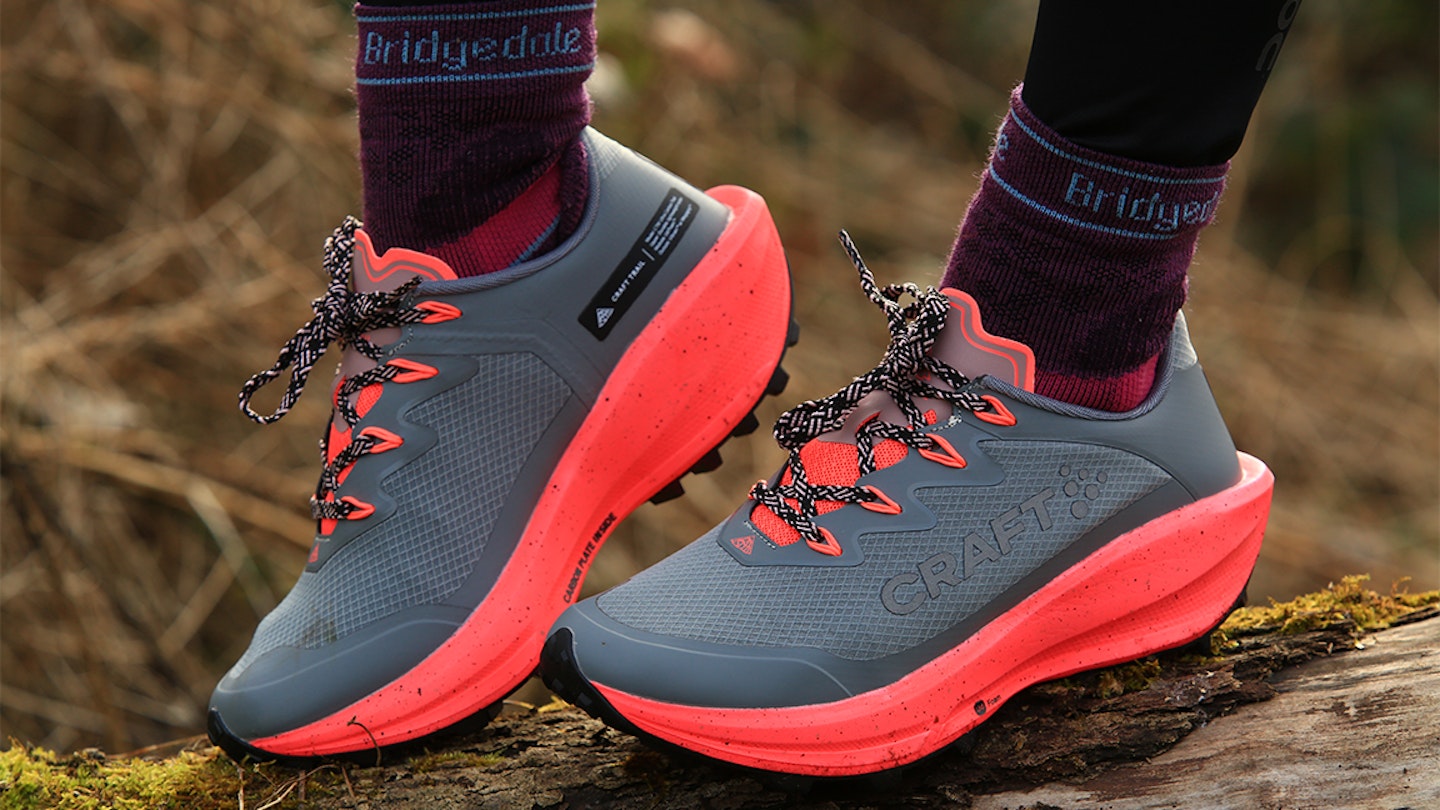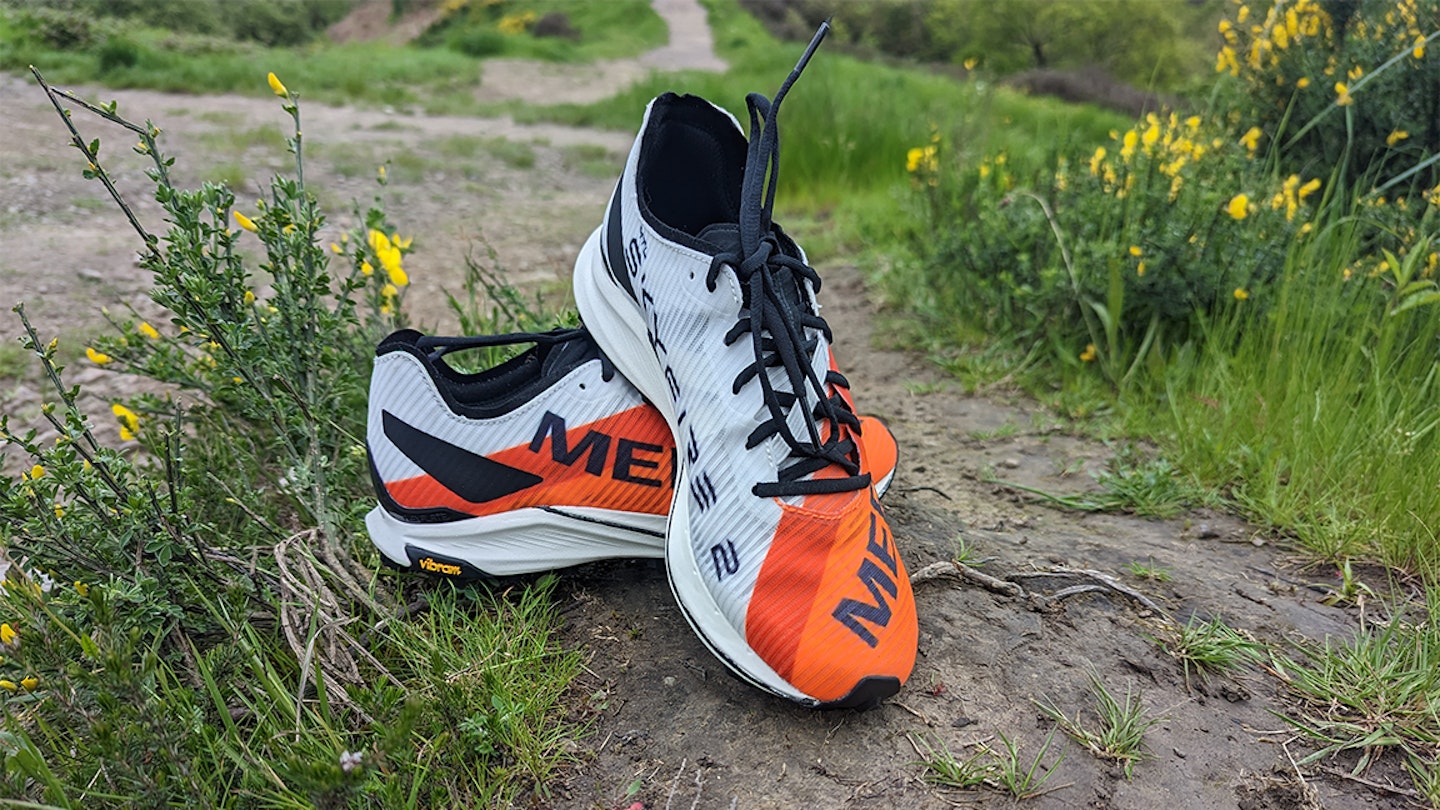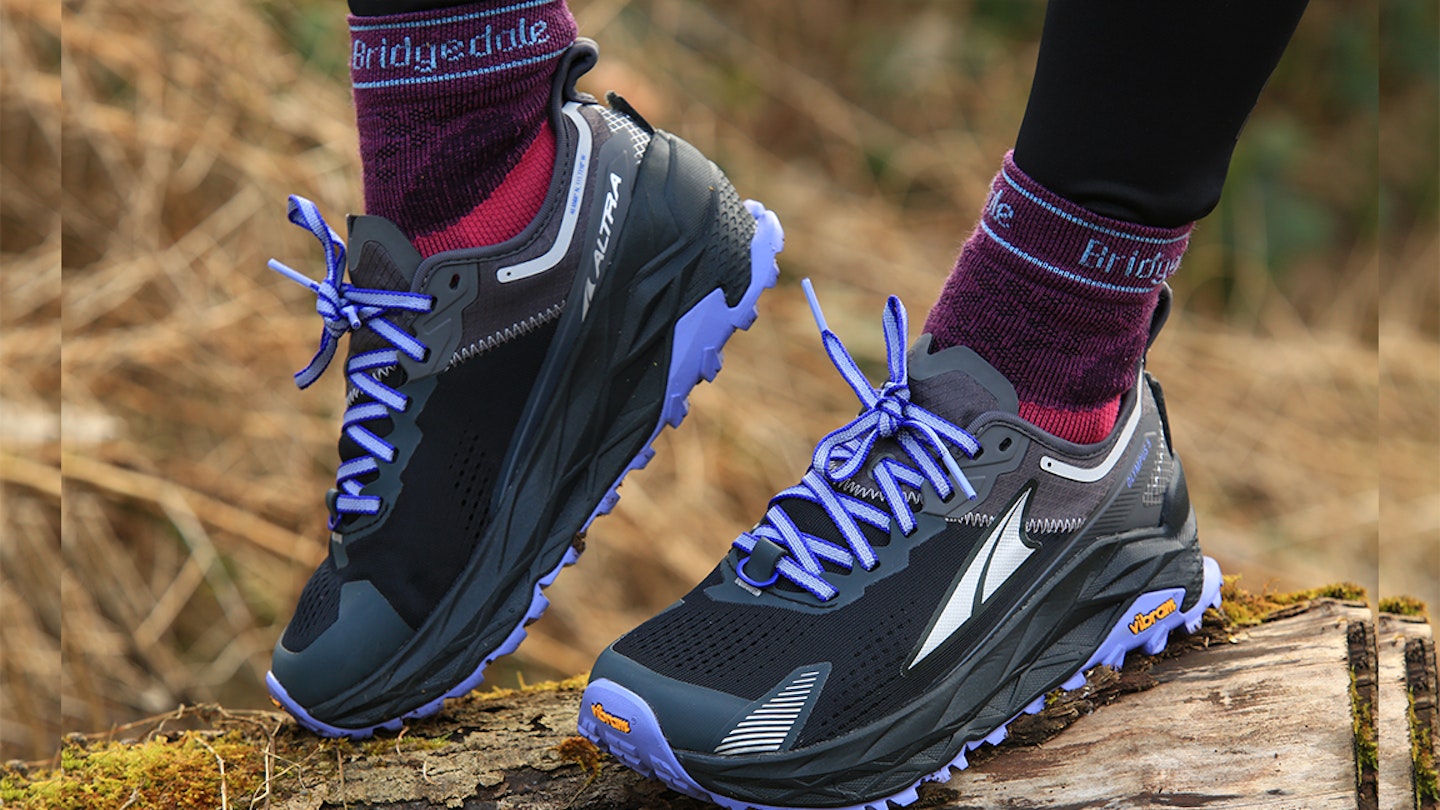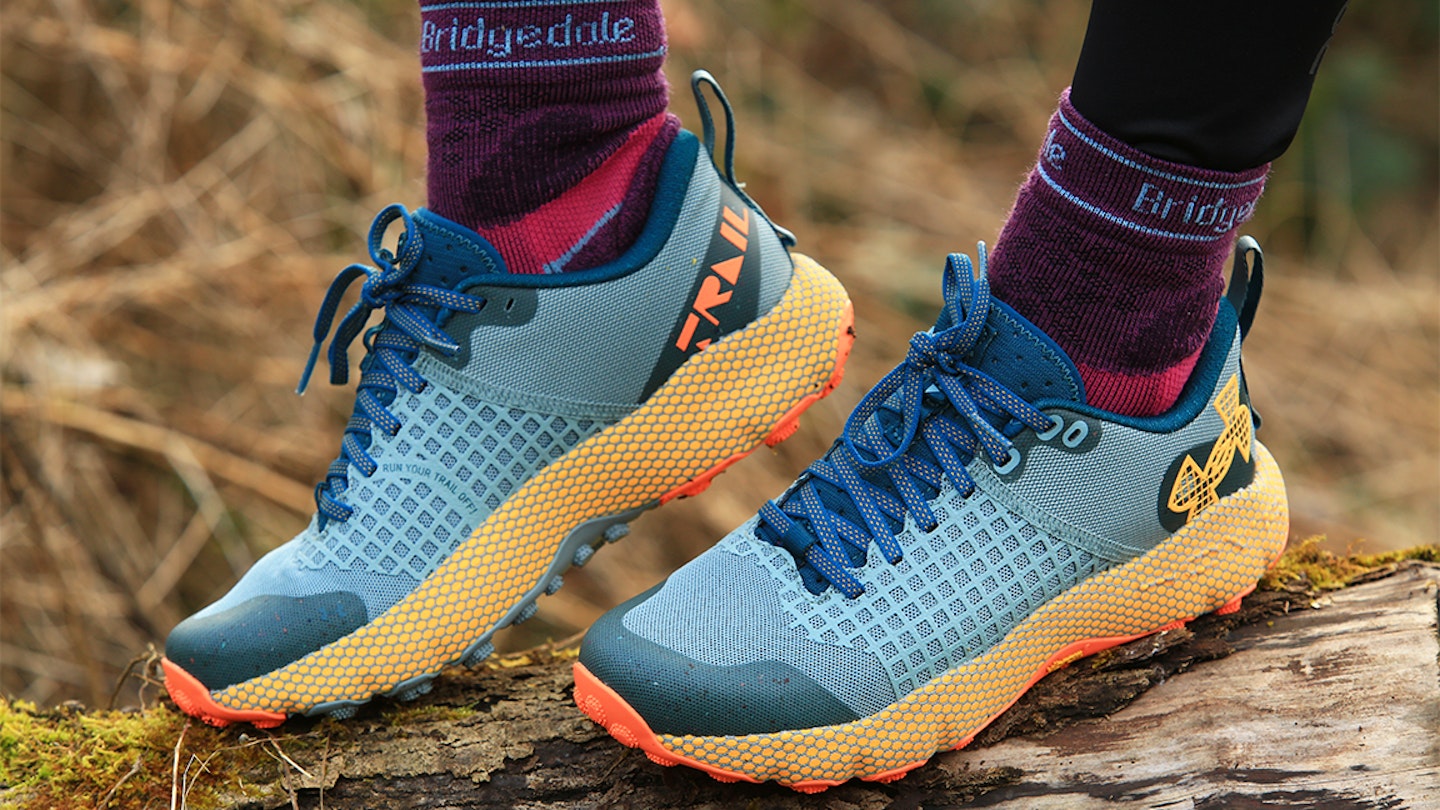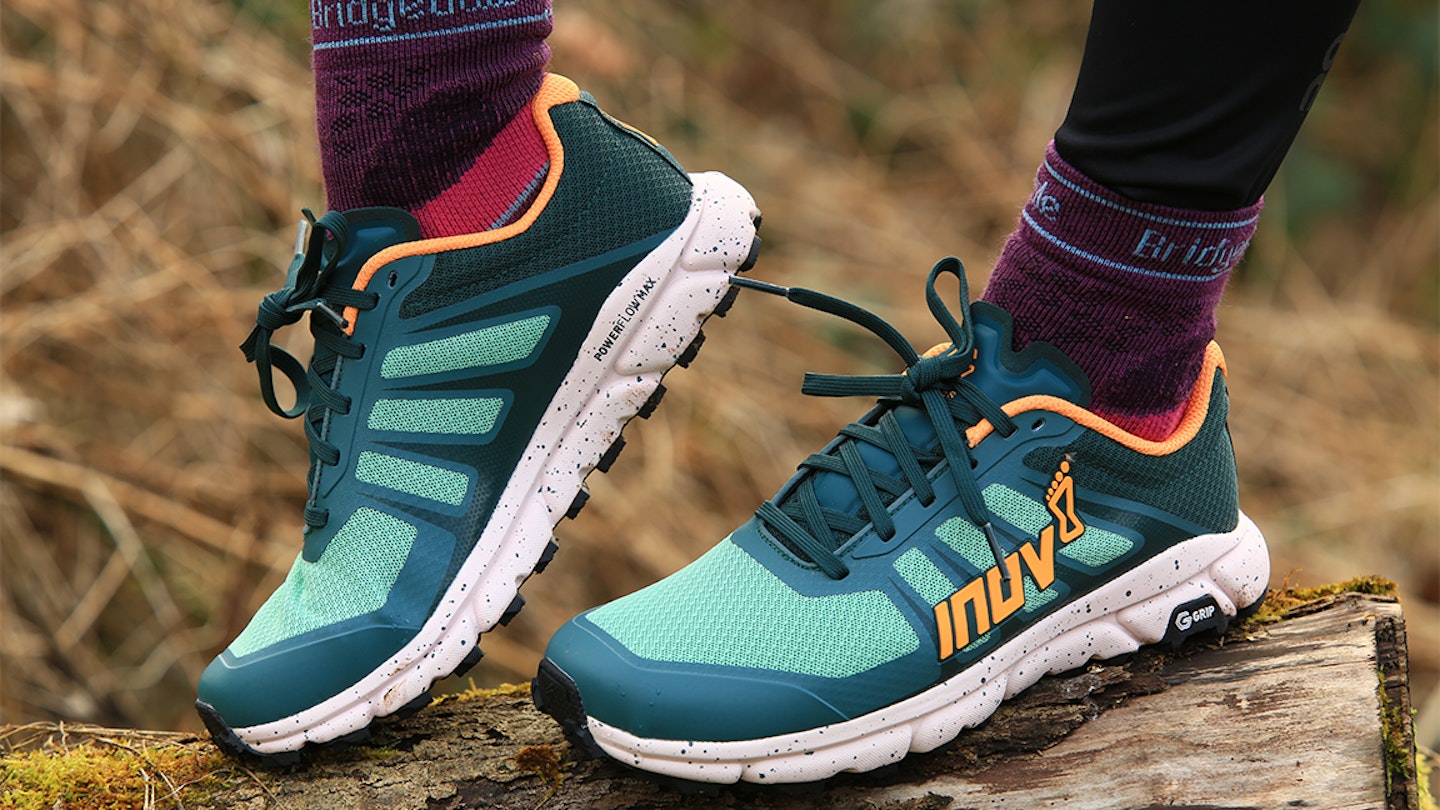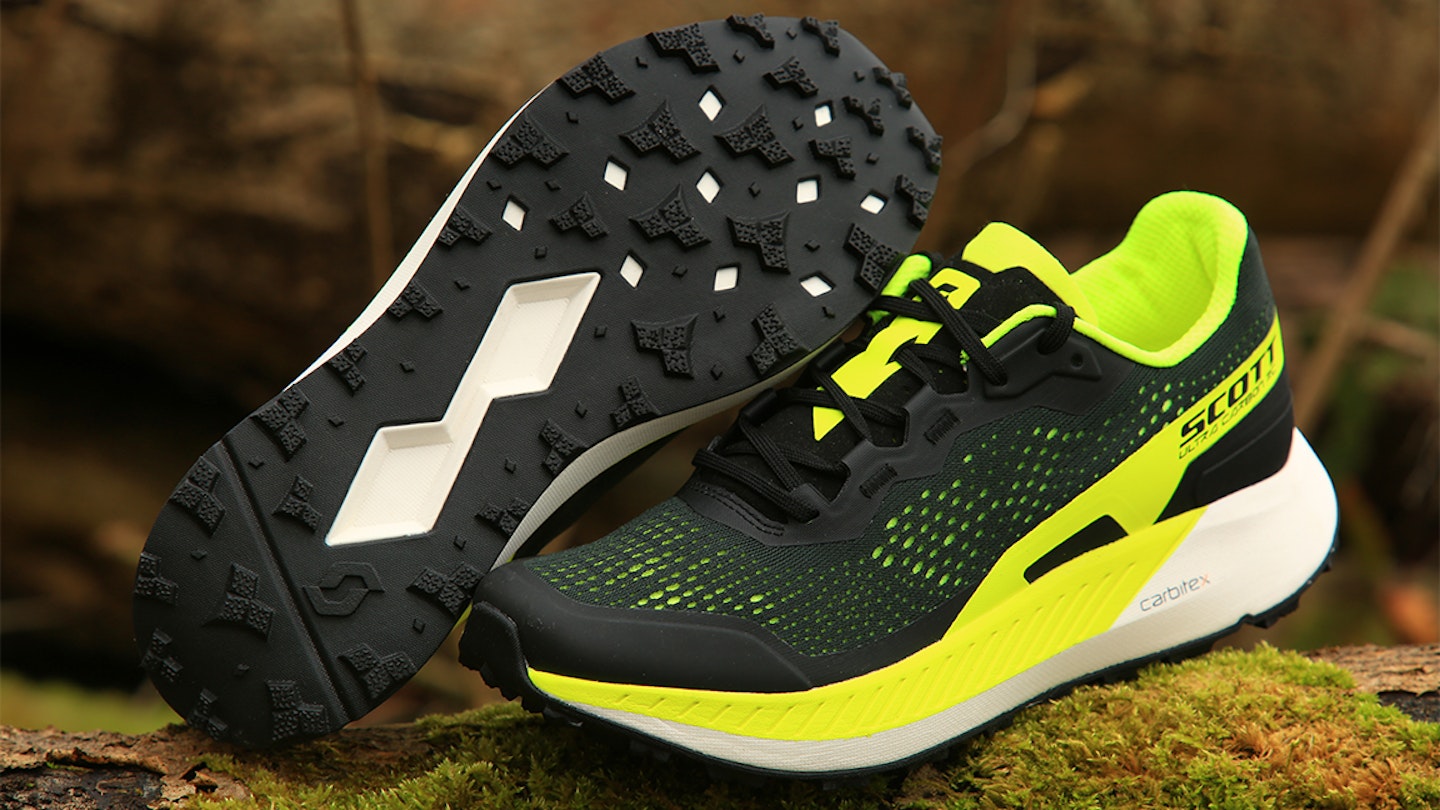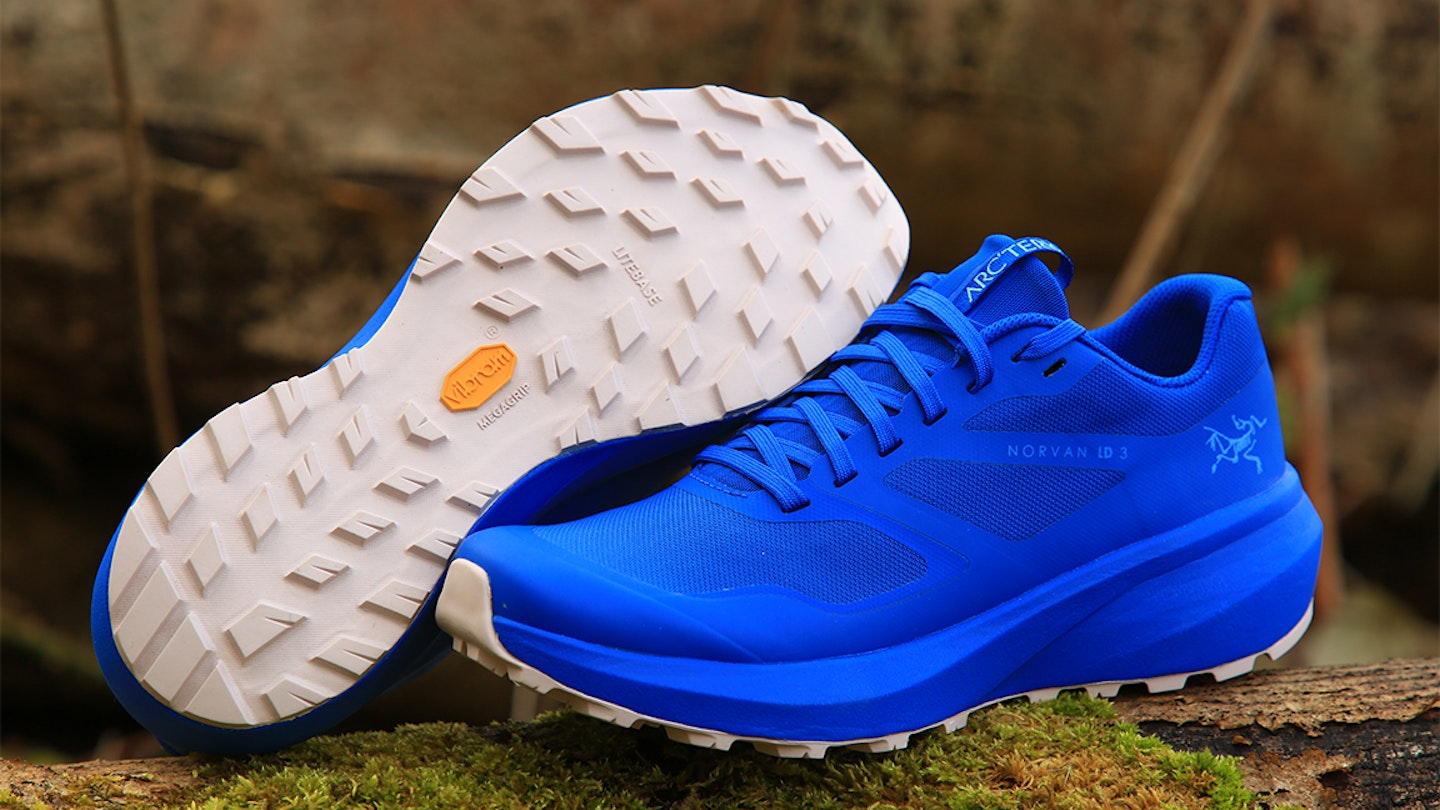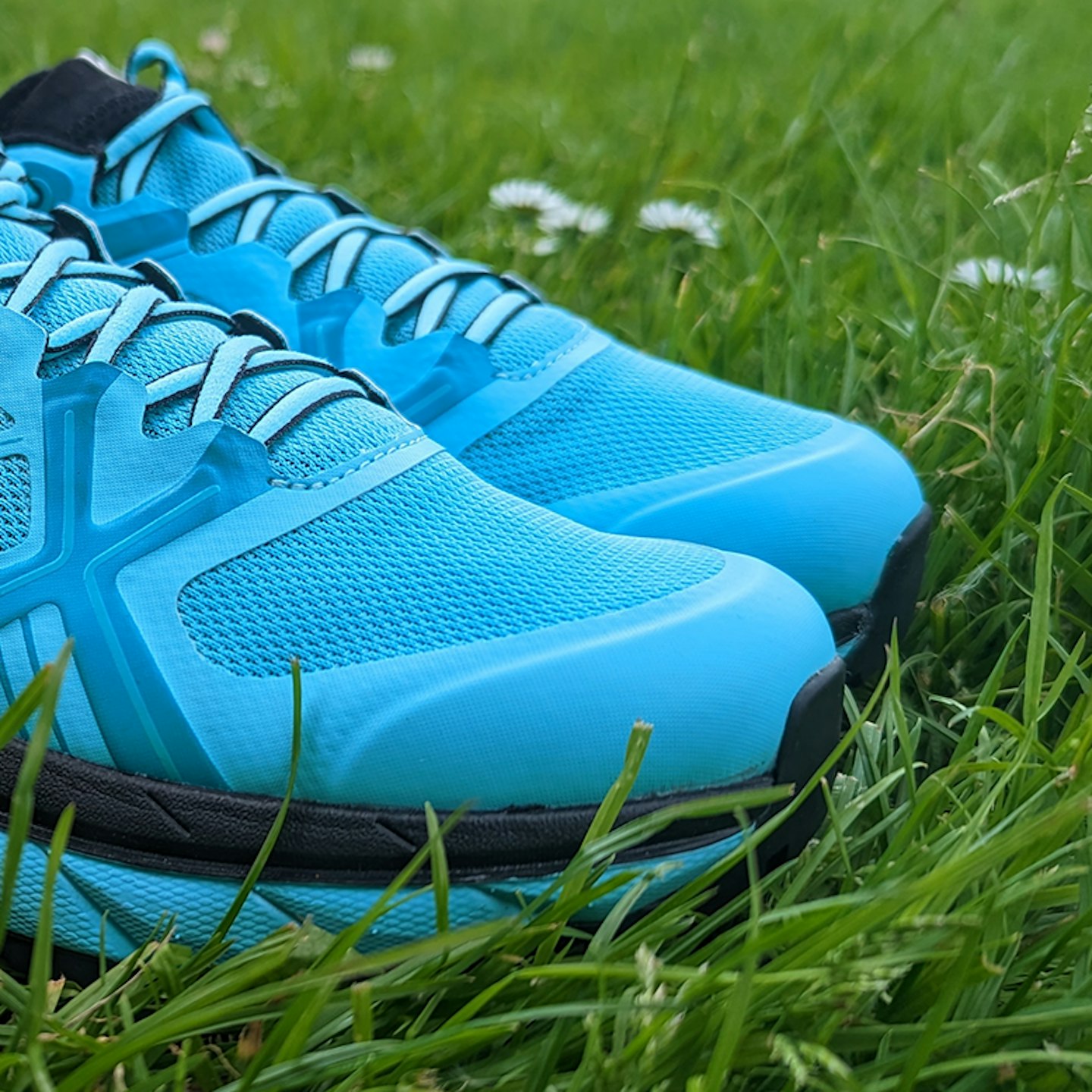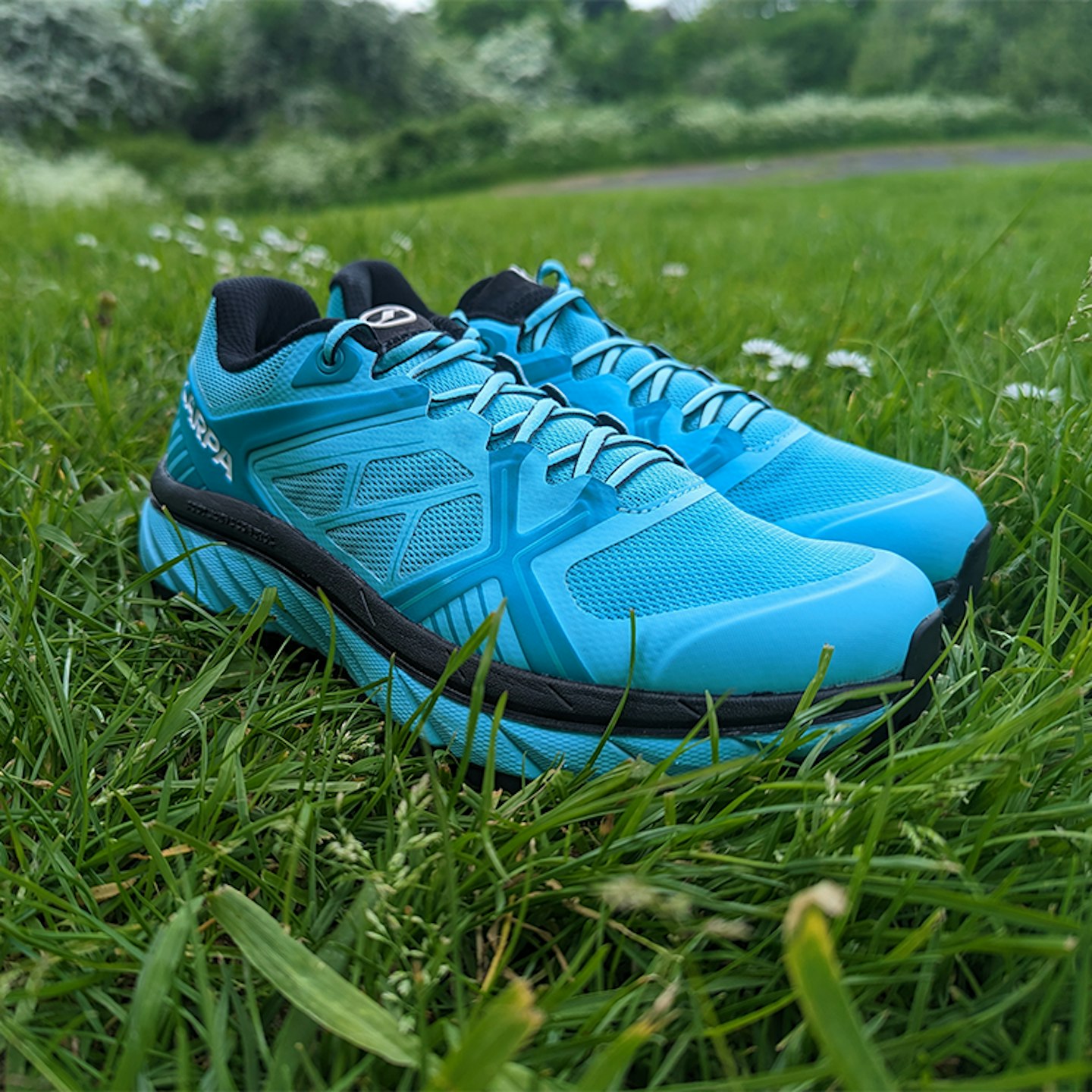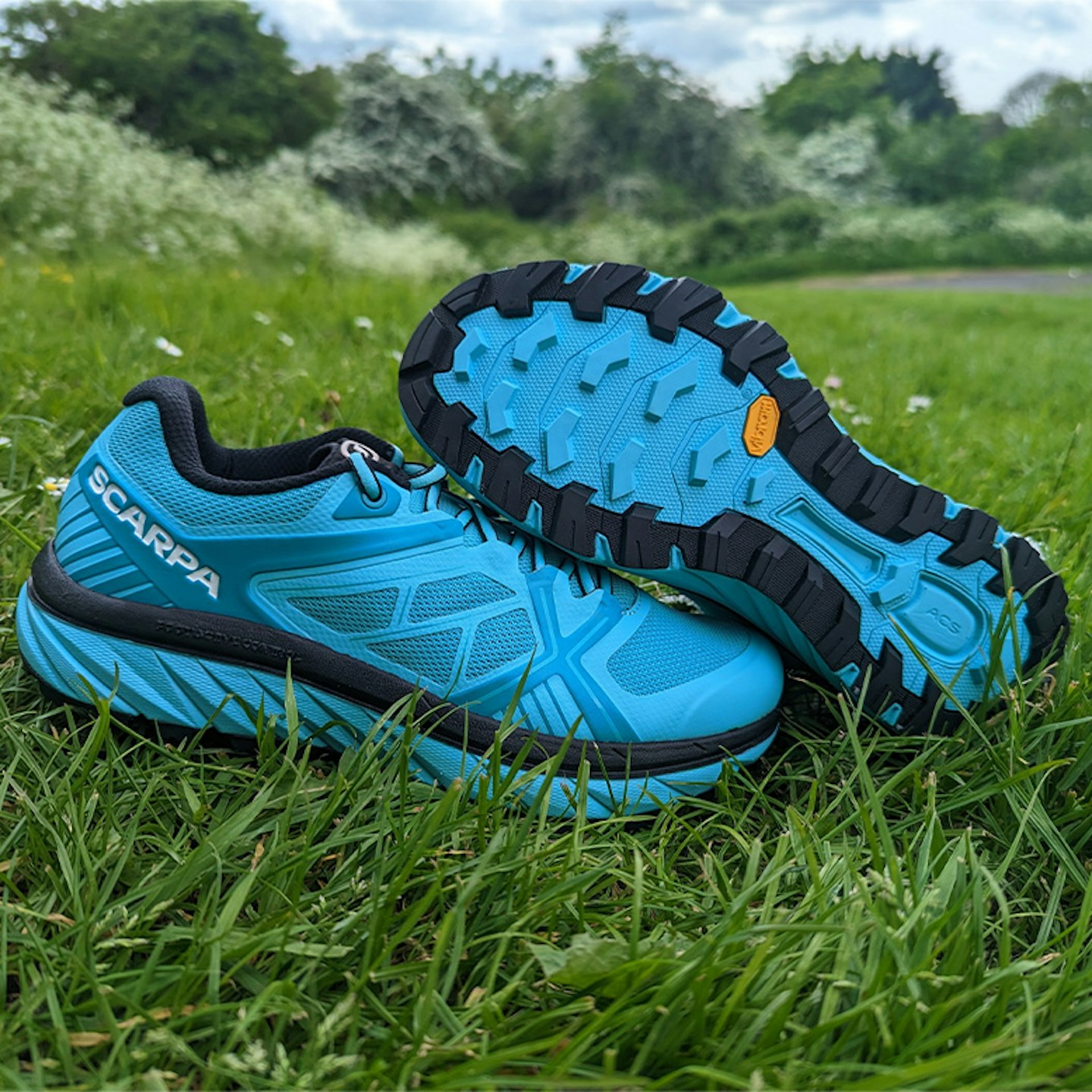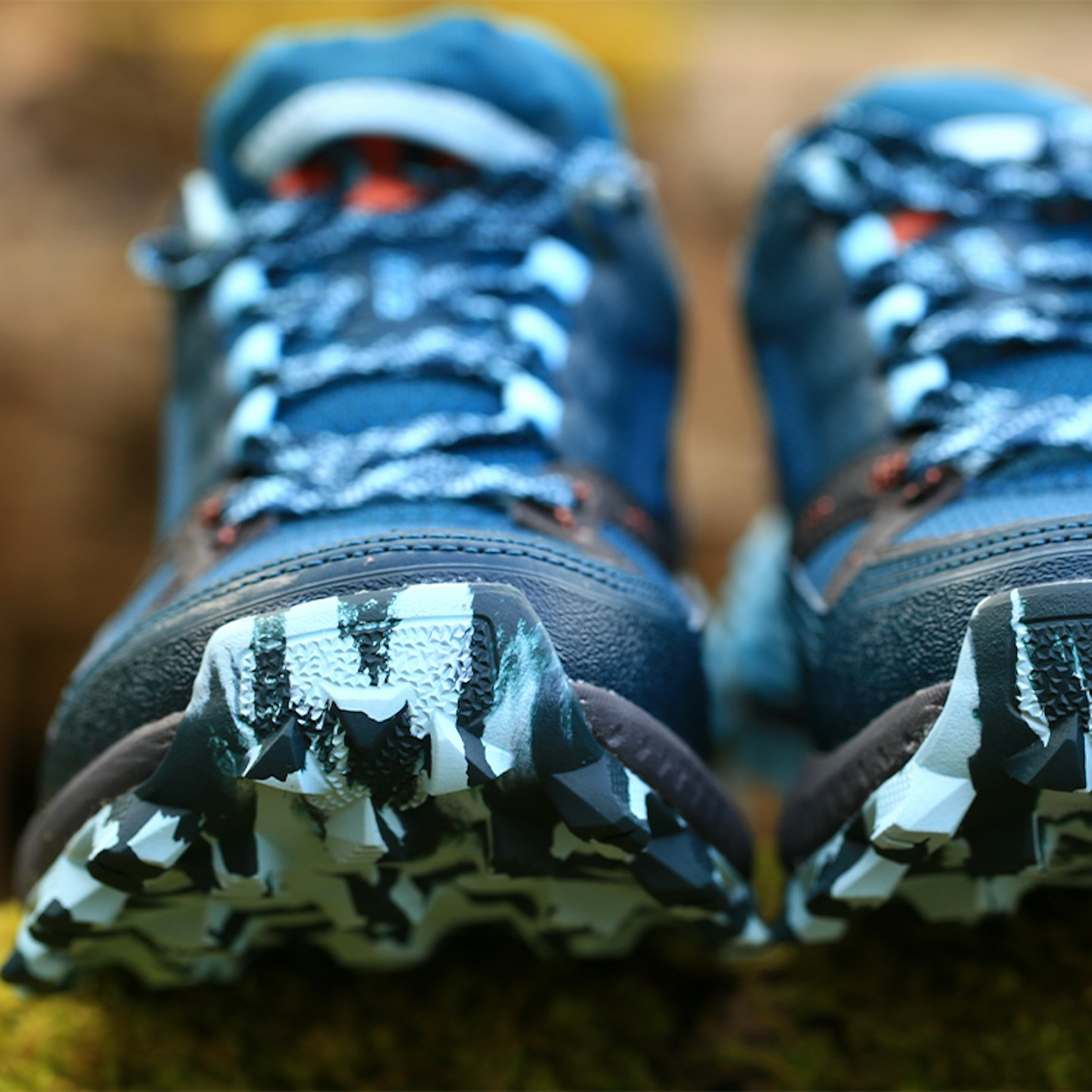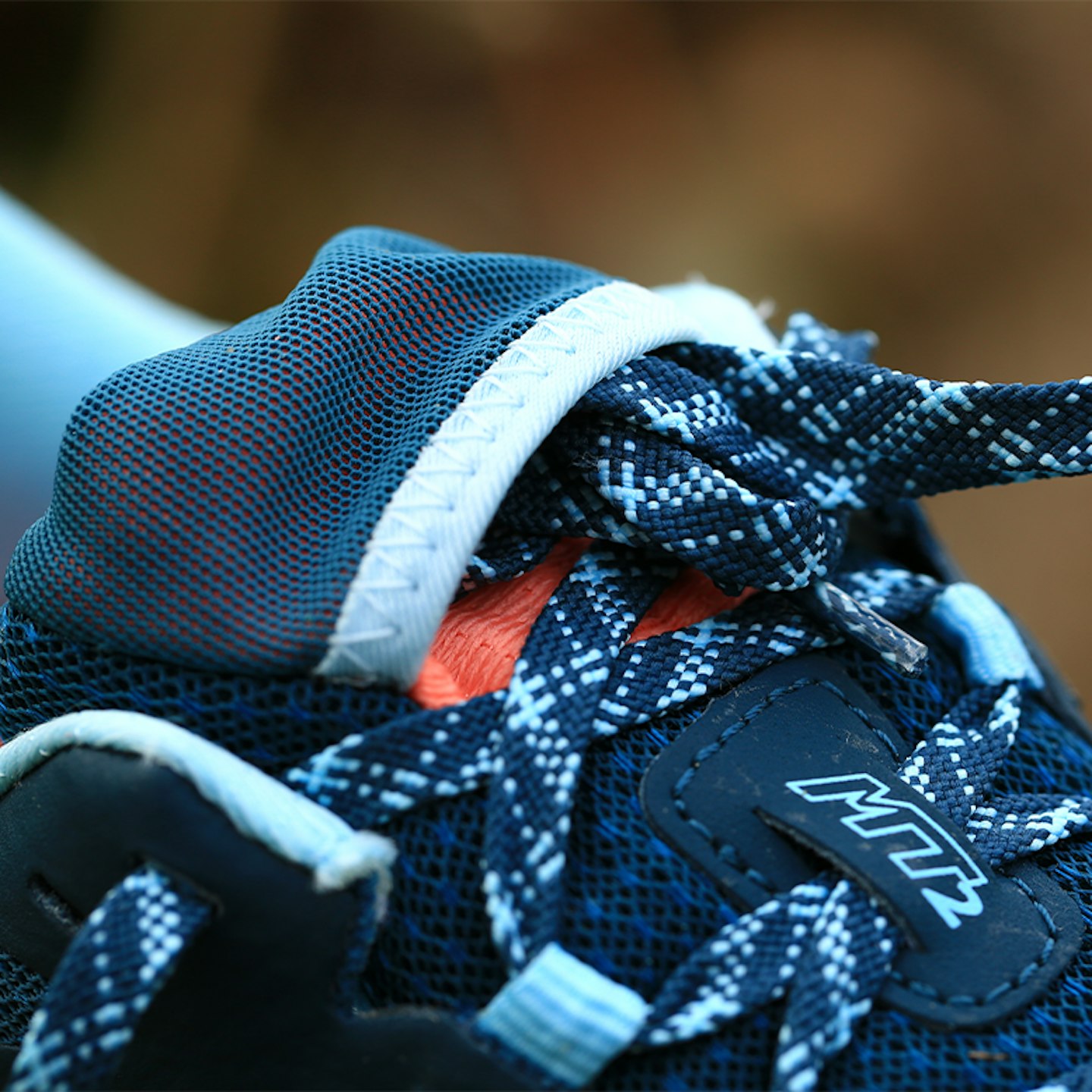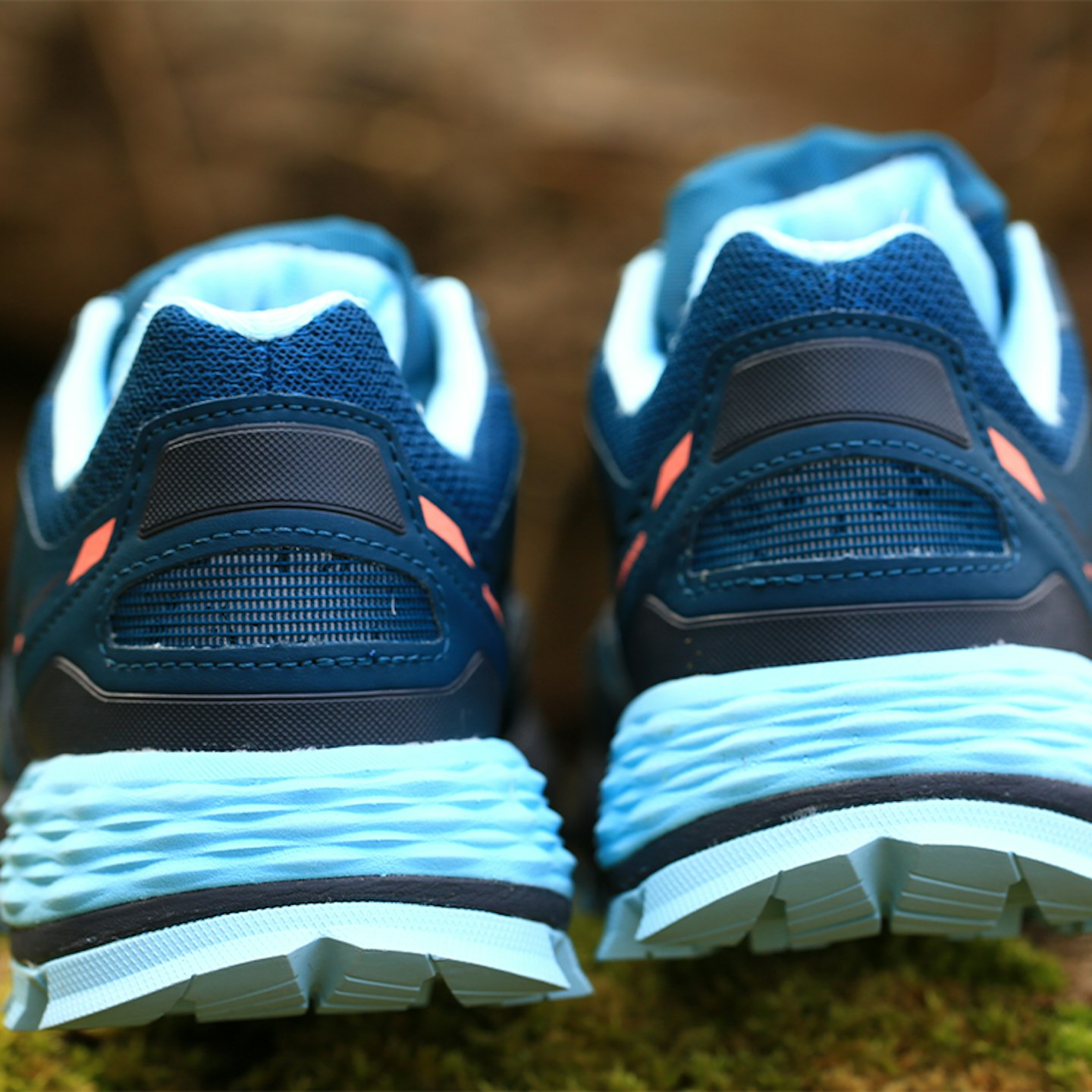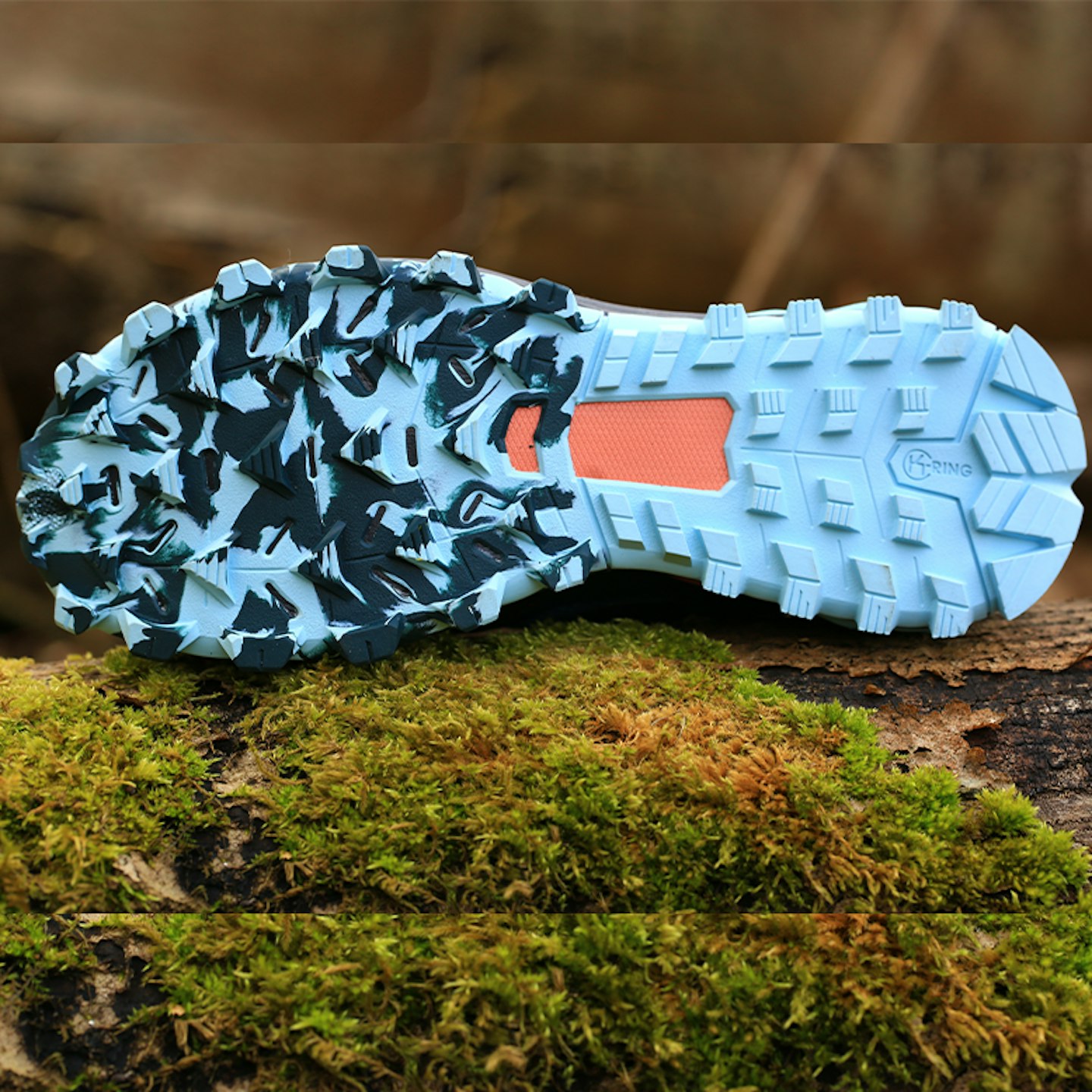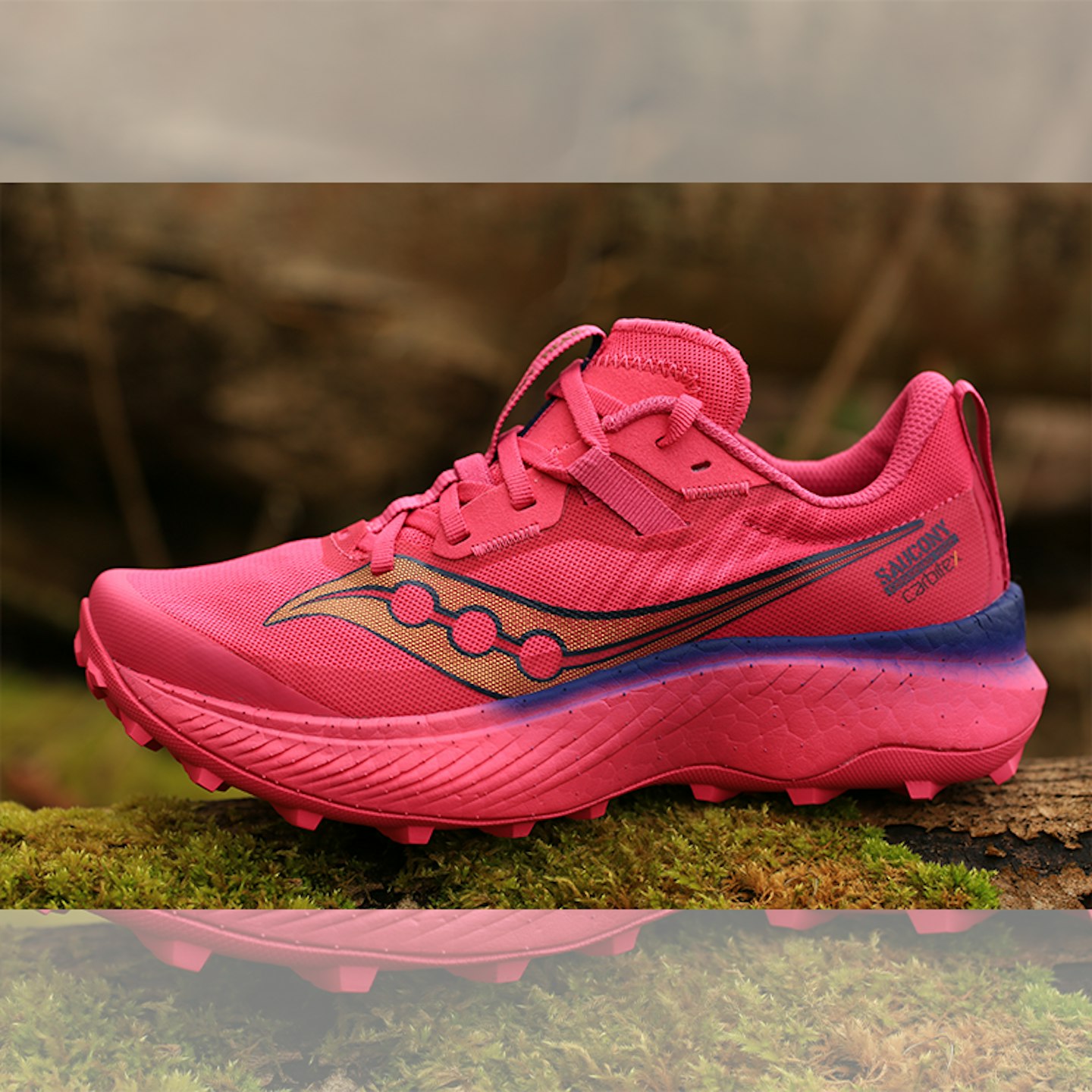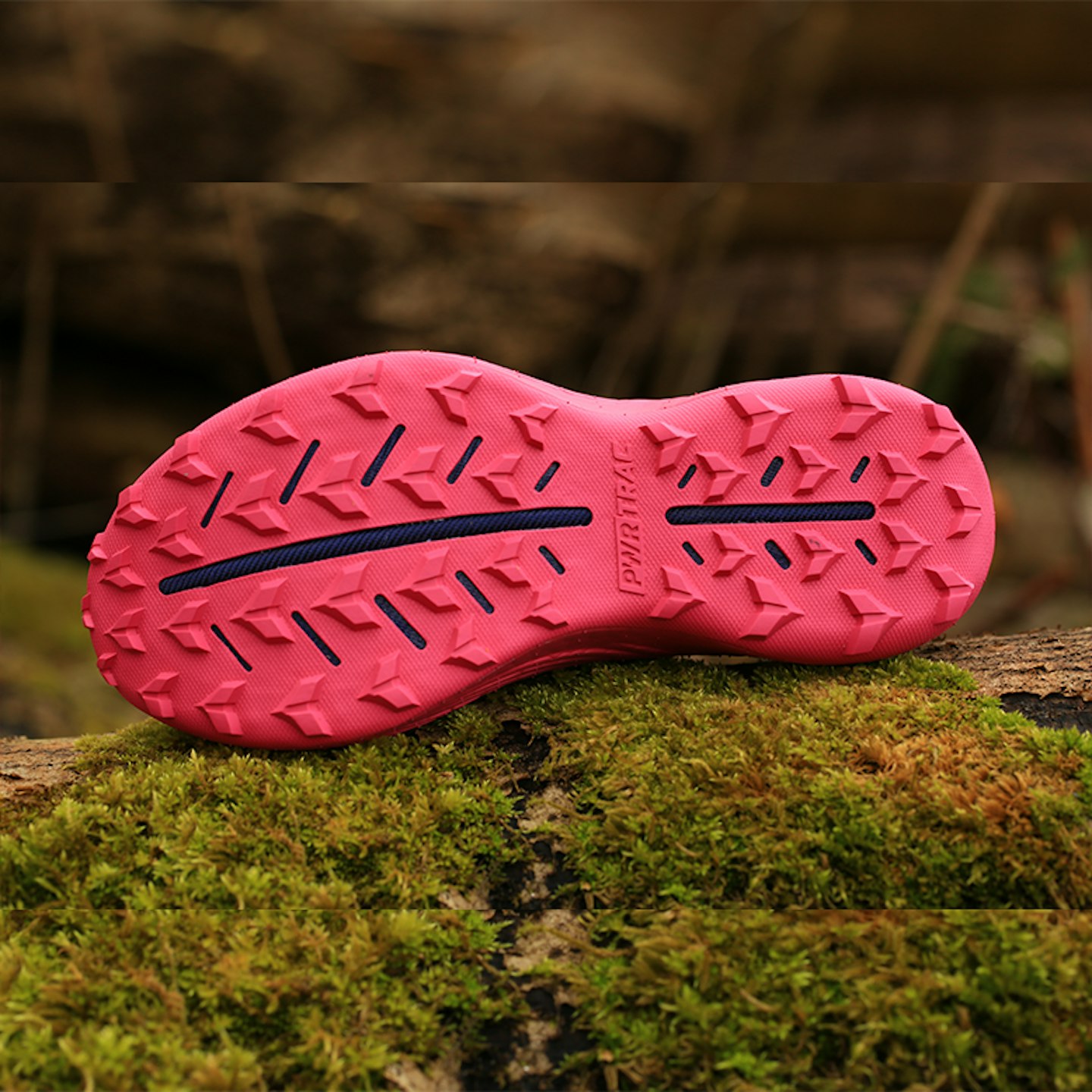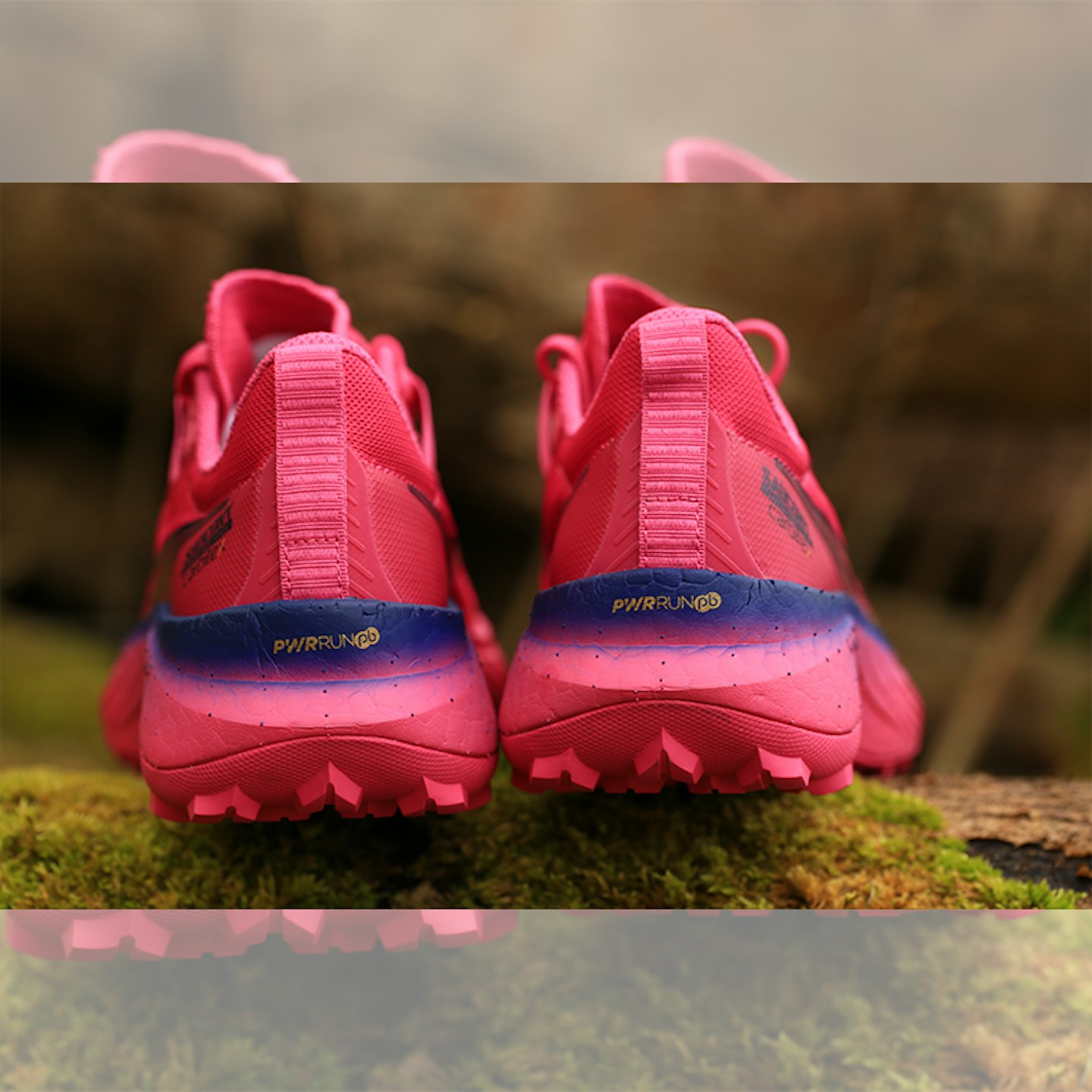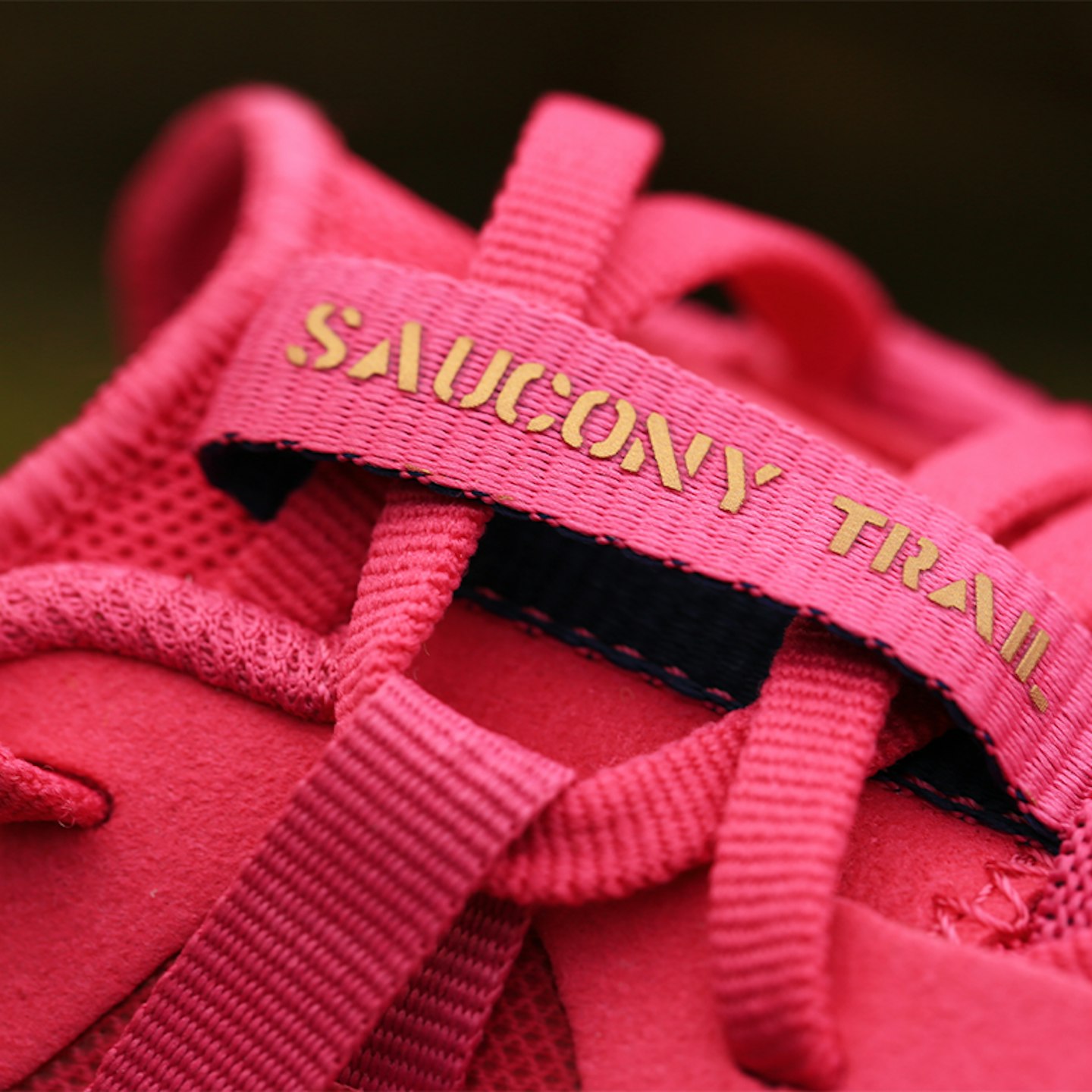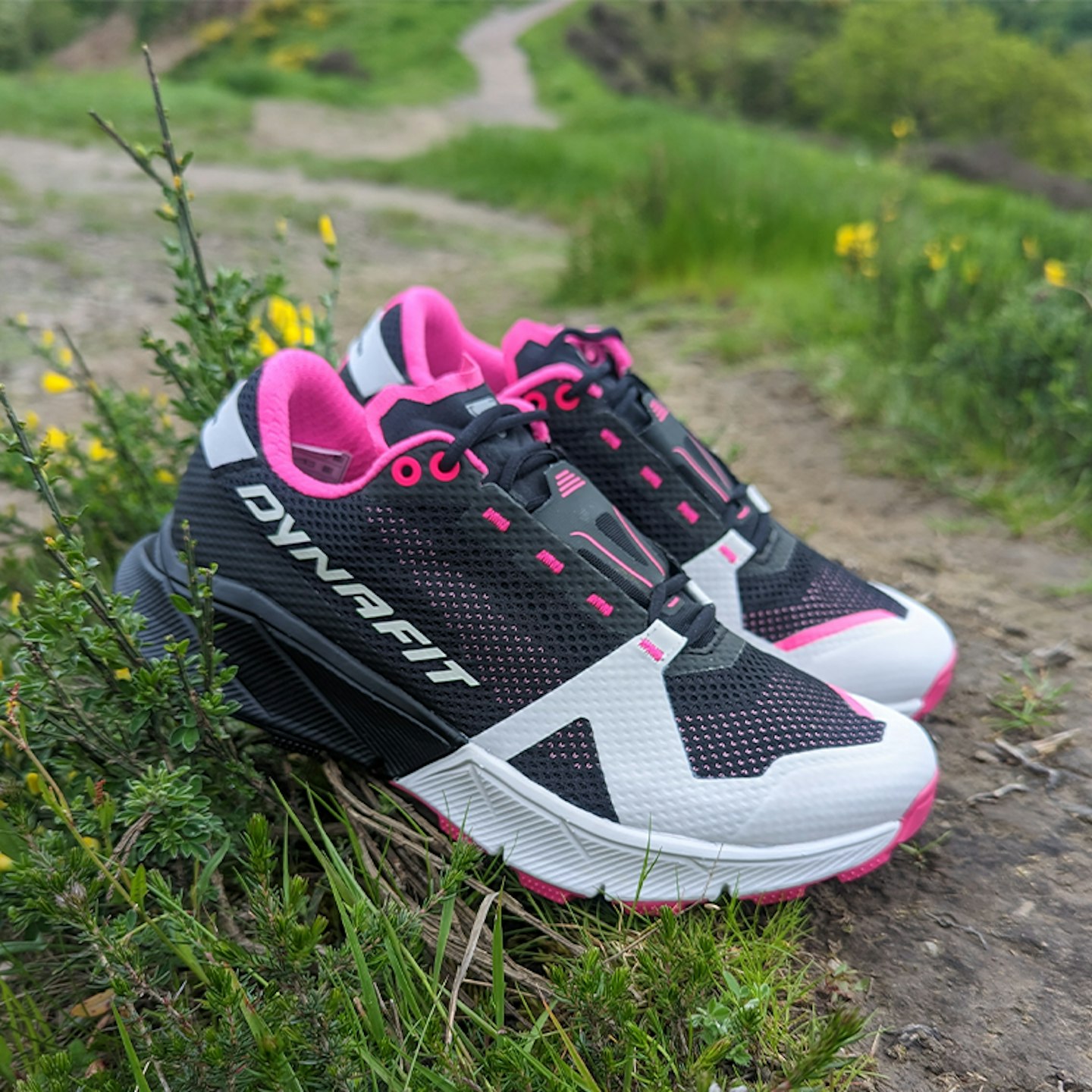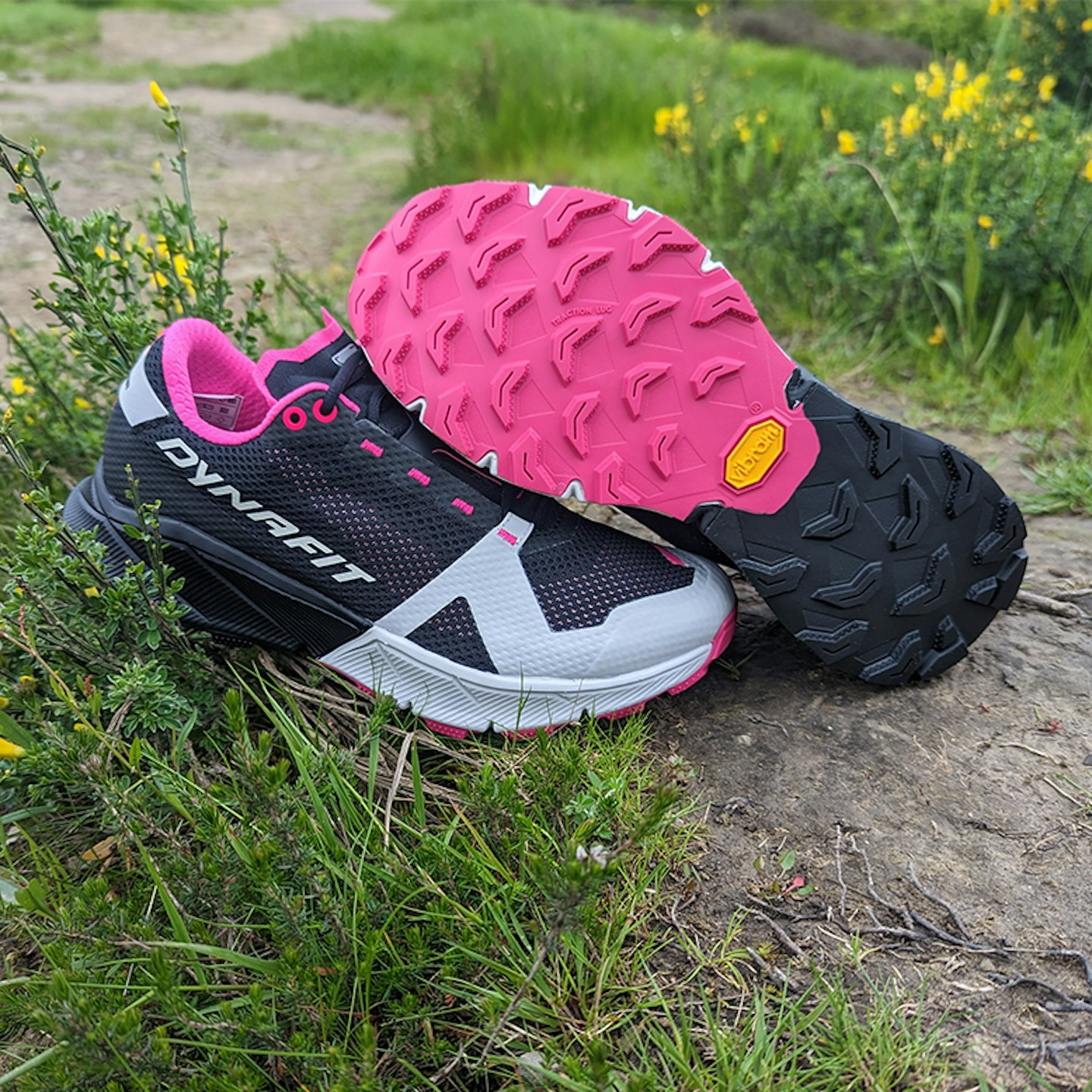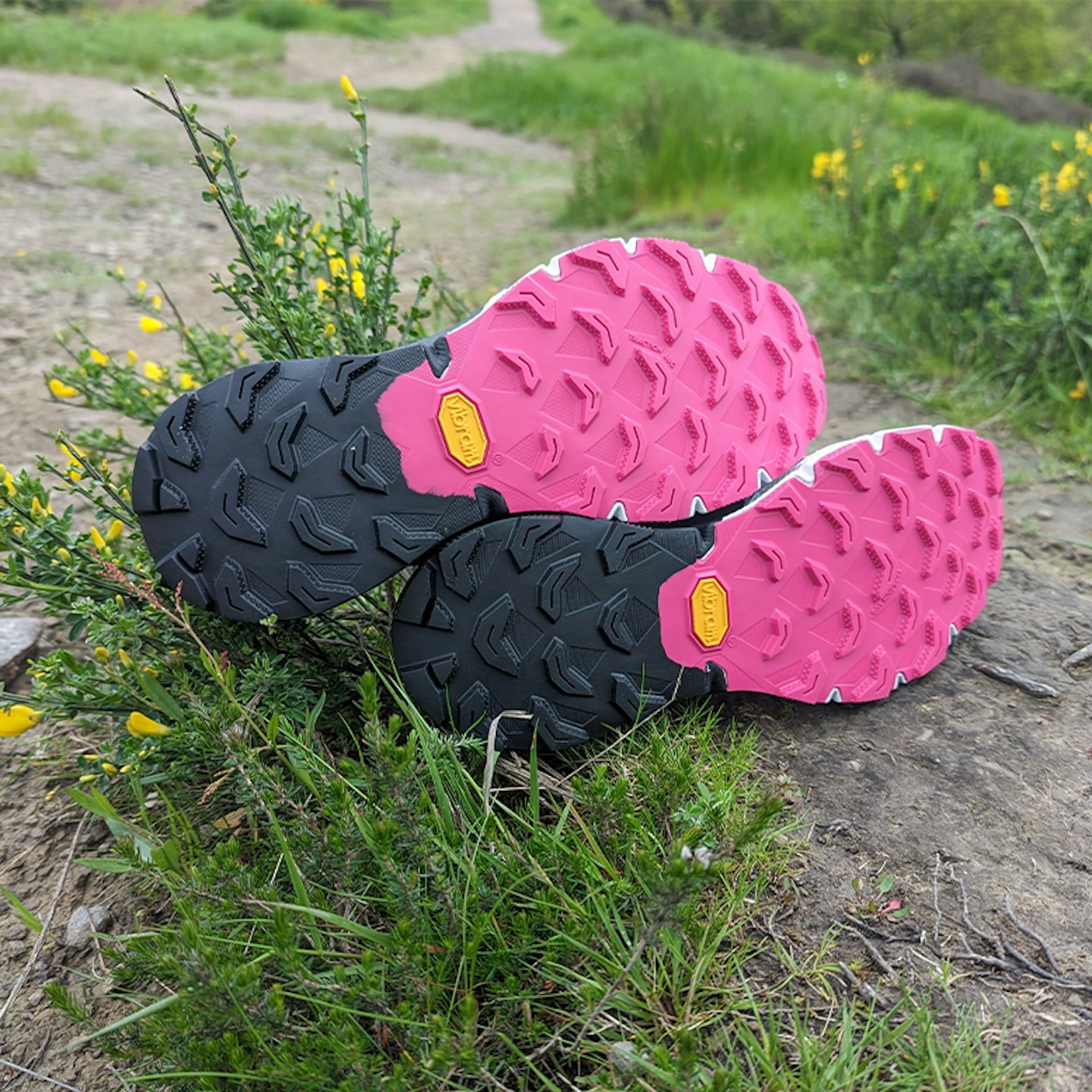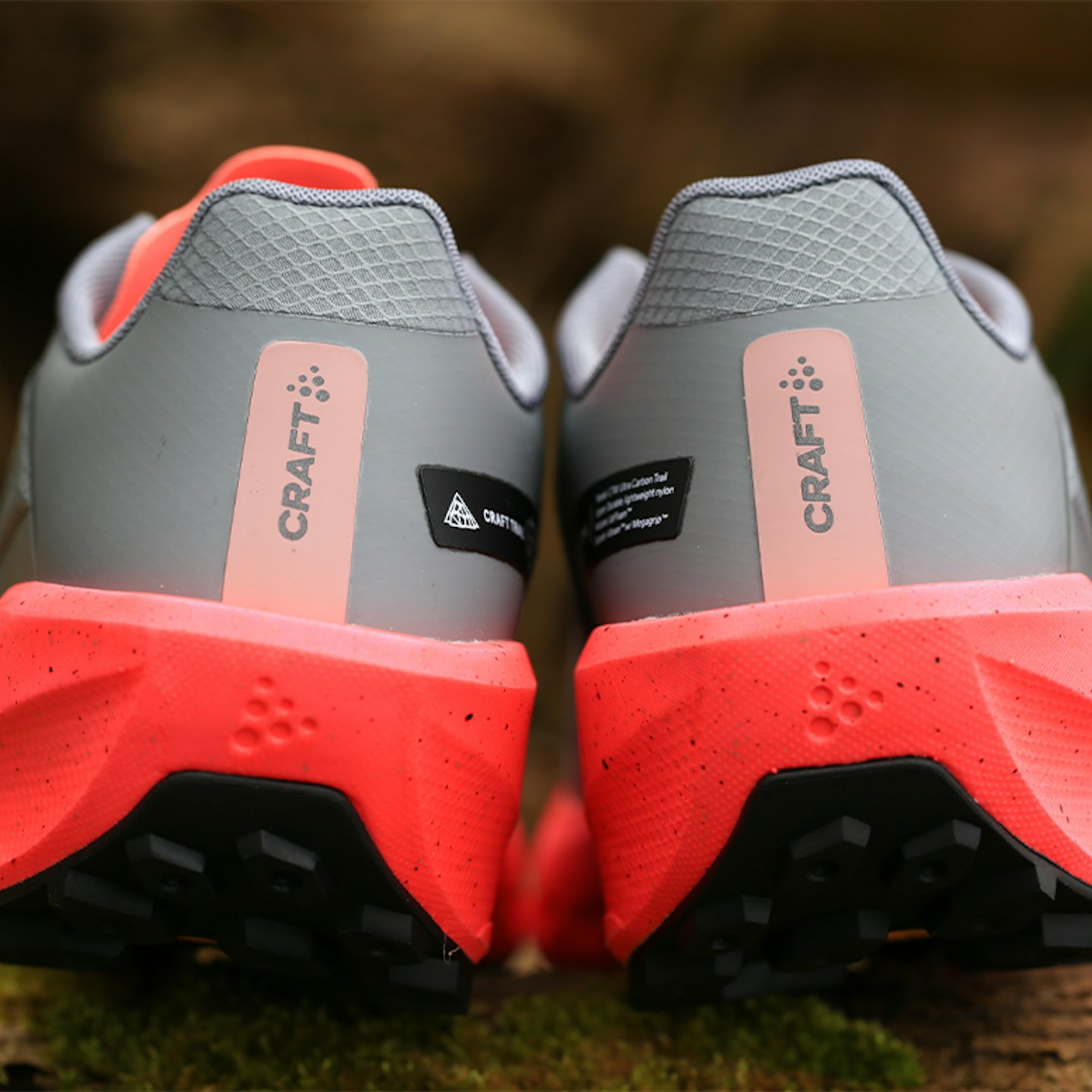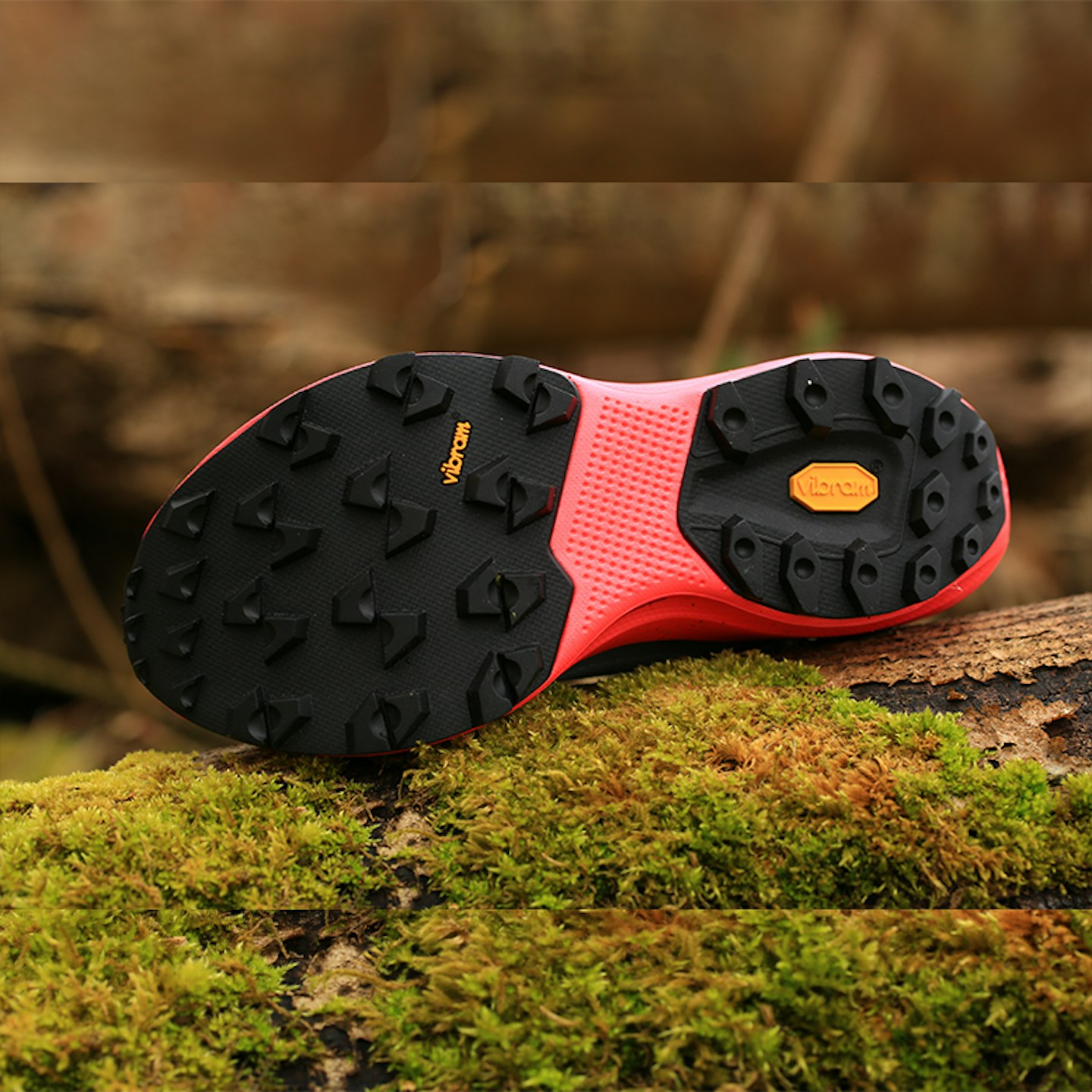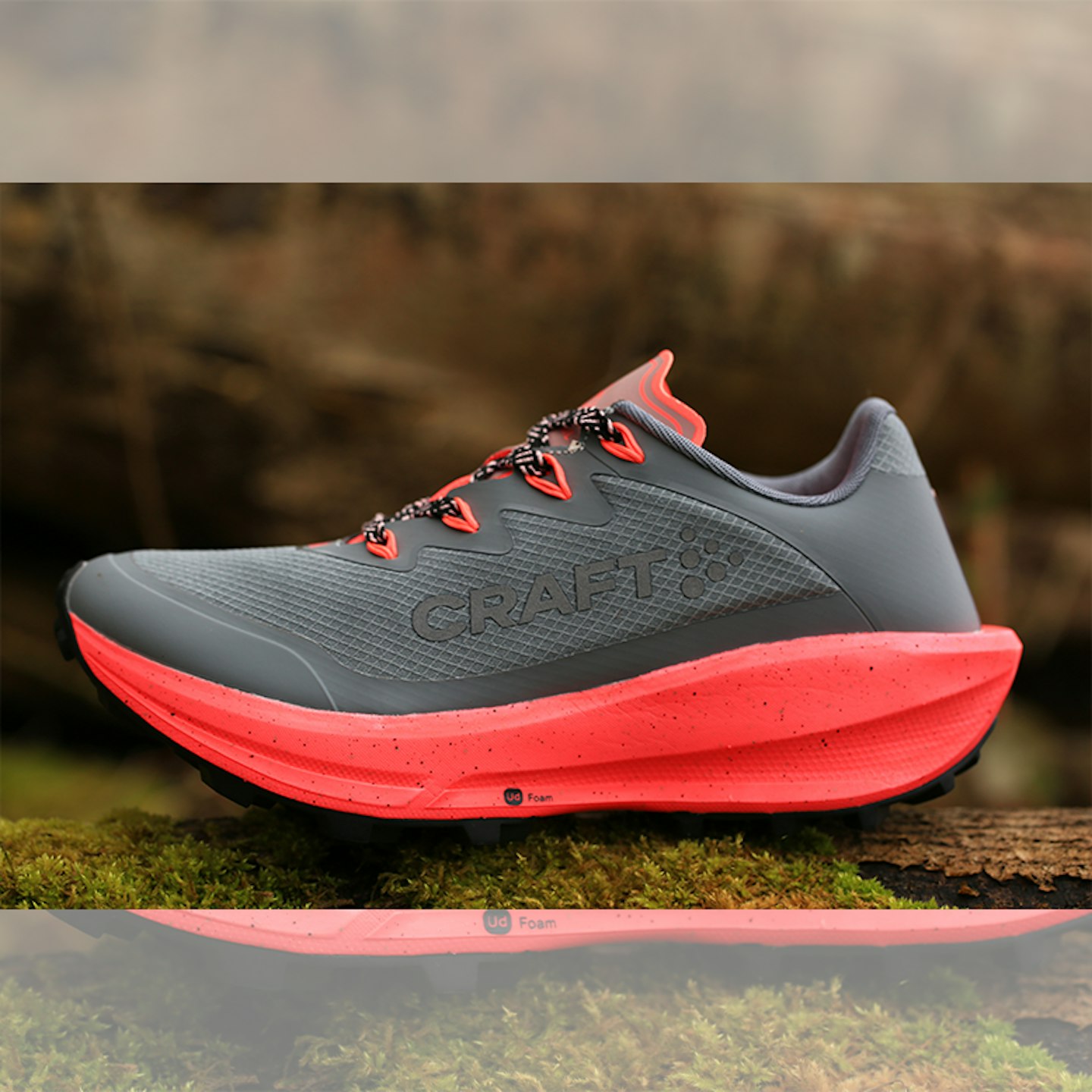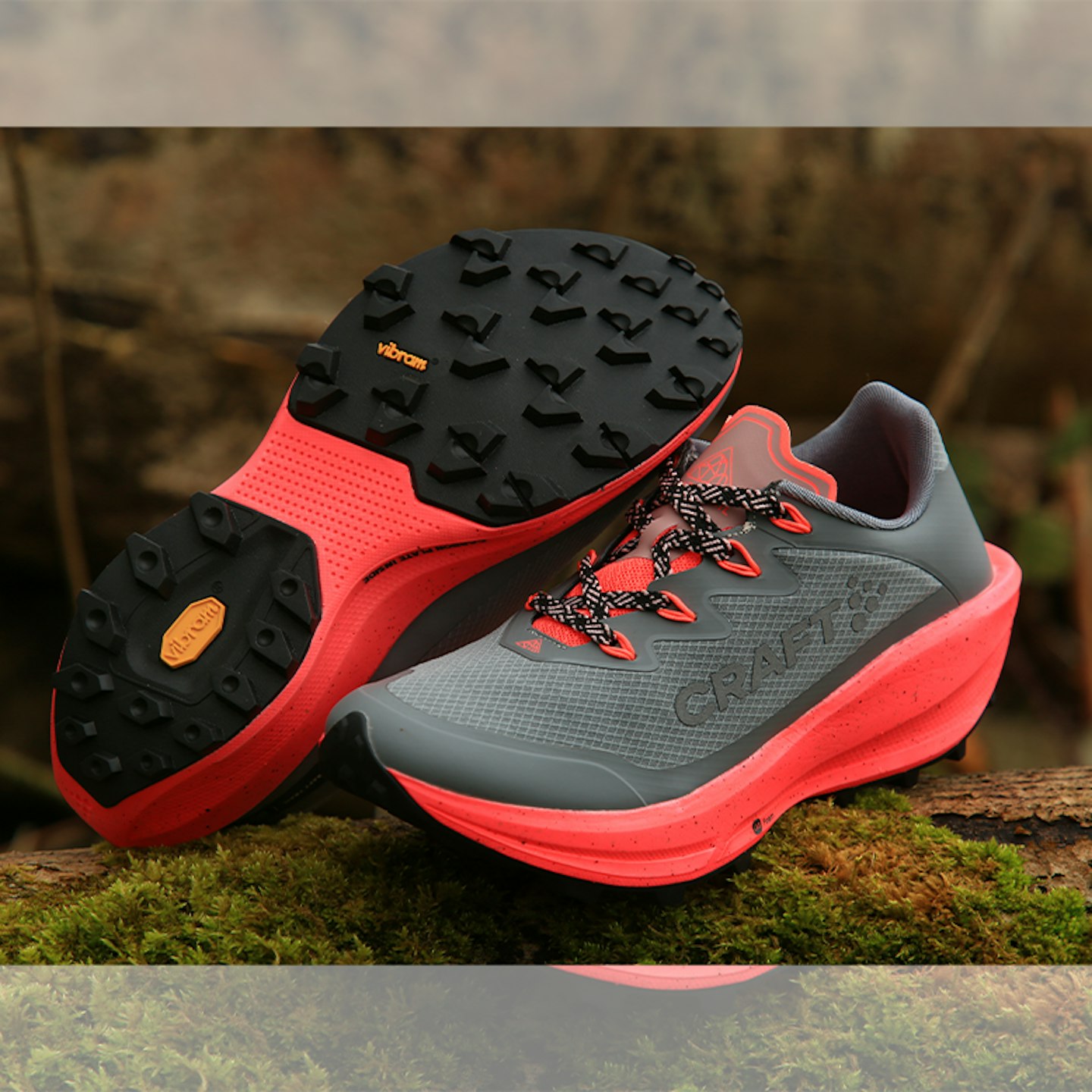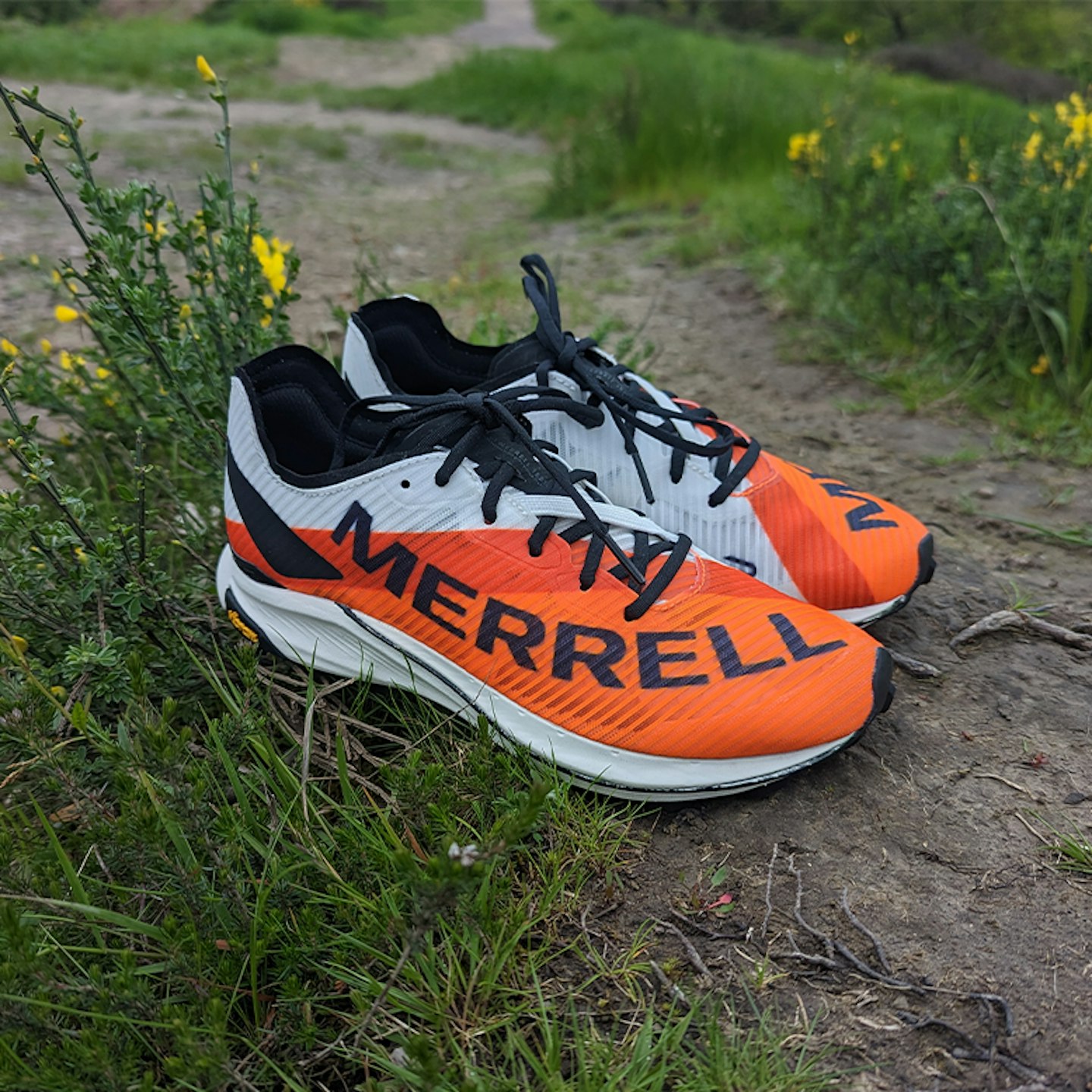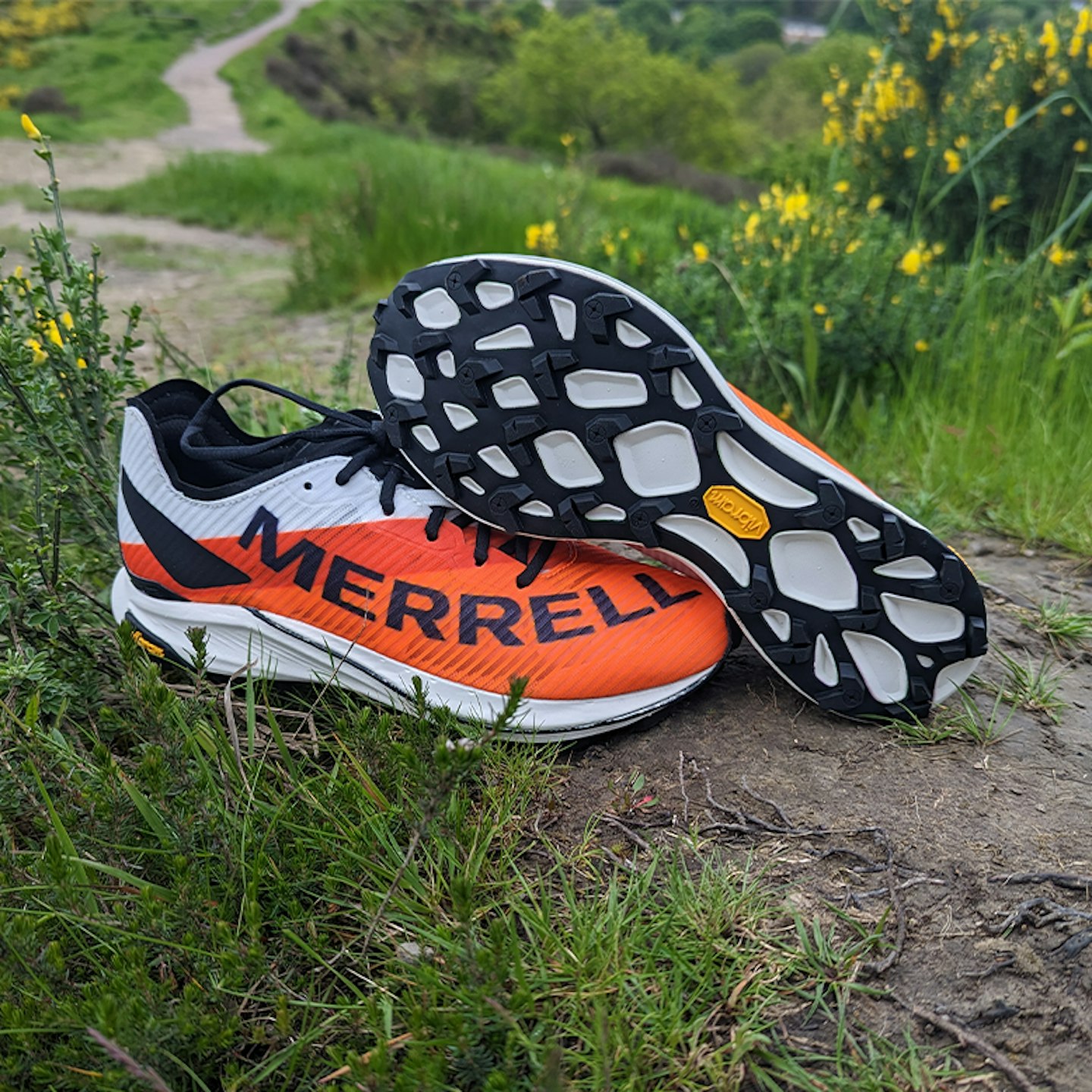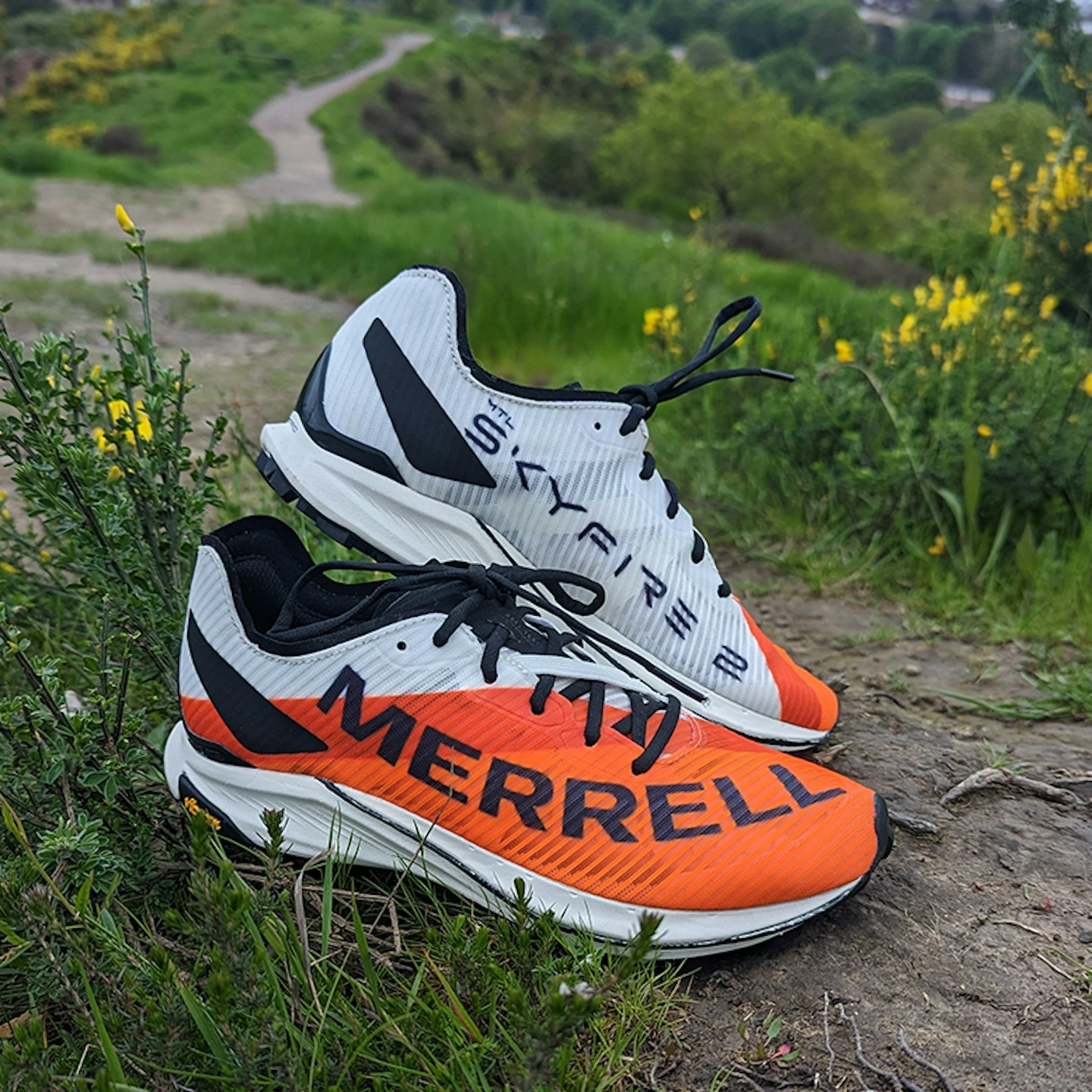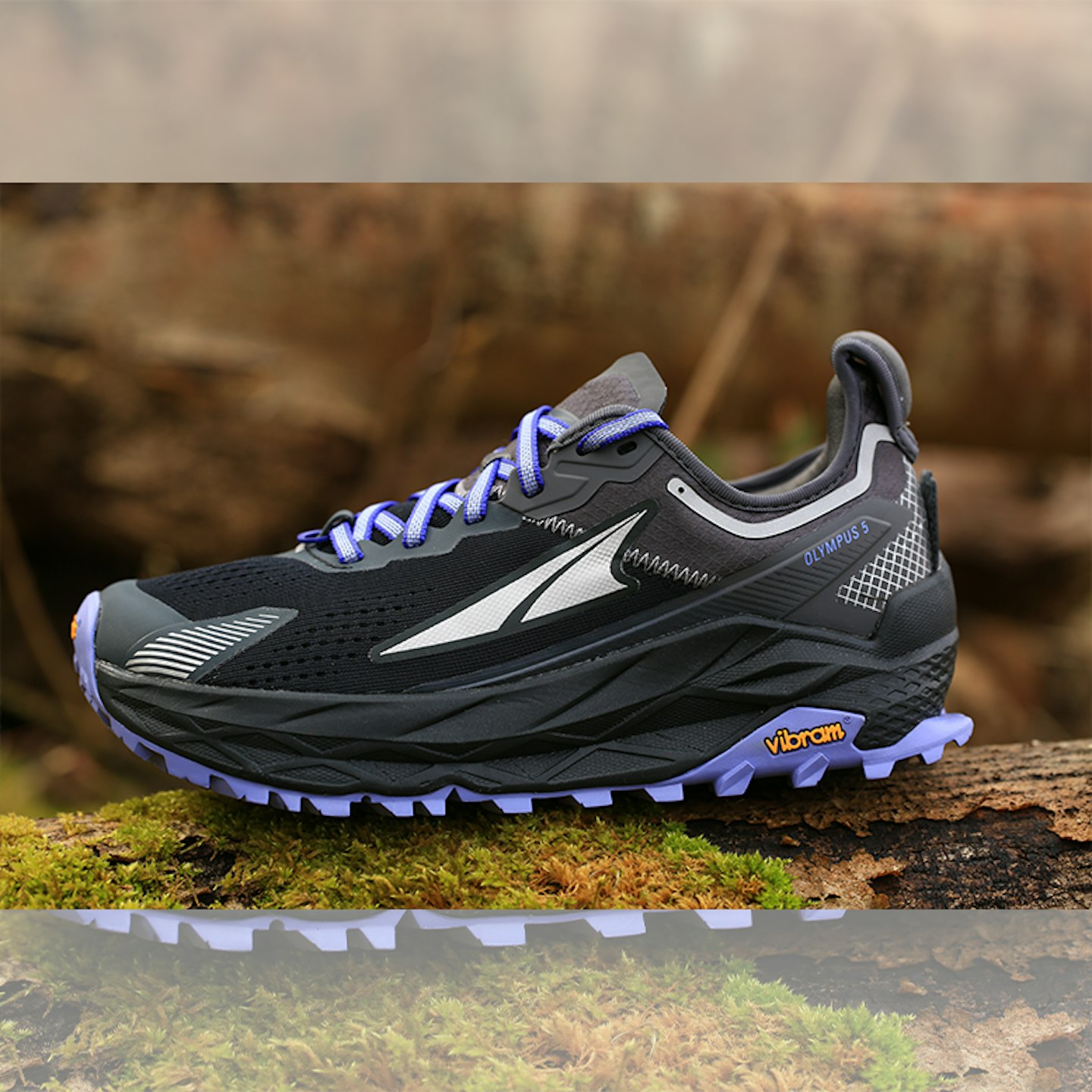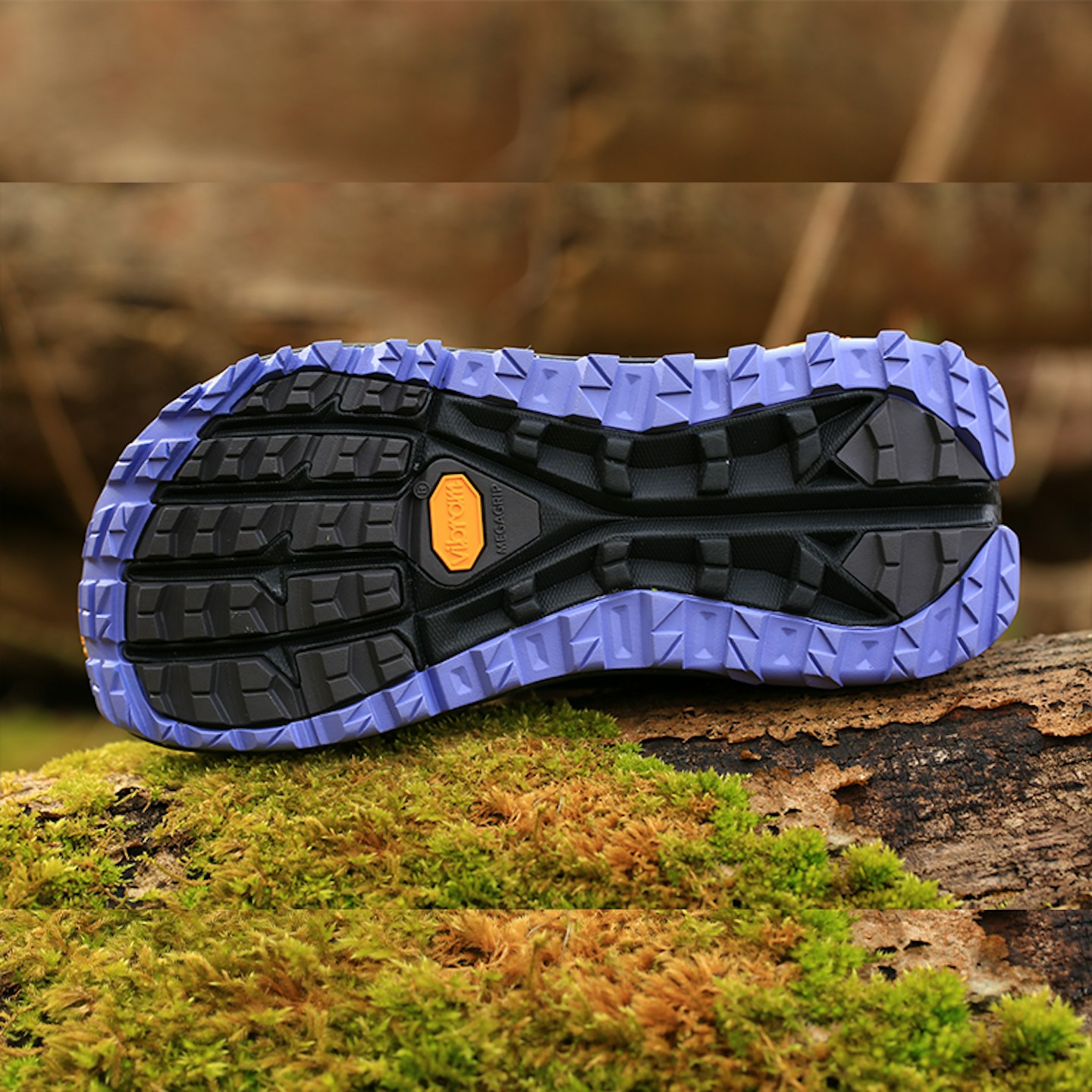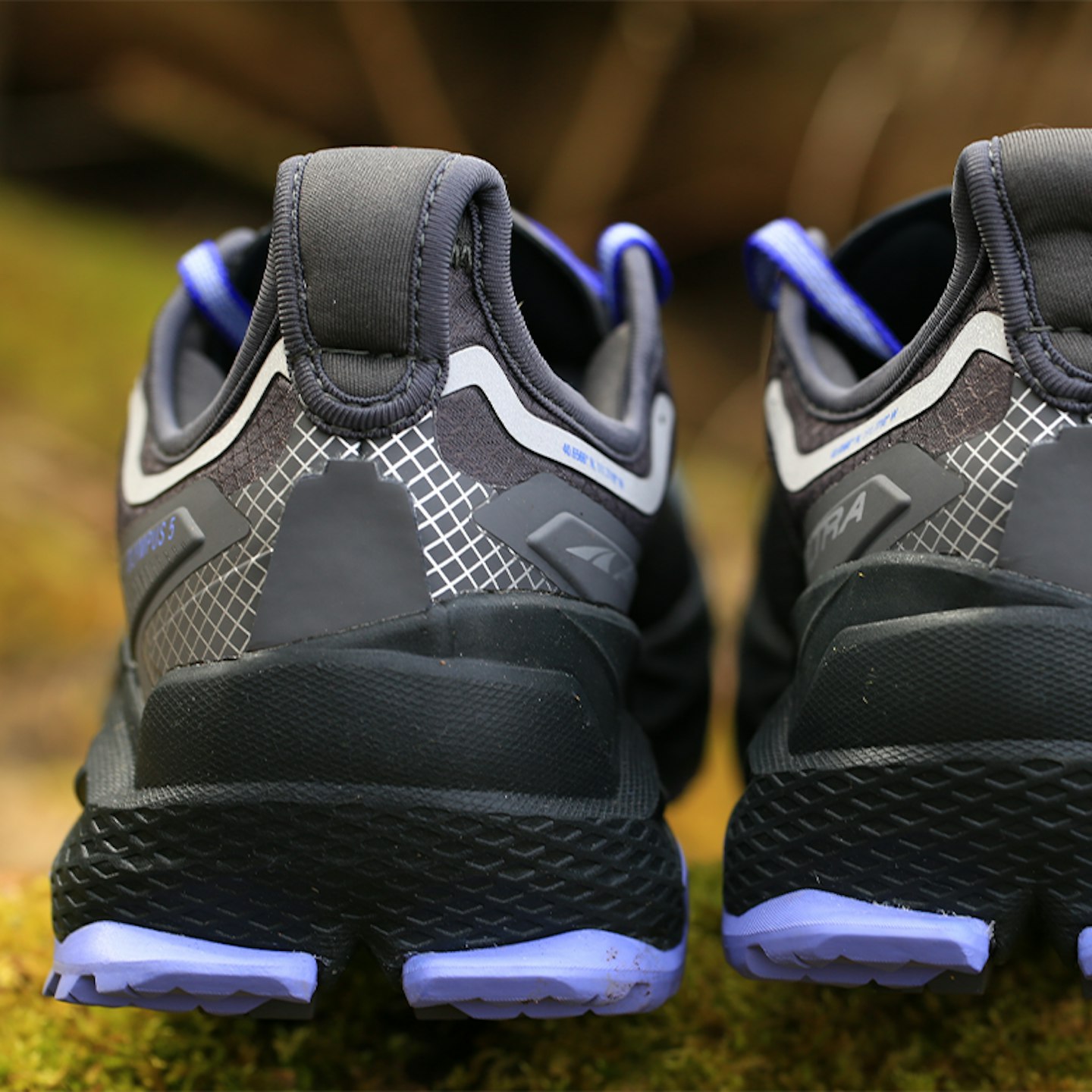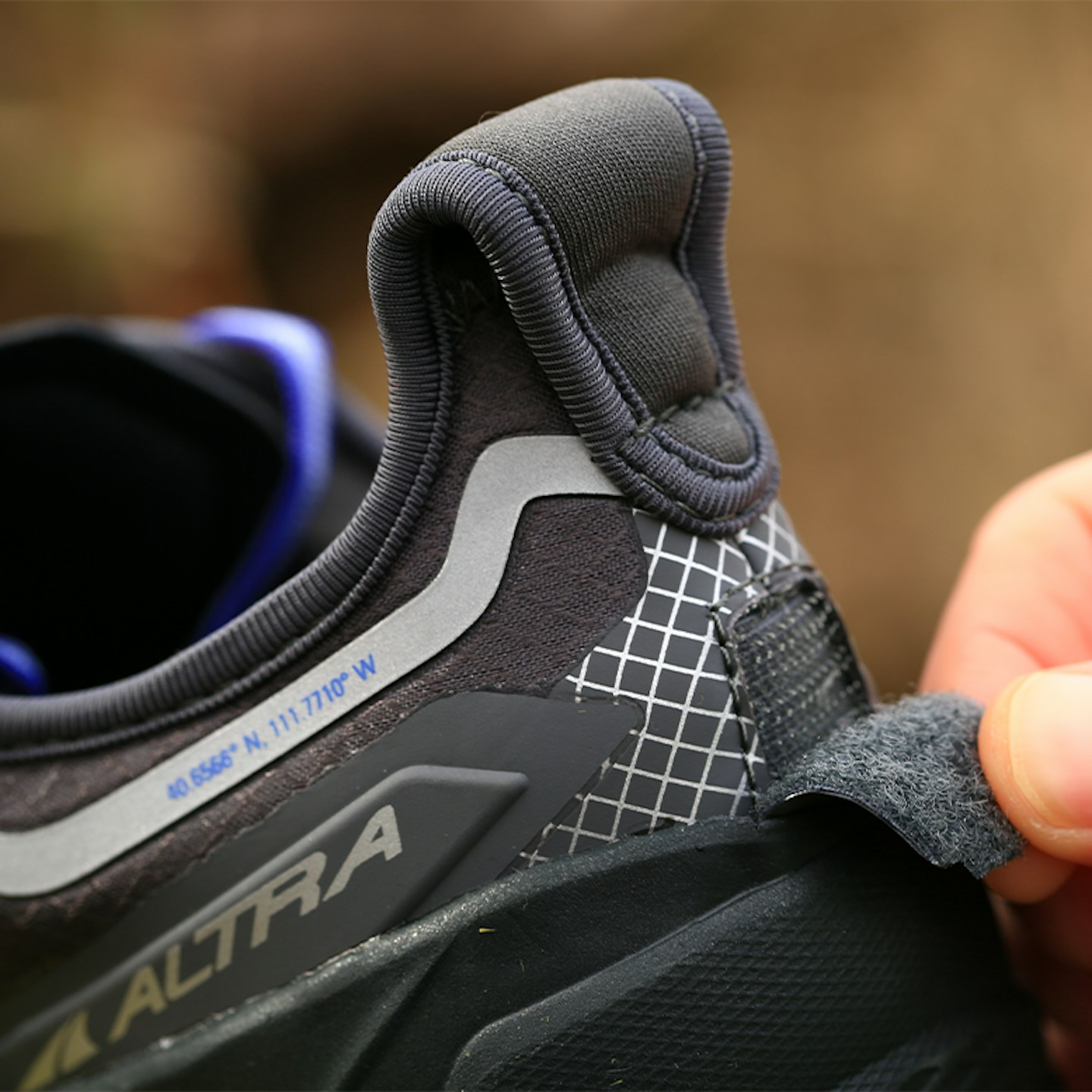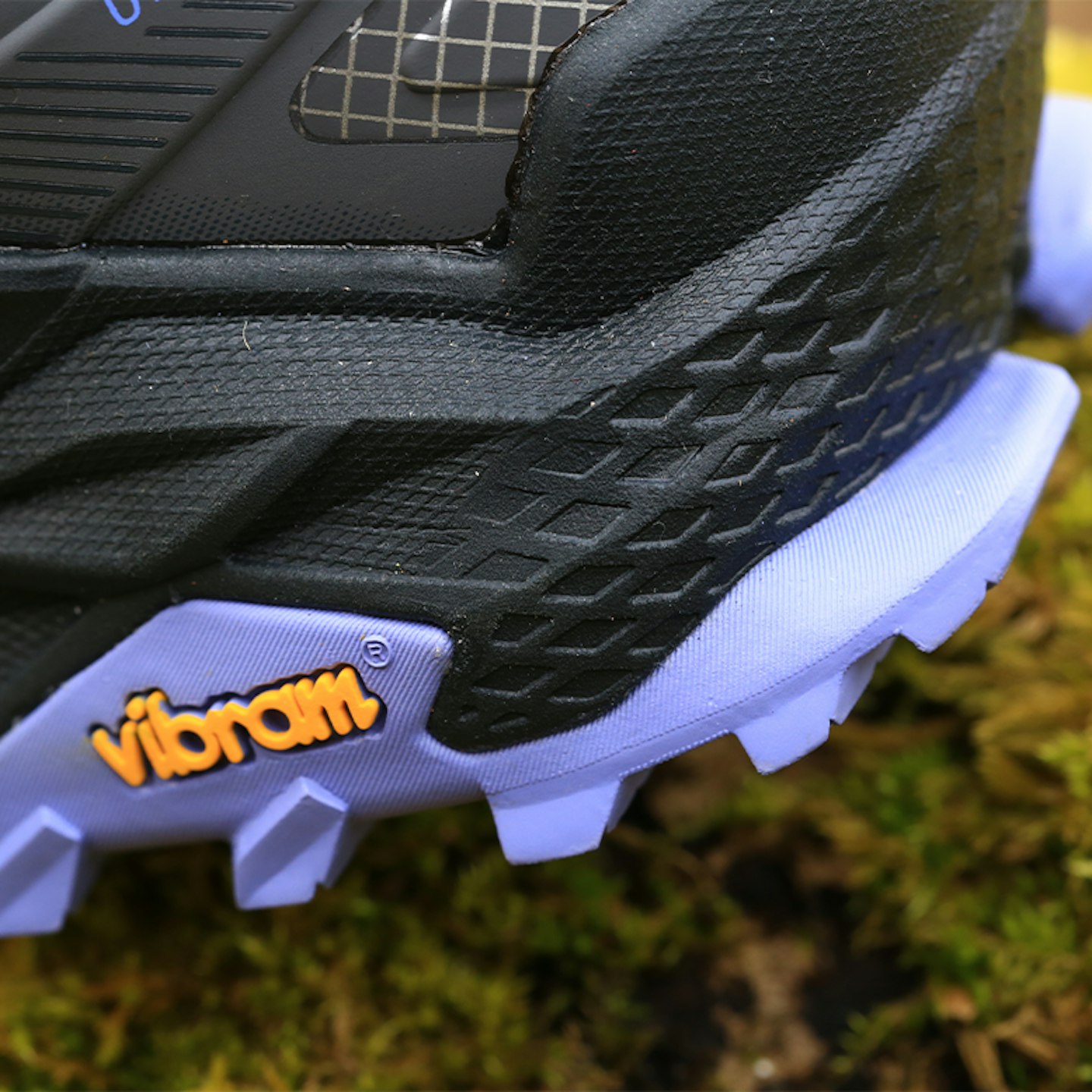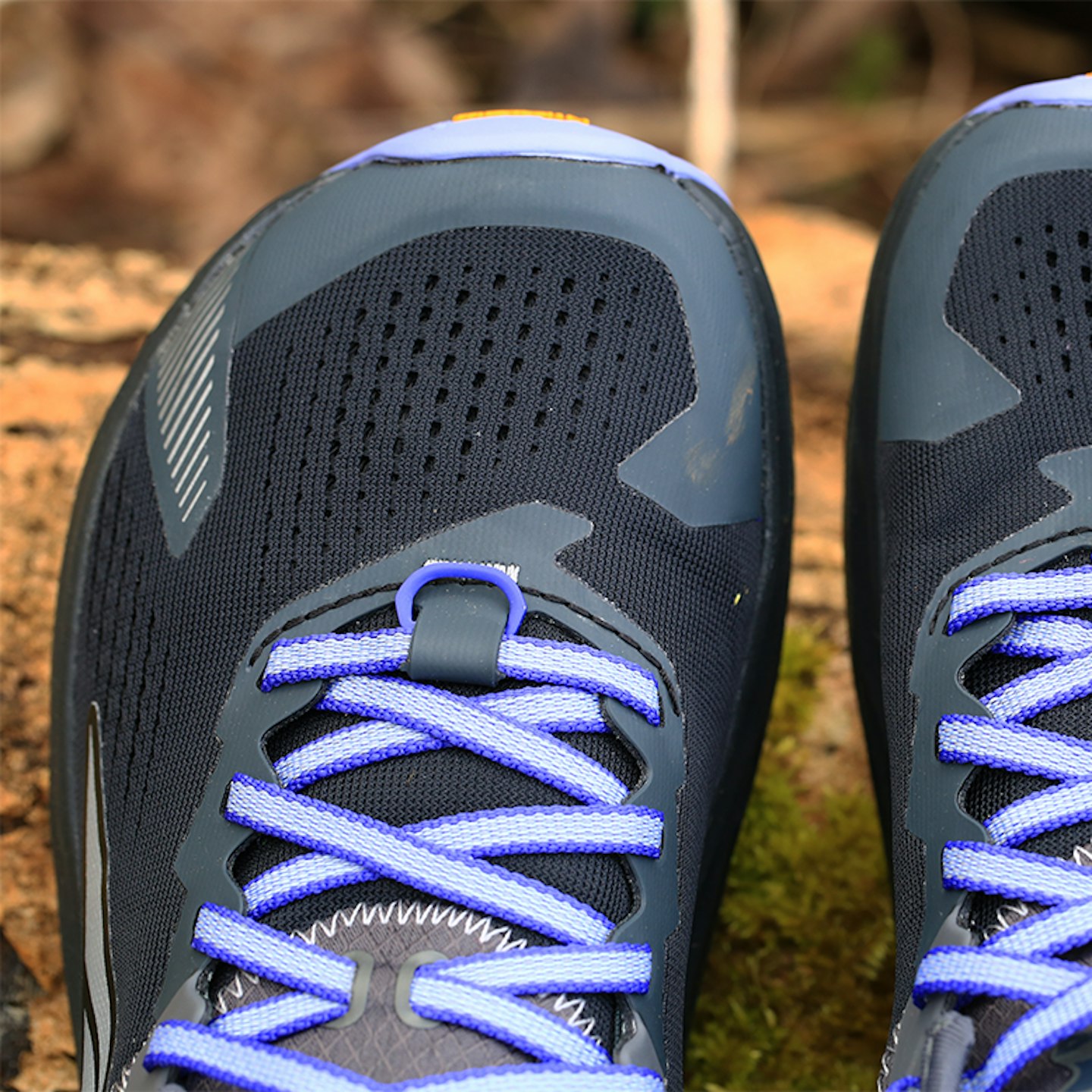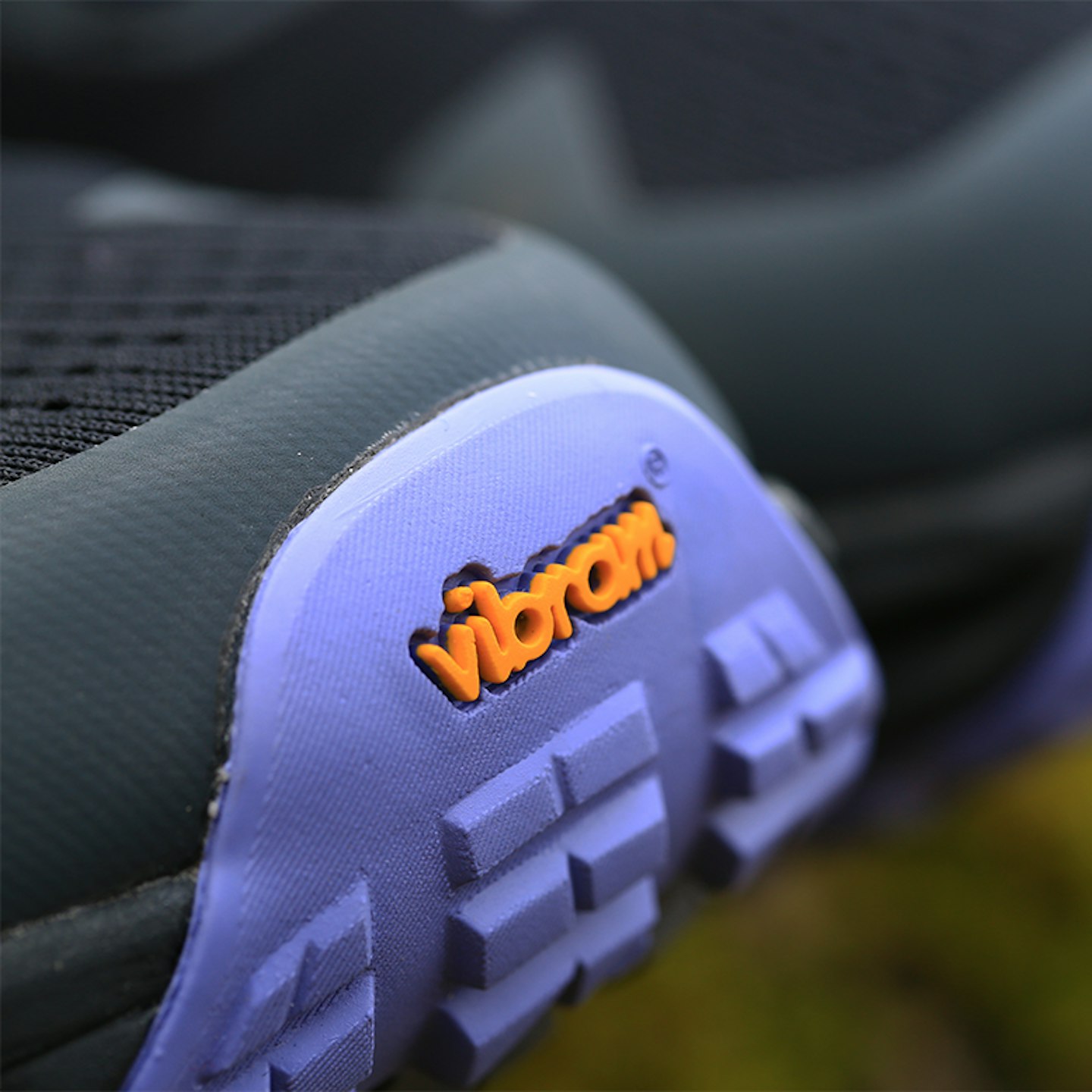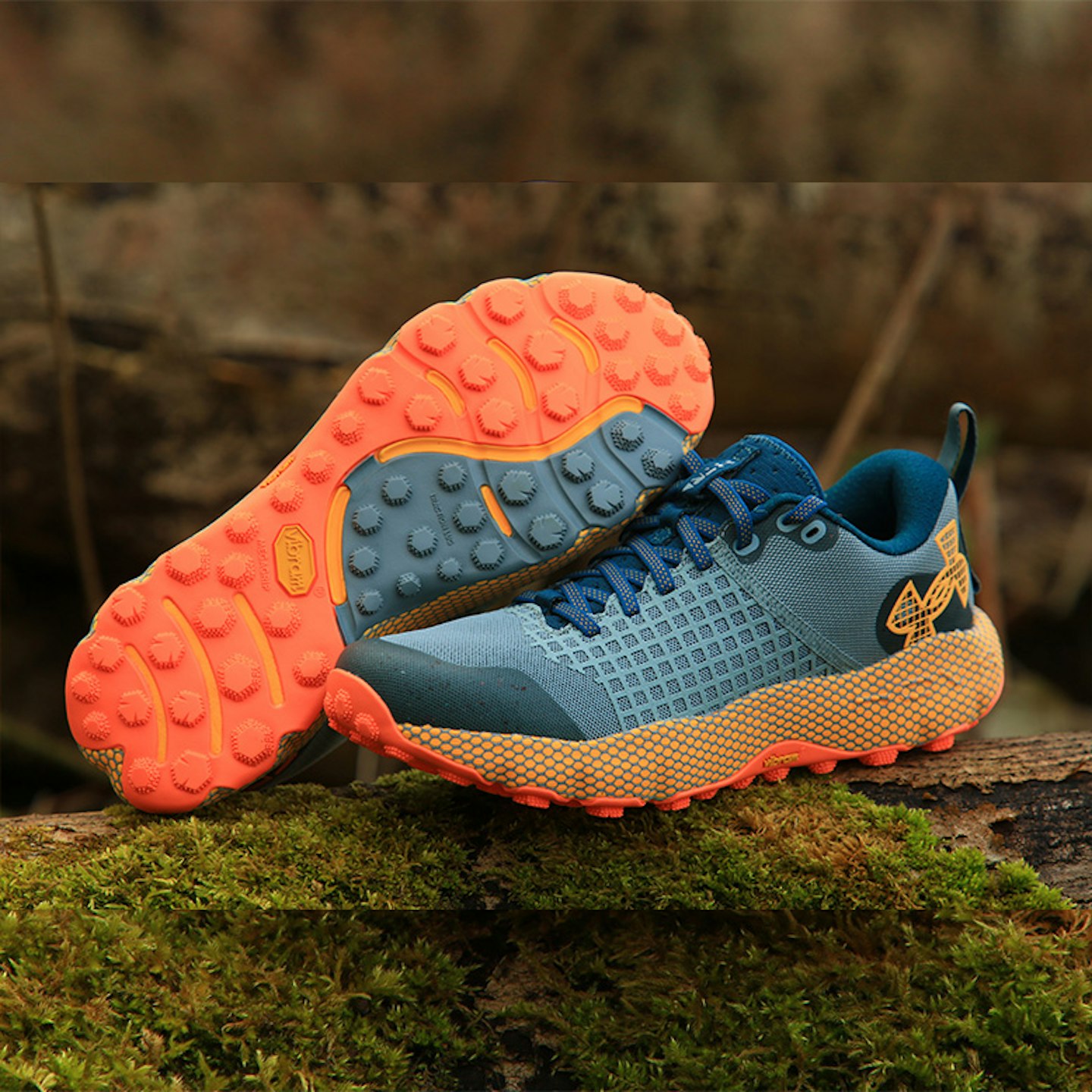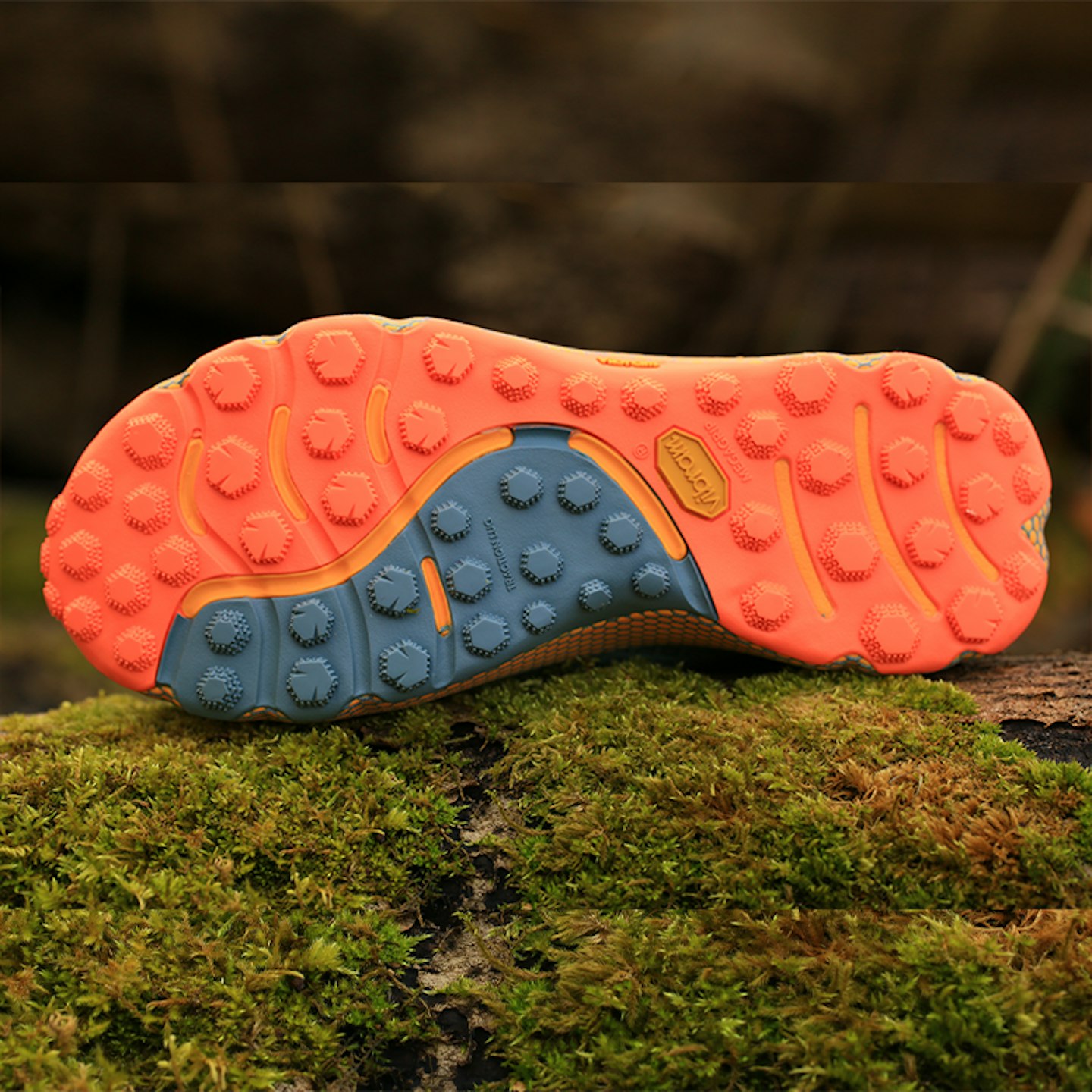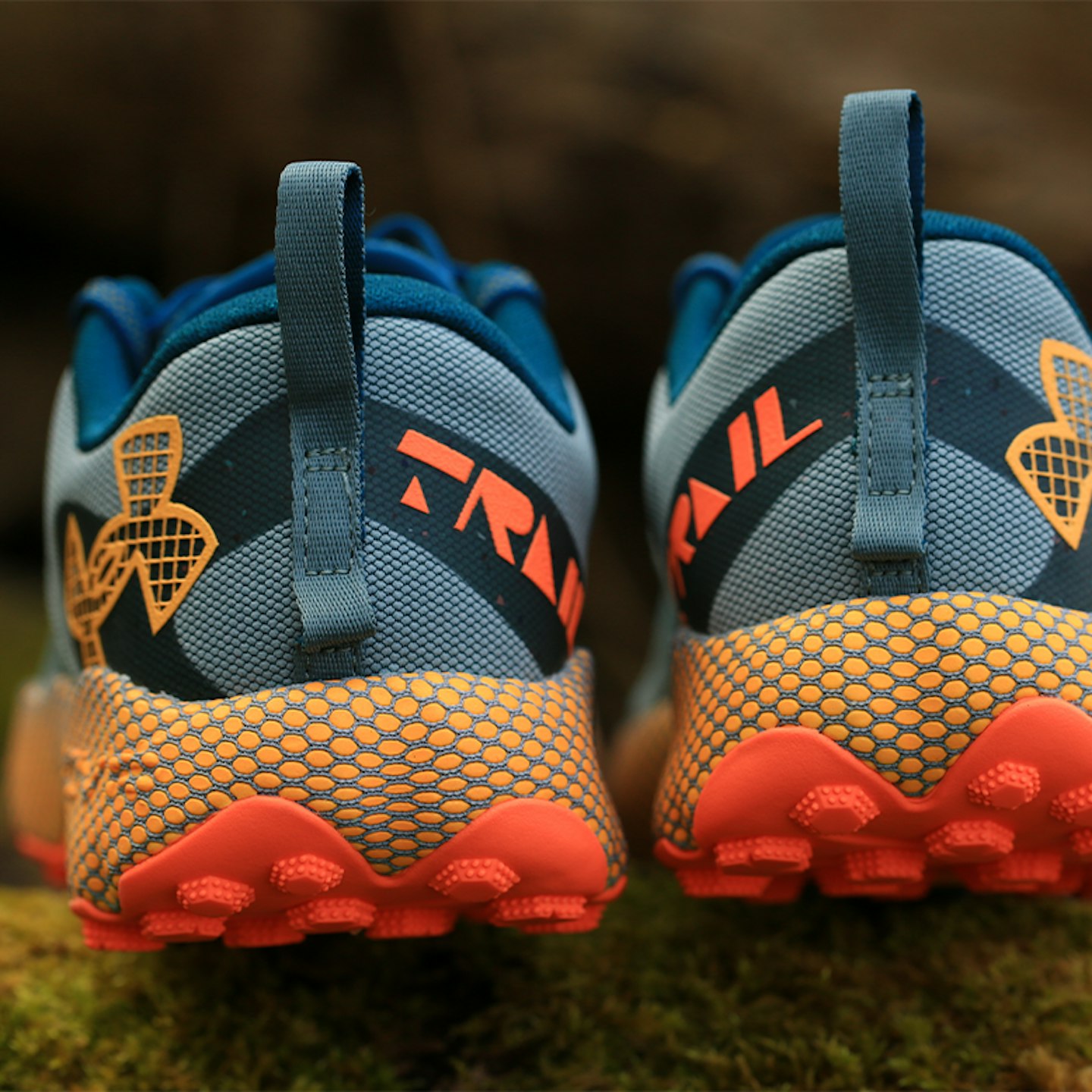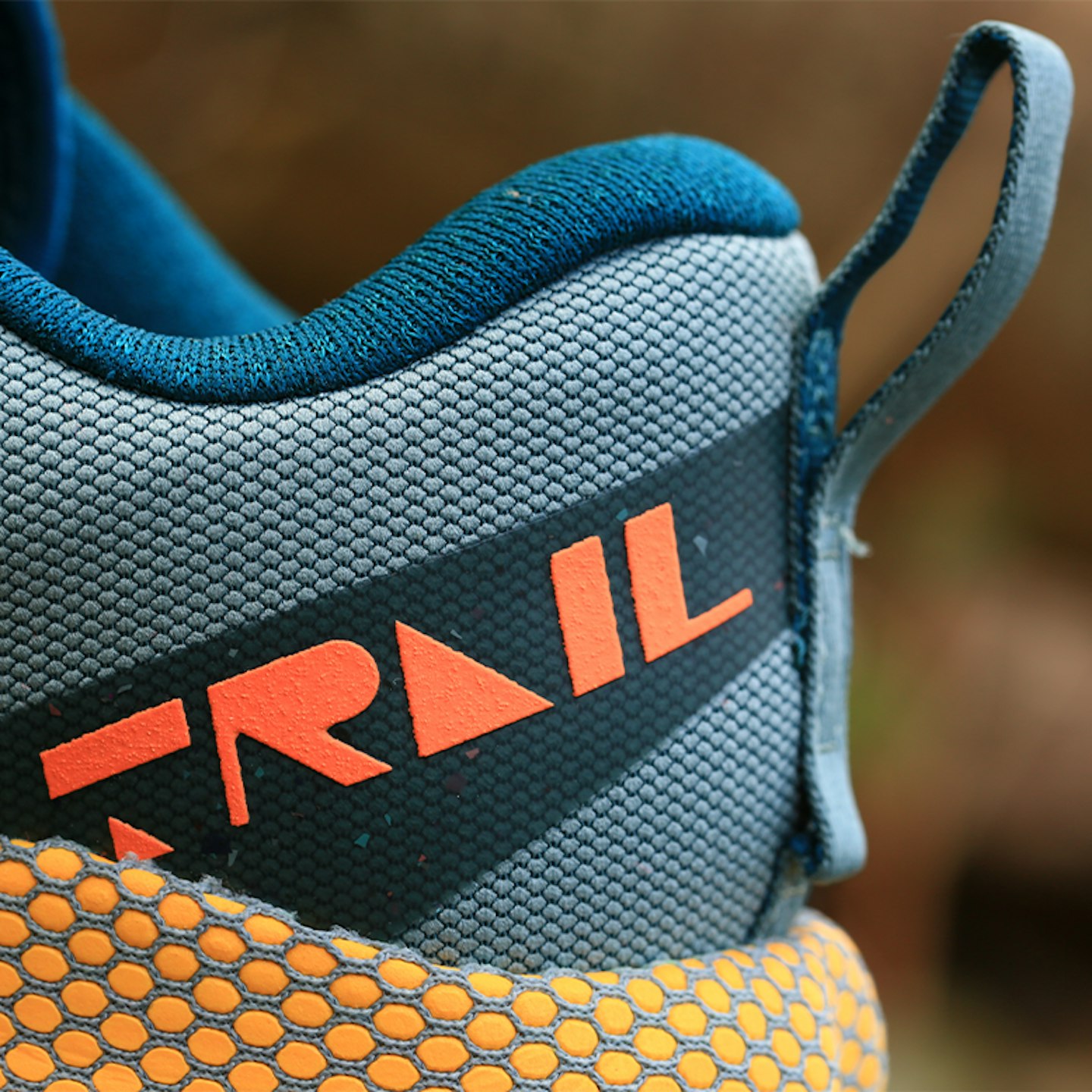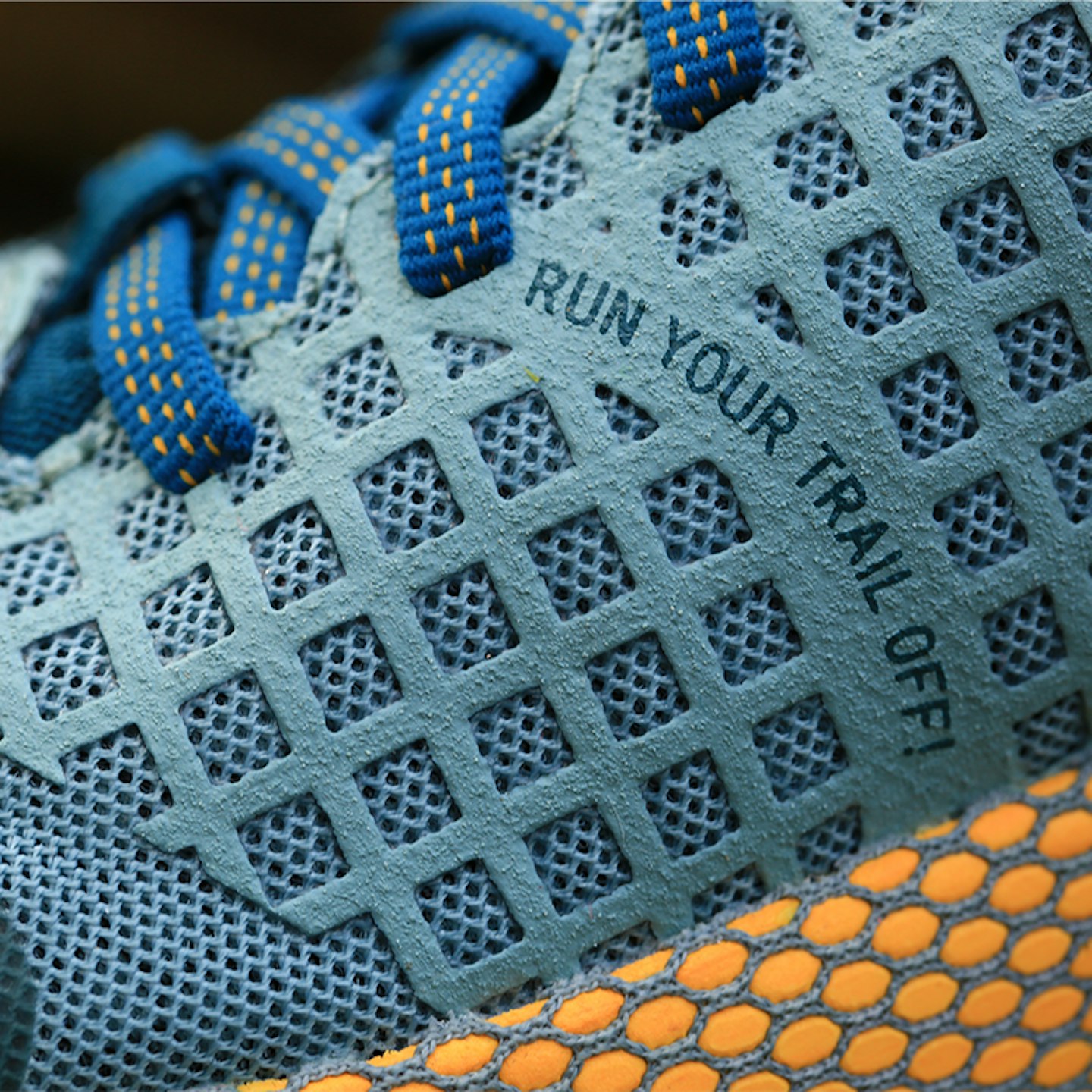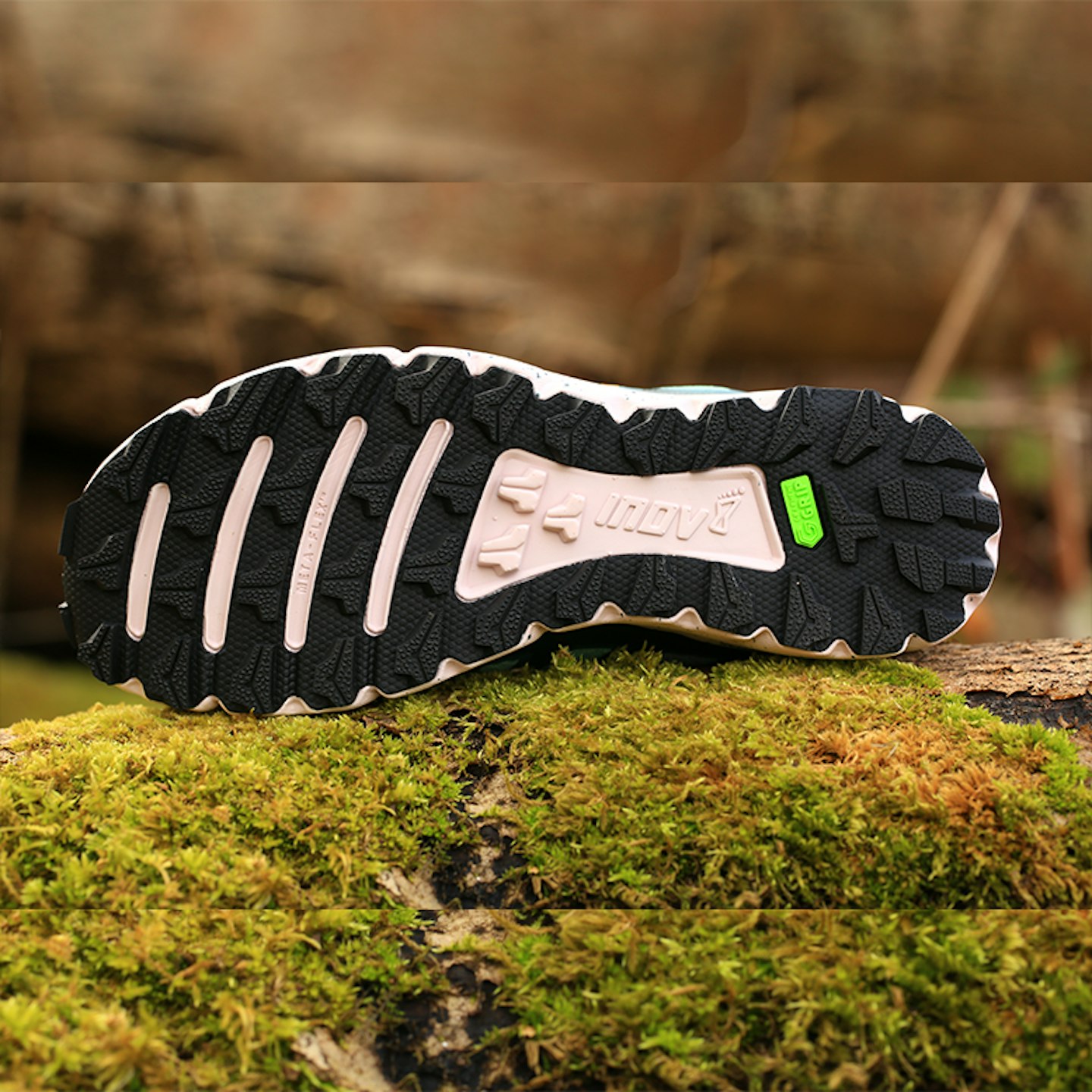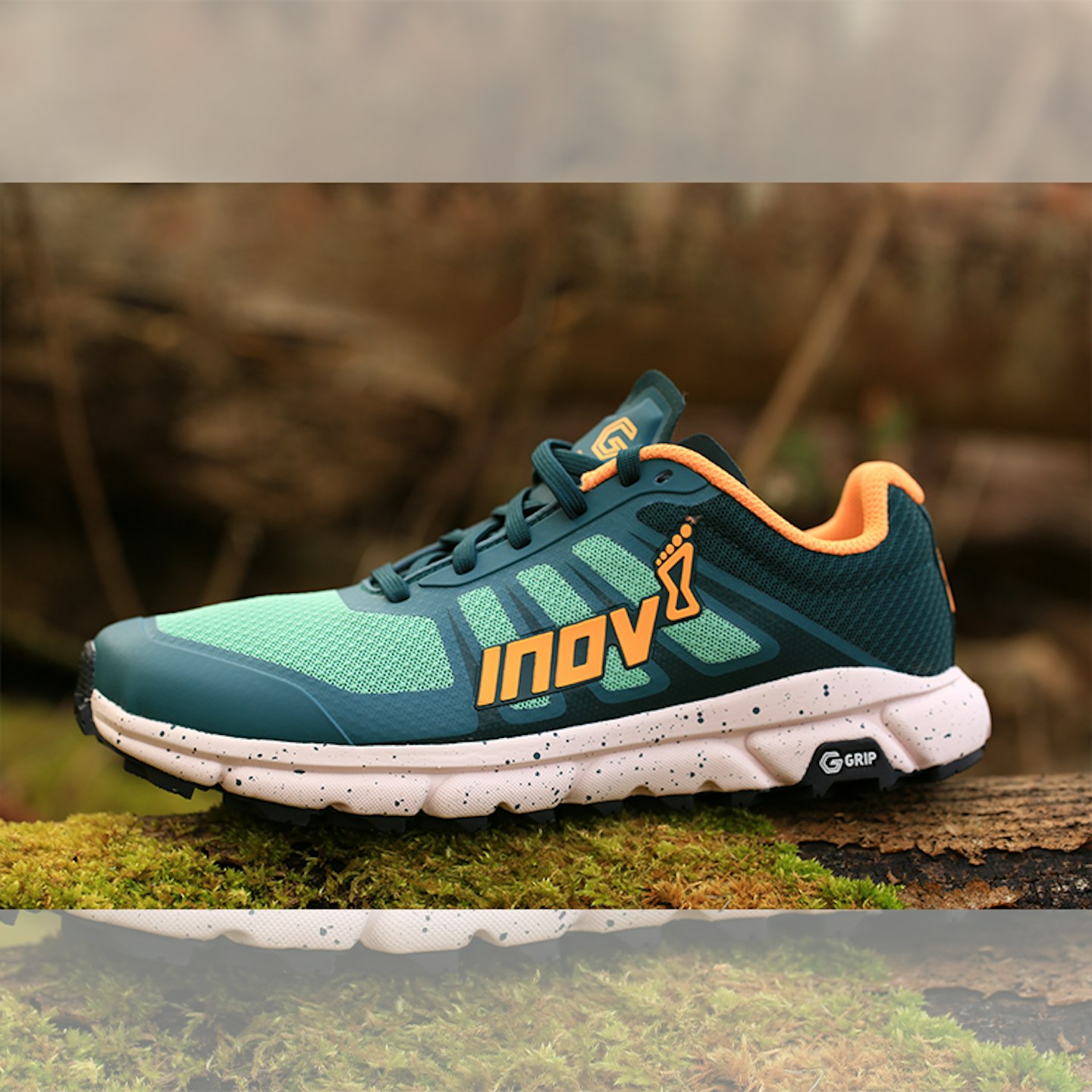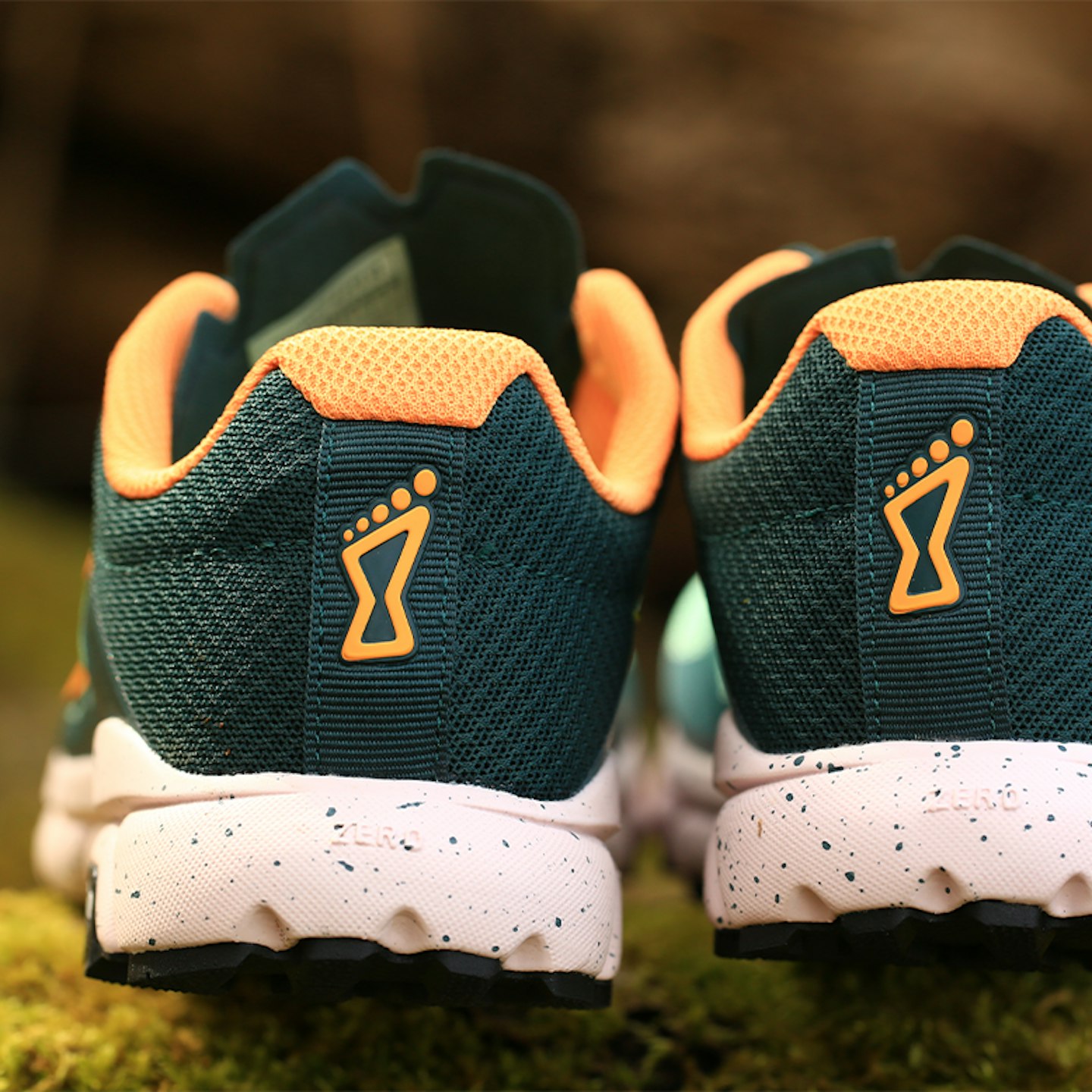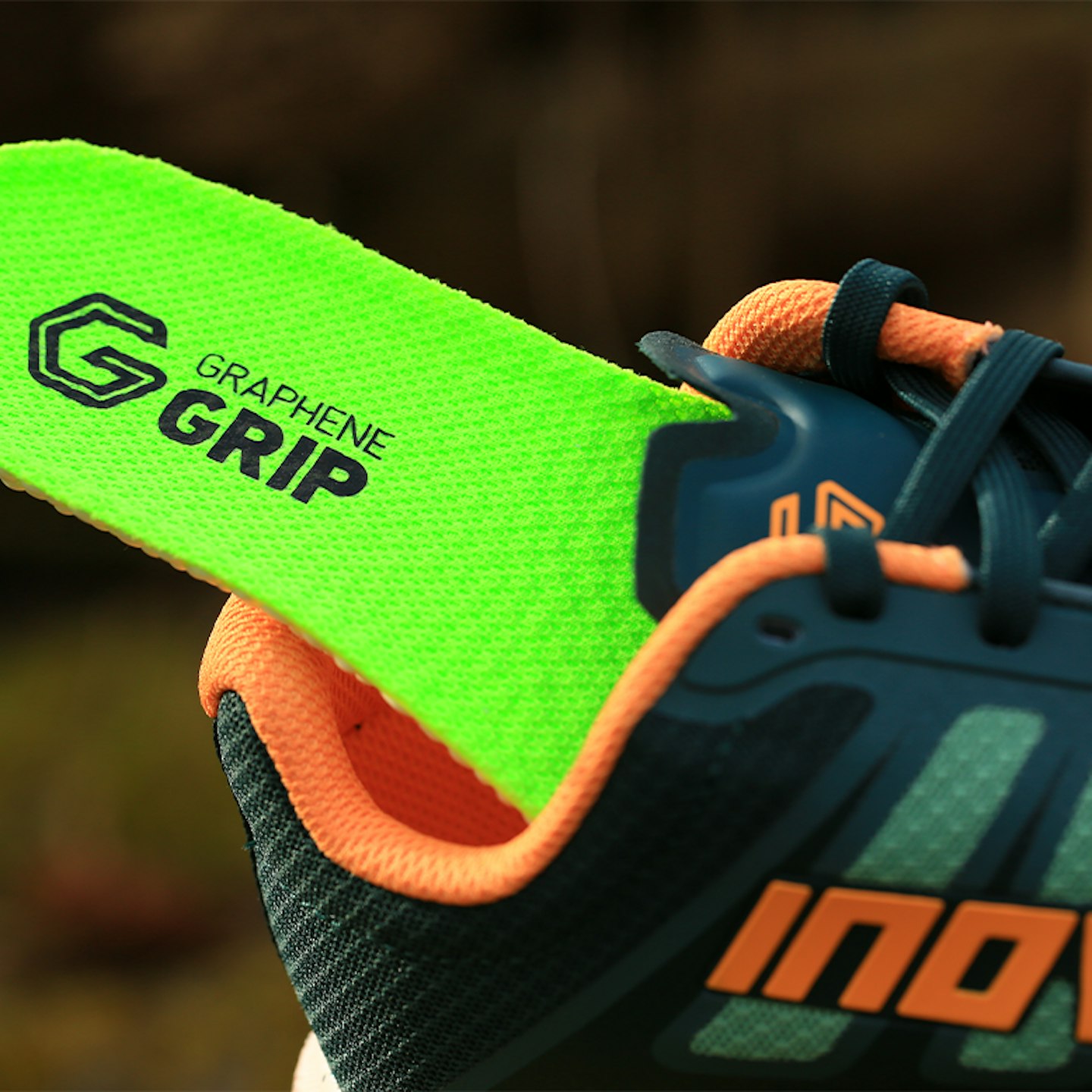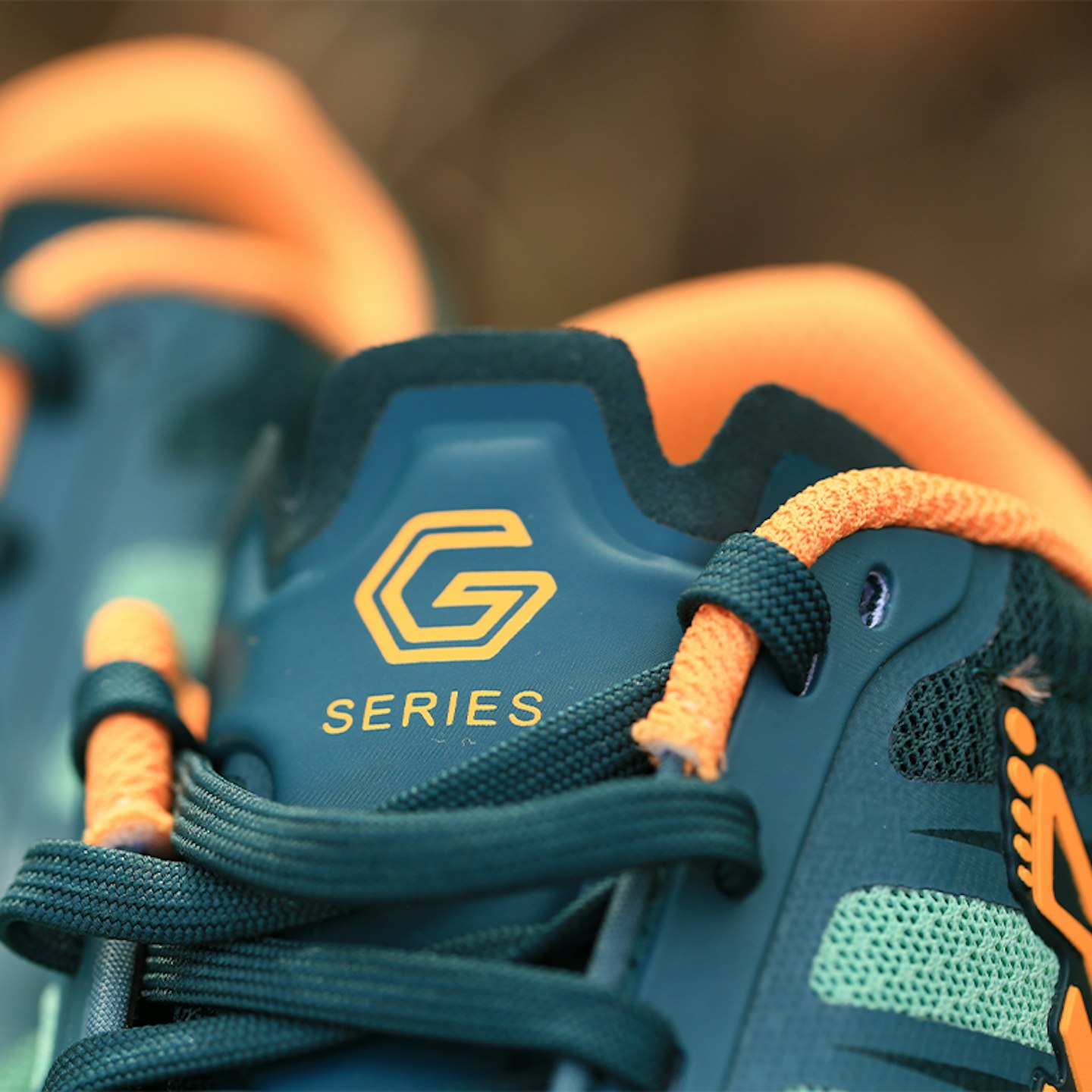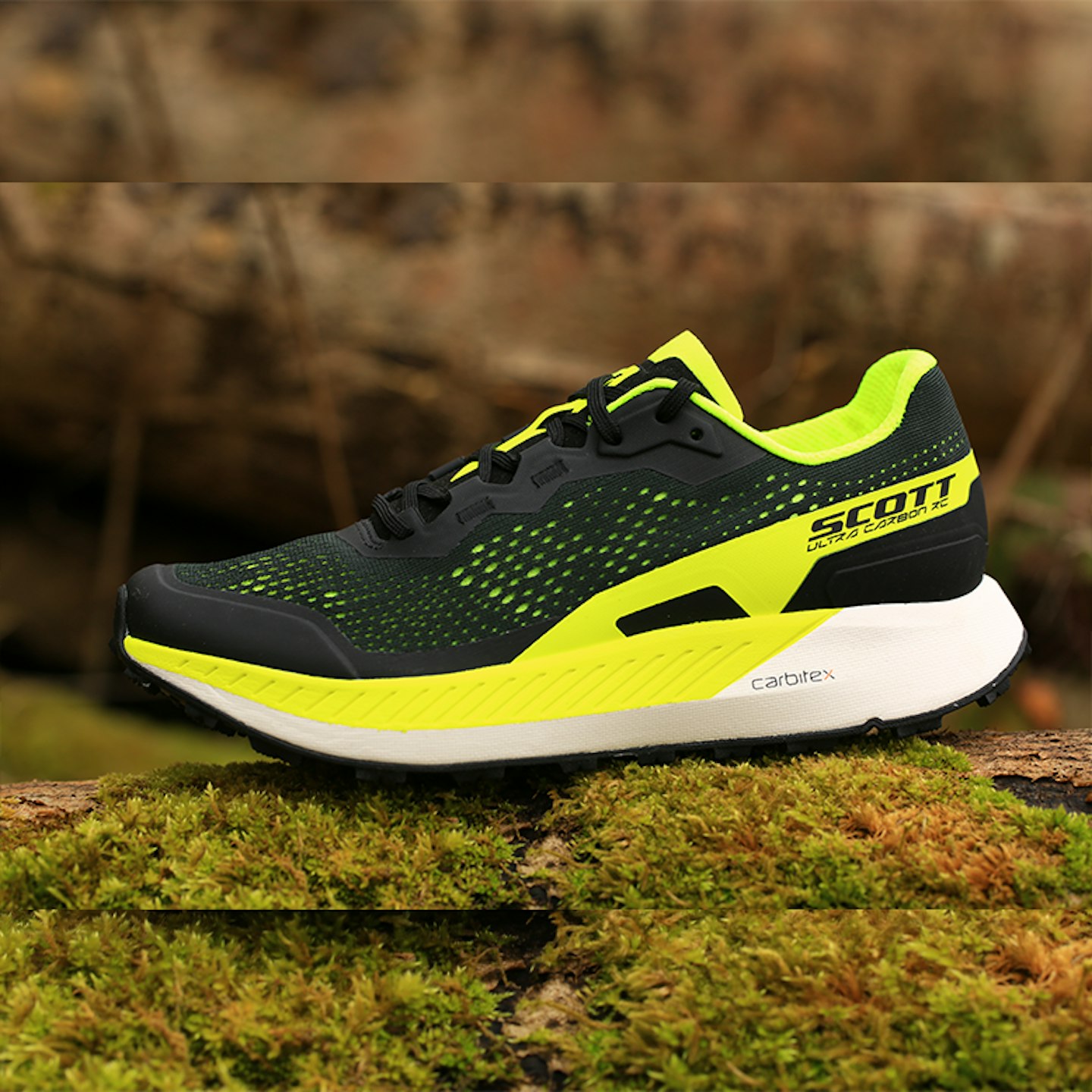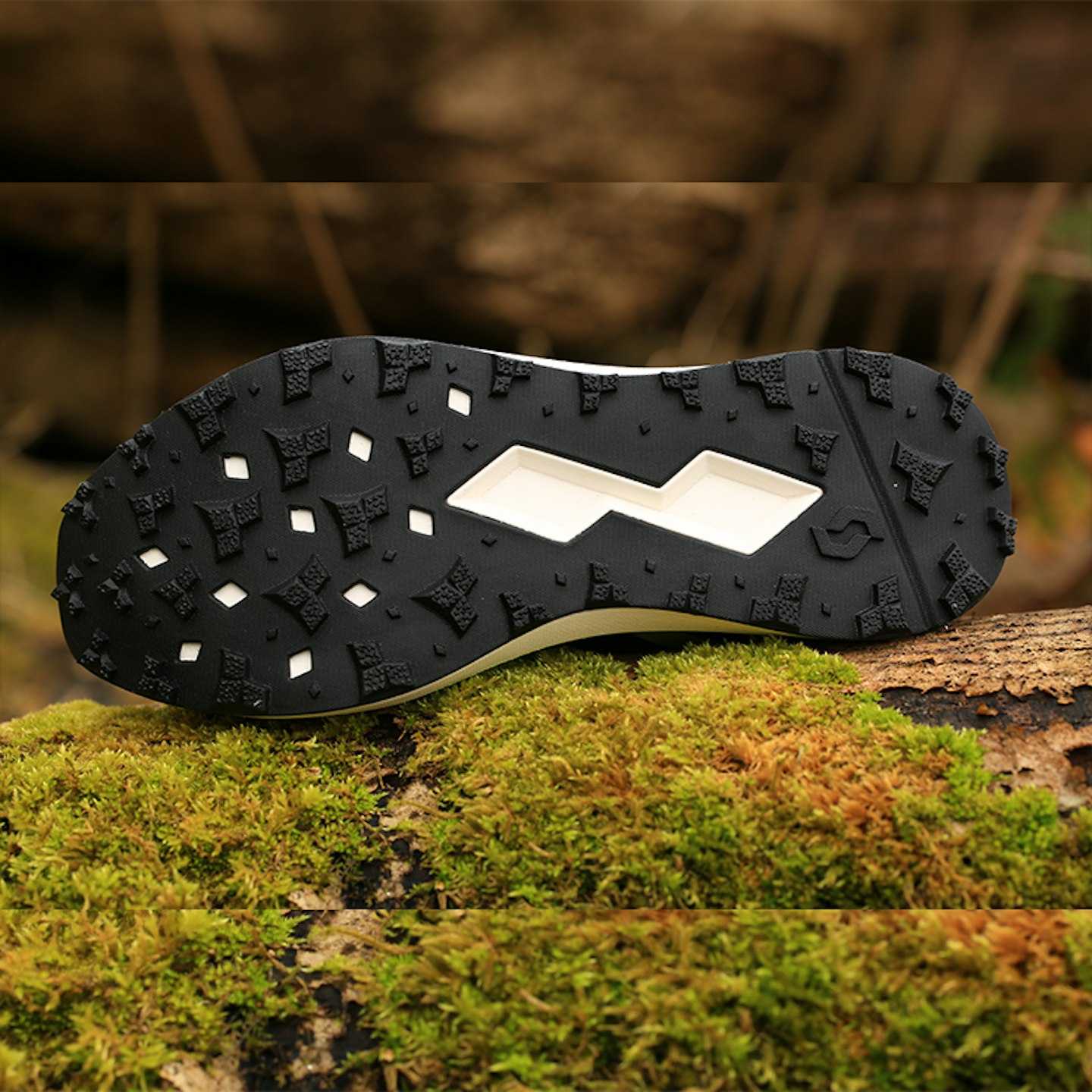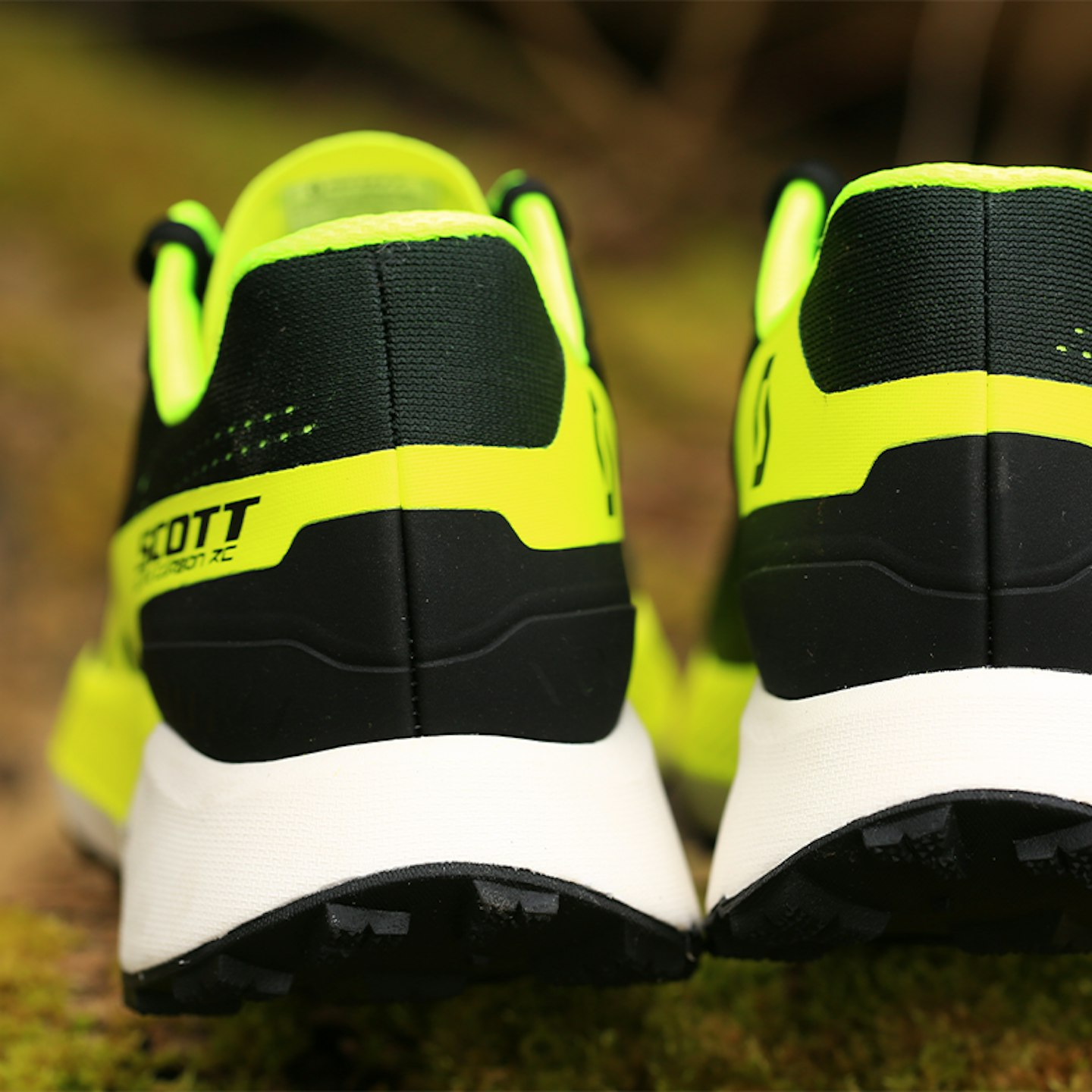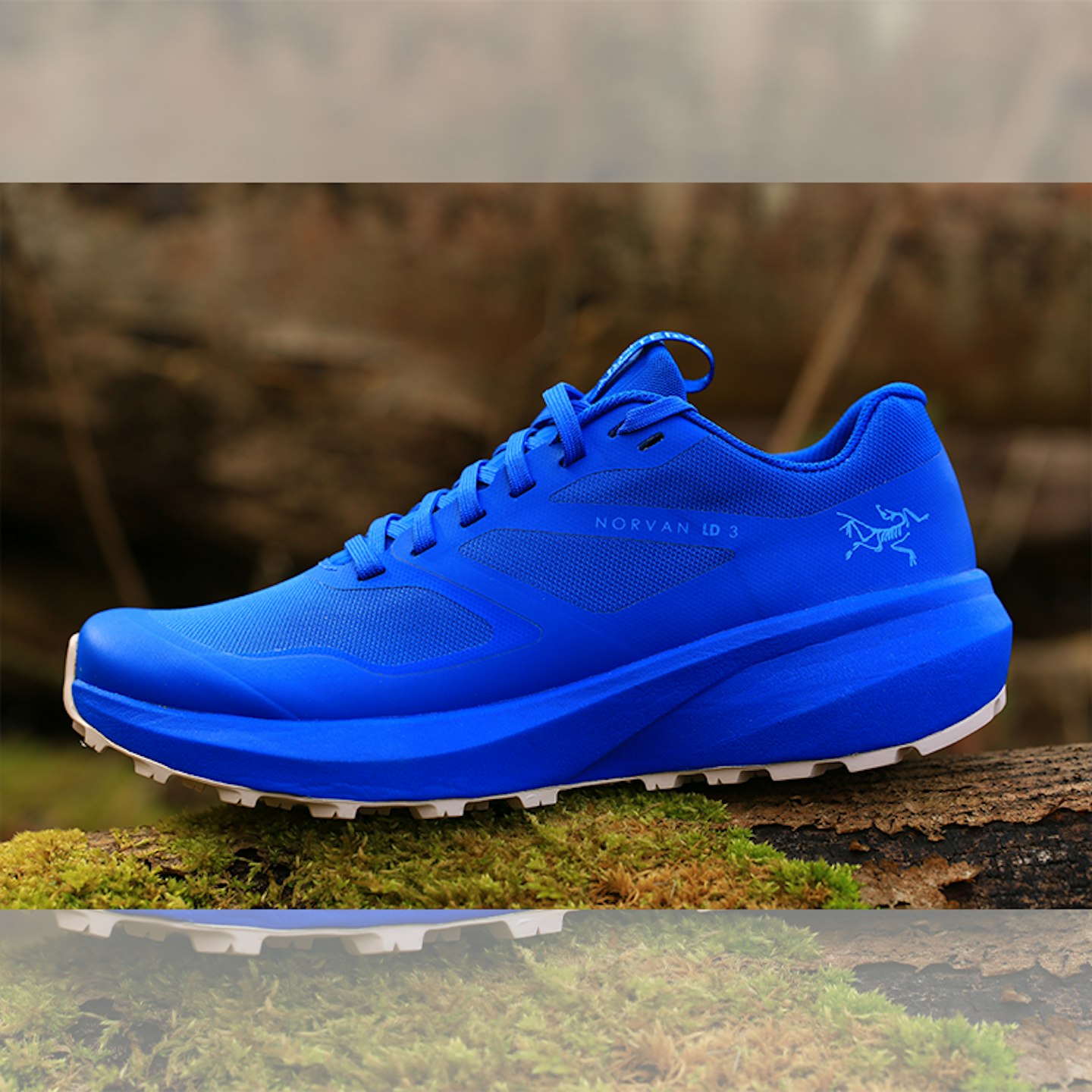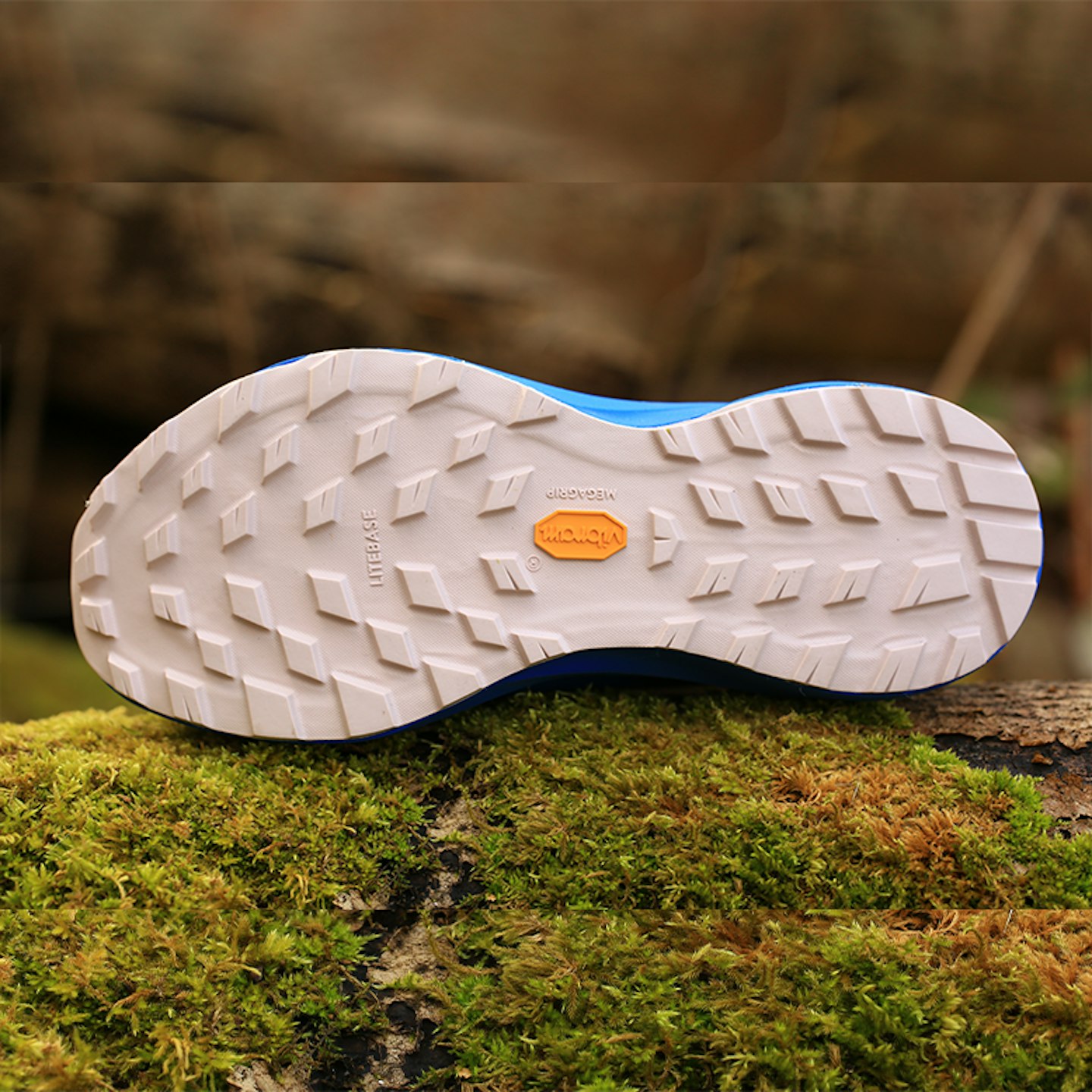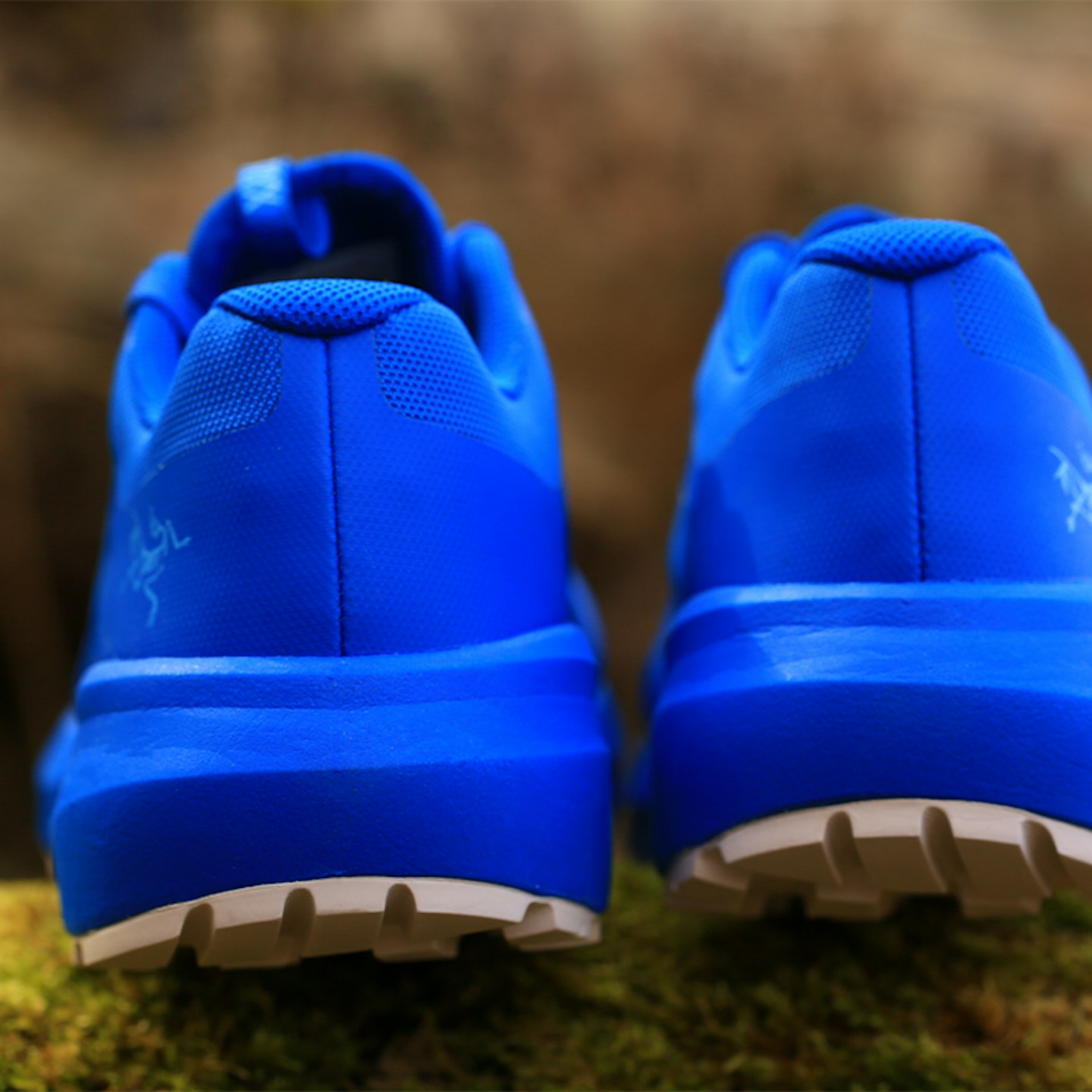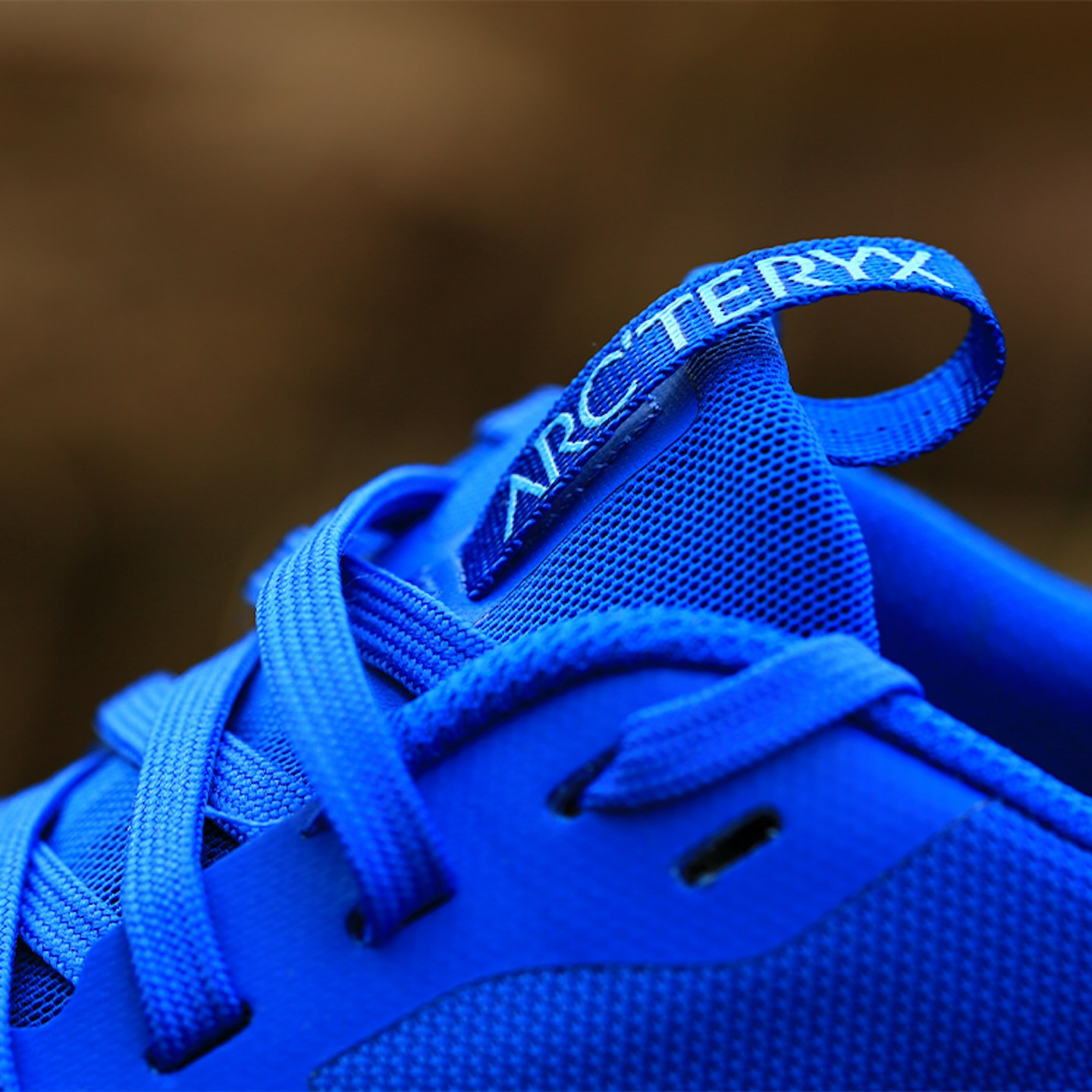Comfort is king when it comes to ultra trail running shoes. These are the shoes you should be able to rely on over long and arduous miles. The right shoe should make you feel like you can keep going forever, offering a blister-proof, supportive and lightweight ride.
First thing's first when you're looking to invest in any trail running shoe, you must have a good understanding of your own feet's anatomy and what structure of shoe works best for them. Consider the width of your feet, if they're narrower than average then you'll want to look for brands who are known for a narrower fit, like Salomon.
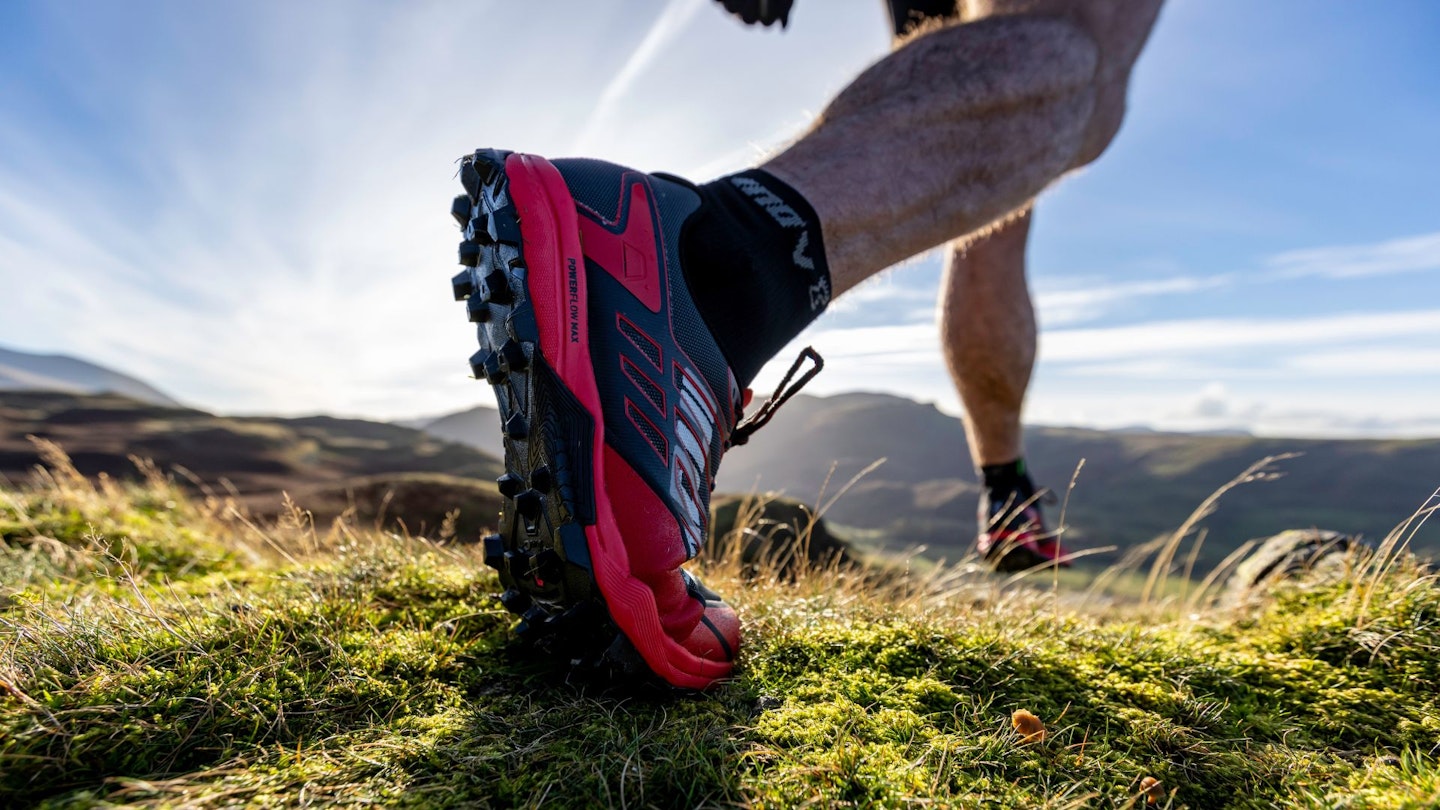
Or, for those with wider feet, a wider toe splay, or suffering with bunions, you'll probably want to reach for a shoe with more room in the toe-box to give your feet space to breathe. If your arches are high, you'll want to look at shoes with extra arch support, or even a stability shoe if you need some gait correction.
Once you understand what your feet need, you'll also need to consider features that optimise a trail running shoe for long distances. The first thing is comfort, like that you'd see in a road to trail running shoe, but you should also consider the level of support, breathability, quality of the outsole and the terrain it's aimed at, and the fit.
Best ultra trail running shoes at a glance:
Scarpa Spin Infinity – Best in Test
Decathlon Evadict MT2 – Best Value
Saucony Endorphin Edge – Best carbon-plated ultra shoe
Dynafit Ultra 100 – Best supportive ultra shoe
We asked trail running's top shoe brands to submit their best long-distance trail running shoes. In this article we thoroughly test a range of them, including ones with max cushioning, with carbon-fibre plates, and with zero drop, sharing our honest and unbridled opinion on each.
Here, we take a look at the merits of a range of long-distance trail running shoes and test their features across different terrain and distances. This will help you decide on the best ultra running shoe for you. We've also explained key features to look out for in a pair of ultra trail running shoes.
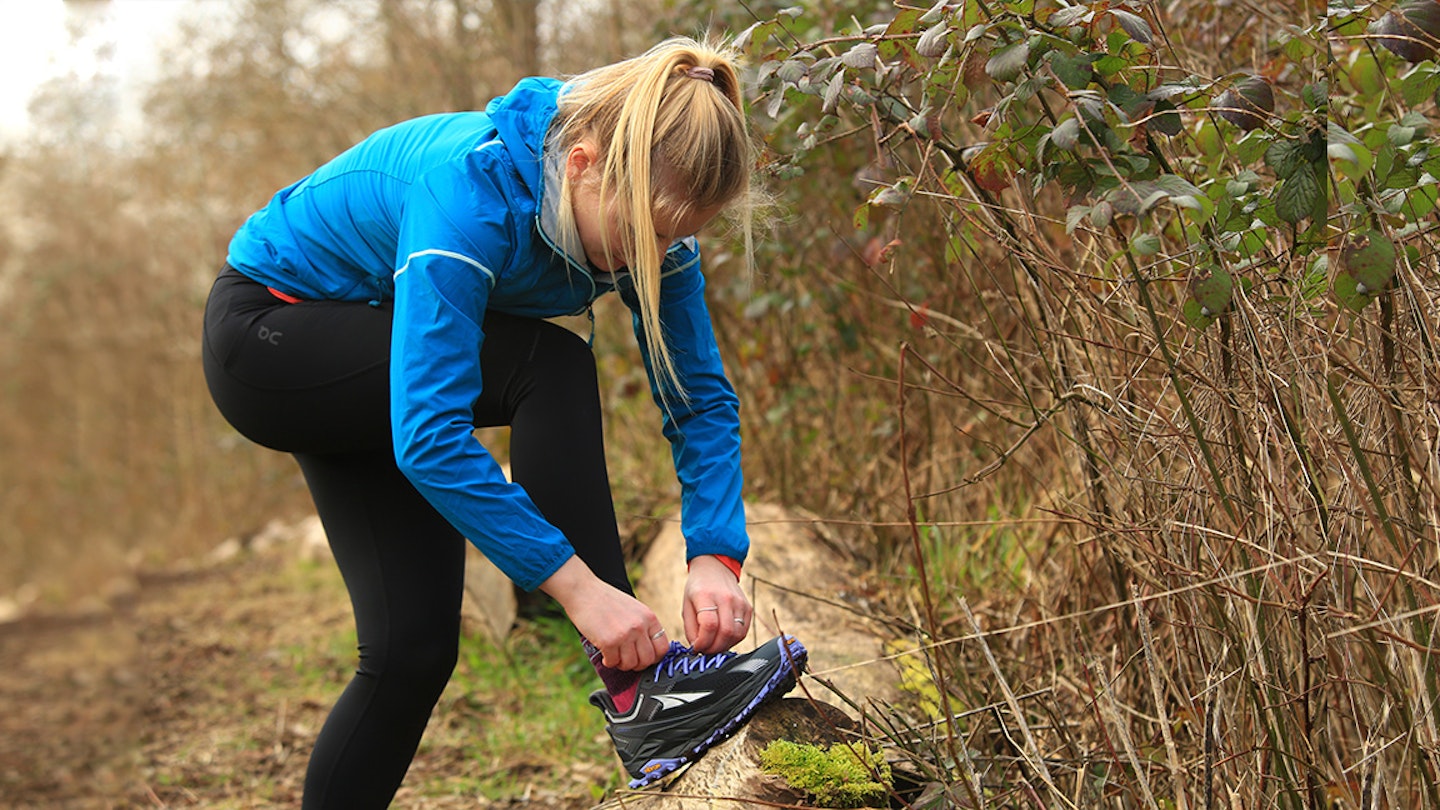
Best ultra trail running shoes in detail:
Description
Scarpa has a range of trail running shoes for all eventualities, but what the Spin Infinity focuses on is providing that necessary structure, comfort and stability for the longer distances.
The neutral, midweight trail shoe has a good level of structural support. The foot-wrapping overlay reaches up to the laces, which can be tightened to create a snug fit that hugs the foot in place, while a rigid heel counter offers more structural support. This is combined with a 4mm drop and slightly curved dual-density foam midsole, all of which come together to create a shoe with a good overall level of structure, without falling into the trap of becoming too stiff and unwieldy.
There’s a decent amount of padding along the heel and in the tongue, which Scarpa calls their ‘Adaptive Cushioning System’, it helps to keep the foot locked nicely in place, avoiding any heel slippage. The stack is also in that mid-range at 26mm, which offers ground protection without making you feel like you’re running in high heels.
Thanks to the panels of open mesh along the upper, the shoe manages to remain quite breathable in motion. There’s protection there too with the gusseted tongue and extended TPU toe bumper to protect from trail debris. A mesh pouch at the top of the tongue is there to tuck in laces, in theory this should prevent them coming undone mid-run.
Vibram Velox Cross lugs are 4mm in length, which means they can tackle a range of terrain but fare best along dry and less technical trails. Overall, the Scarpa Spin Infinity is a great all-rounder trail shoe that can hold up over those longer runs where you need that bit more support and comfort.
Pros
- Sturdy and supportive
- Enough cushion for longer distances
- Breathable and comfortable
- Grippy over range of terrain
Cons
- Not as agile/propulsive as some
Description
Decathlon says the Evadict MT2 is a mountain running shoe designed ‘for distances of 0 to 170km’. The successor of the MT, this newest version of the shoe prioritises stability and protection when running over rocky and rugged terrain.
The MT2 is a structured shoe with a fairly rigid upper and extra layers of protection up the sides and around the toes to ward off sharp trail debris. Naturally, a consequence of this is that the shoe is less breathable and a touch heavier than the really lightweight options on test.
The shoe’s camo-style outsole has a rockplate for further ground protection and fairly aggressive lugs. What we like about these is that the 8mm outer lugs jut out to the sides and do a great job of stabilising each footfall. We found they performed best over gravelly trails and loose terrain.
In terms of fit, the toe-box offers a good amount of room to accommodate feet swelling over long distances, though those with narrow feet may not get a completely locked-in fit. The cushioning in the tongue does feel a little overkill, but we found the mesh pouch for tucking away laces (also featured on the Scarpa Infinity Spin) to be a nice touch.
The MT2 achieves what it sets out to do, so if what you like in a long-distance trail shoe is that comfort and support, then this is a great affordable option. If you’re after a lightweight option, there’s Decathlon’s Race Ultra shoe or if it’s max padding you prefer, then take a look at the MT Cushion.
Pros
- Structured and protective
- Cushioned and comfortable
- Affordable and performs well
Cons
- May feel too rigid for some
Description
Saucony’s Endorphin Edge is a very focussed and lightweight trail shoe. It’s intended for mixed terrain, but leans towards hard-packed trails, which is where you get the most bang for your buck with the carbon plate.
The midsole has a lot going on. Saucony’s Speedroll design aims for maximum forward propulsion, which is paired with heaps of foam cushioning. The result? A rather tall, neutral shoe, with a 35mm/29mm stack height.
Sandwiched in there is the Carbitex MonoFlex carbon fibre plate. The MonoFlex plate manages to be stiff in one direction for foot protection and to give propulsion uphill, also with lateral flex to turbocharge your running efficiency and give you downhill stability. Big tick.
The 4mm lugs and PWRTRAC outsole can cope with muddy terrain, but grip is definitely best on the more tightly-packed and flat trails.
The light and tightly-woven mesh upper is incredibly breathable and keeps debris out well. However, it’s very flexible, which appears to result in the shoe lacking stability on really technical trails. **Read our full review of the Saucony Endorphin Edge.
Pros
- Lightweight and breathable
- Propulsive midsole and carbon plate
- Roomy toe-box
- Great for long-distance comfort
Cons
- Expensive
- Less at home on soft mud
Description
The Dynafit Ultra 100 stands out in look and features, it’s not your traditional trail running shoe. A touch heavier and with a sizeable stack, the Ultra 100 is made specifically for longer distances off the beaten path, where cushioning and support are your number one priority.
With this in mind, we can understand the appeal of these sturdy kicks, which have a good deal of protection from the mesh laces cover to the large toe-bumper and chunky stack raising you off the ground and out of the way of any sharp trail debris. The Pomoca outsole and lugs fared best on dry and hard trails, especially thriving over loose scree and gravel paths, while offering less traction over softer muddy sections.
In motion, the 261g weight (UK5.5) of the Ultra 100 is noticeable, but not enough to slow down your run significantly. What’s also apparent is the nice injection of cushioning around the heel and midsole, which helps keep the foot locked in place without causing any rubbing.
The neutral shoe has a 6mm drop which should suit most feet. Dynafit says a precision fit should allow for ‘plenty of blood flow to prevent the foot from swelling on long runs’. Going half a size up as advised, the shoe felt both snug and supportive, while having enough room for the toes to splay.
Pros
- Very sturdy and supportive
- Protective over rocky terrain
Cons
- Feel a little clumpy
- Not for extreme mud
Description
Donning the Craft CTM Ultra Carbon race shoes for the first time, the first thing that hit us was how agile and fast they felt. There are many factors at play here, but we like how the silhouette of the shoe shapes to the contours of the foot while still providing enough room at the toe, a set-up which Craft calls their anatomical racing fit.
The whopping 40mm stack midsole has five layers built into it, which Craft has named the 'Ultra Platform' and from the feel of the shoe, this is where the majority of the weight sits. At 300g per shoe (UK5.5), it’s not uber light by any standards, but somehow the CTM still manages to feel nimble and fast in action.
Within the platform wedge sits the outsole, carbon plate, midsole foam, popcorn-foamed insole and one-piece mesh upper. The springy ridges of the insole mould nicely to the foot, while the mesh upper feels very thin and ventilated. This all comes with an aggressive 10mm drop, which we found to be a good fit for our relatively high arches, but it’s worth noting this won’t suit all feet, especially runners who prefer a smaller drop and greater ground feel. The CTM does have some cushioned support in the heel collar, with the midsole jutting out at the back for extra stability.
Like all carbon shoes, the CTM performs best over hard-packed terrain where the carbon plate can really come into its own. The rubber traction outsoles with 5mm lugs can cope with mud, but as with any trail shoe, the really soft stuff will require more aggressive grip seen more on winter trail running shoes.
Pros
- Feels fast and propulsive
- Shock-absorbing midsole
- Thought-out build
Cons
- Heavier than some
- Less affordable than others here
Description
The MTL Skyfire 2 is the lightest trail running shoe Merrell has ever made. When on, the low-volume shoe almost feels more like a sock, but in the best way possible, with one of our UK5.5 shoes weighing a tiny 171g. The high-tensile mesh and TPU upper is one of the slimmest and most breathable we’ve seen - so much so that a passing breeze easily permeates the upper. Needless to say, there was no overheating on the trails in these!
A modest 25mm stack means the feet sit relatively close to the ground, providing a high level of ground feel when running. Free from the entrails of a maximalist shoe, we felt a better precision and connection to the twists and turns of the trail.
Protecting the soles of the feet from any sharp bumps in the trail is Merrell’s ‘FlexPlate’ rockplate, which is sandwiched between two dual-density FloatPro Foam midsole layers. Doing away with the stiffness of some carbon plates, this full-length plastic-composite plate adds structure and stability to the shoe, while remaining flexible and relatively responsive.
The Skyfire 2 excels best during fast runs, though due to the light cushioning, the impact was more noticeable when doing sustained efforts over hard-packed terrain. The Vibram MegaGrip outsole has been made custom to the Skyfire 2, the thin spider web design sports grippy 6mm lugs.
If you’re after a fast and precise trail shoe with excellent ground feel, the Skyfire 2 is hard to beat for up to the marathon distance. But for those who prefer a touch more protection and cushioning, take a look at the other less minimal shoes in this round-up.
Pros
- Extremely light and breathable
- Agile and fast
- Good ground feel and precision
Cons
- Less structural support and cushioning than some
Description
With a stack height of 33mm, the Olympus 5 may be zero drop, but it’s certainly not minimalist. Altra says the Olympus 5 is their most cushioned trail running shoe, the chunky EGO MAX compression moulded foam midsole feels plush and protective underfoot.
There’s also zonal cushioning around the top of the heel collar and a slight injection along the gusseted tongue. This results in a nice, locked-in feel when running. Plus, the wide-set laces are extremely reflective in low lighting, an unexpected bonus. However, we did find that though the tongue was nice and thin, it sat very rigidly along the foot and dug into the ankle, rather than moulding to the shape of the foot as we’d expect.
The main attraction for Altra fans is the wide toe-box, the resulting alien-esque look sets the shoes apart from most other trail shoe brands we’ve tried. Altra call this ‘Original FootShape fit’, a concept around which they’ve built their entire identity. The larger toe-box aims to allow the toes to naturally spread out, for better comfort and stability.
While the toe-box does feel larger than your normal trail shoe, we did feel our toes touching the end of the shoe from time to time. This fifth version of the Olympus seems to run a little smaller in sizing and shorter in length to its predecessor, we’d size up by .5 next time.
We have no complaints when it comes to the super grippy Vibram Megagrip outsole, which held its own in sloppy mud, loose rocky trails, and over wet rock. If you like to double up on the protection by strapping on gaiters, you can do this via the heel tab. The upper’s also nice and breathable, with plenty of aeration to keep us cool over longer runs.
Pros
- Well-placed cushioning
- Grippy lugs
- Wide toe-box
- Well built
Cons
- Sizing runs a little small
- Tongue digs into ankle
- Zero drop won't be for everyone
Description
On the more affordable side of the scale, we have the unisex Under Armour HOVR Ridge trail running shoes. The Ridge is one of those shoes we found to be a good, neutral all-rounder in terms of offering moderate levels of support, cushioning, and propulsion when running.
Made to navigate tough terrain, the Ridge benefits from a reinforced upper with toe bumper, which when running, felt like it protected the feet well from errant rocks and roots. Overlays cinch in and secure the foot, but also make the shoe feel decidedly snug. This was a good fit for us, but if your feet are on the wider side, this may feel too restrictive.
The star of the show is the full-length Vibram LiteBase outsole, with unique circular lugs which did a great job of keeping us upright and agile on the trail. Towards the heel, these textured lugs are wider, getting smaller and less spaced at the front, at which point mud tends to clog a little when running.
The UA HOVR cushioning offers a good medium level of padding, especially noticeable around the heel, which creates a nice, locked-in feel, making for a comfortable run experience.
Pros
- Affordable sale price
- Supportive and snug fit
- Lugs give good grip
- Incorporates recycled materials
Cons
- Not hugely high-tech
- Heavier and less nimble than some
- Fit verging on narrow
Description
Inov-8 says this second version of their popular Trailfly G 270 (previously Terraultra) has had updates to improve fit, comfort and durability. This translates to a more durable upper which aims to provide better breathability, a better cut at the ankle, and more padding at the heel.
Note - this won’t be for everyone. This shoe has a zero-drop, which means the forefoot and heel sit at the same height. If you have high arches and prefer some support there, then take a look at some of our other reviews. That being said, this isn’t a completely minimalist shoe, the 22mm stack means that there’s still some Powerflow Max foam cushioning at the midsole to help absorb impact while running.
The ground feel is still noticeable though, with the tough 4mm graphene-enhanced G-Grip lugs performing well over a range of off-road terrain. Despite the light weight at 219g (UK5.5), there’s still some slight injections of cushioning to be seen, like in the slim tongue and around the heel, to help with comfort and provide a secure fit.
The Trailfly 270 V2 is classed as a 5/5 for width on Inov-8’s scale, which for us meant there was enough space in the toe-box for comfort and swelling over long distances, but those with narrower feet may struggle to lock-in the foot. The shoe’s overlays have also been moved back from the first version, which means more space for splay in the forefoot.
Pros
- Tough and grippy lugs
- Good ground feel
- Excellent stability
Cons
- Zero drop won't be for everyone
- Relatively costly
Description
Scott pens the Scott Ultra Carbon RC as their 'most technological trail racing product to date' due to its in-built carbon plate and rocker shape. It’s made to excel on easy and rolling (read, hilly) trails in a racing environment where speed is of the essence.
Let’s start with the most exciting feature, the Carbitex GearFlex carbon plate is made to be pliable during easy running, while simultaneously having the ability to become stiffer and thus, more responsive to an increase in speed. The plate has a ‘swallow tail’ shape which splits towards the heel to allow for more lateral flex, while the rocker is intended to encourage a more dynamic running gait for better running economy. Though the weight of the shoe is on the heavier side for carbon kicks, the propulsion caused by the rocker and plate really helps minimise the effects of this.
In action, it’s obvious the RC is a good-quality build, the first thing that hit us was how sturdy and supportive it felt. There’s a medium amount of cushioning which is most evident around the collar and dual-density midsole foam that has a 25mm stack, while the 5mm drop makes this a neutral yet supportive-feeling shoe. The downside to this being that the shoe felt a little lacking in flex and agility.
The outsole and lugs provide traction along a range of terrain, while the engineered mesh upper has an extra injection of protection from a TPU layer which extends out from the toe bumper. While this may equal brownie points for durability in the long run, we felt it weighed down the 292g (UK5.5) shoe and made it feel less breathable in action.
Pros
- Lots of stability and structure to the shoe
- Rocker aids momentum
- Bright colourways
- Durable feel
Cons
- Not as agile as others
- Feels a little too rigid
- Less affordable than others
Description
With long-distance in the name (LD), we had high hopes for the comfort and durability of the Arc’teryx Norvan LD 3. Since the LD2, these shoes now have a higher stack, no rock plate, a lower drop at 6mm, and a different upper material called Cordura.
Pulling on the shoes for the first time, we immediately felt pretty cool in the minimalist monochrome colourway. Arc’teryx says these shoes are designed to be supportive and lightweight for long runs, and they certainly are light at 230g for a UK5.5.
As expected, the Vibram Megagrip outsole performed well over a variety of terrain, with 4mm lugs able to dig into and hold traction even in softer mud. Stability is pretty good, there’s an internal foot wrap which acts as an overlay and works with the laces and slight padding on the heel to lock the foot in place. A neat little lace garage keeps them out the way.
The dual-layer Cordura mesh upper keeps the feet cool by allowing heat and sweat to escape, while keeping out debris. Arc’teryx says that the toe-box is designed to allow for toe-splay. It was plenty roomy for us, but we wouldn’t call it a large toe-box. There’s also no wide option available in this model.
Pros
- Lightweight and comfortable
- Good stability and grip
- Stylish
Cons
- Not as agile as others
- Relatively expensive
- Monochrome colourways no longer appear available
How we test ultra trail running shoes
The trail running footwear we test undergo thorough, objective, real-world testing. As soon as they arrive with us, they get allocated to one of our experienced gear testers who take them through their paces over a range of terrain and extended distances.
We consider multiple factors when testing and reviewing ultra trail running shoes, from the obvious, such as comfort and weight, to the less obvious and intricate, such as sustainability and durability.
The shoes in this group test were mostly put to work by our fearless run editor, Kate, in the hills of Bristol and beyond. A few also went to Milo and Chris, who run in the Surrey hills and the Yorkshire dales respectively. Click here for more info on how we test gear at LFTO.
What to look for in a long-distance running shoe
The first thing is comfort, this can be seen in the level of cushioning, the materials used, and those little features that make your run smoother.
You should also think about how supportive the shoe is, does it offer good support in the arches (if you need that), heel, and overlays? What is the density and durability of the midsole foam?
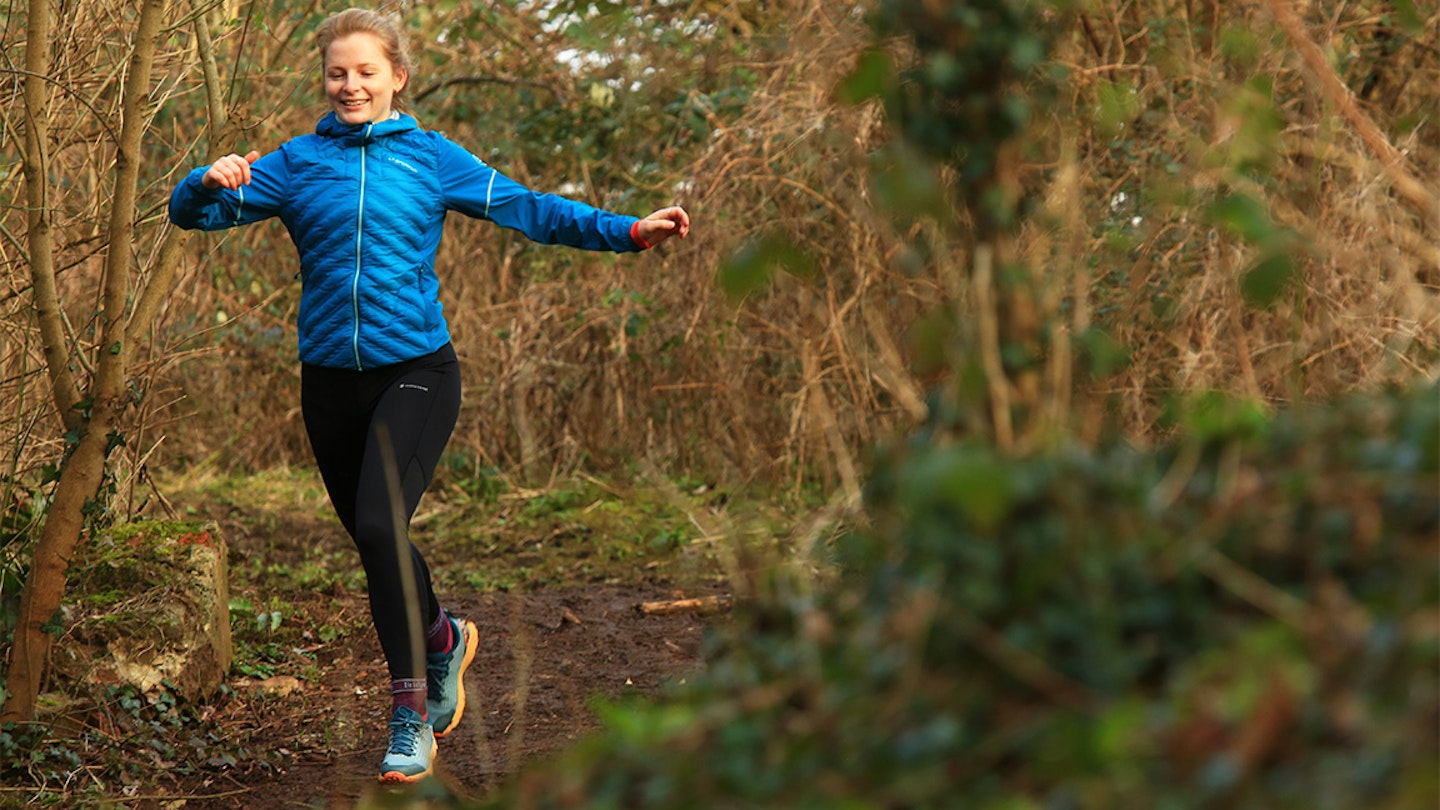
Most of all, the fit needs to be right for you. Fit could depend on many aspects such as: placement of cushioning, height of the heel collar, how the tongue sits, the width of the shoe, the size of the toe-box, and more. If these terms are confusing, take a look at our trail running shoe buyer's guide to better understand key features of a run shoe and how they fit.
We recommend you wear your shoes around the house before getting them muddy, to see whether the fit and level of support is right for you. Most shoe retailers will have a refund policy, so if you don't get on with them, you can send them back and find a pair that works for you.
